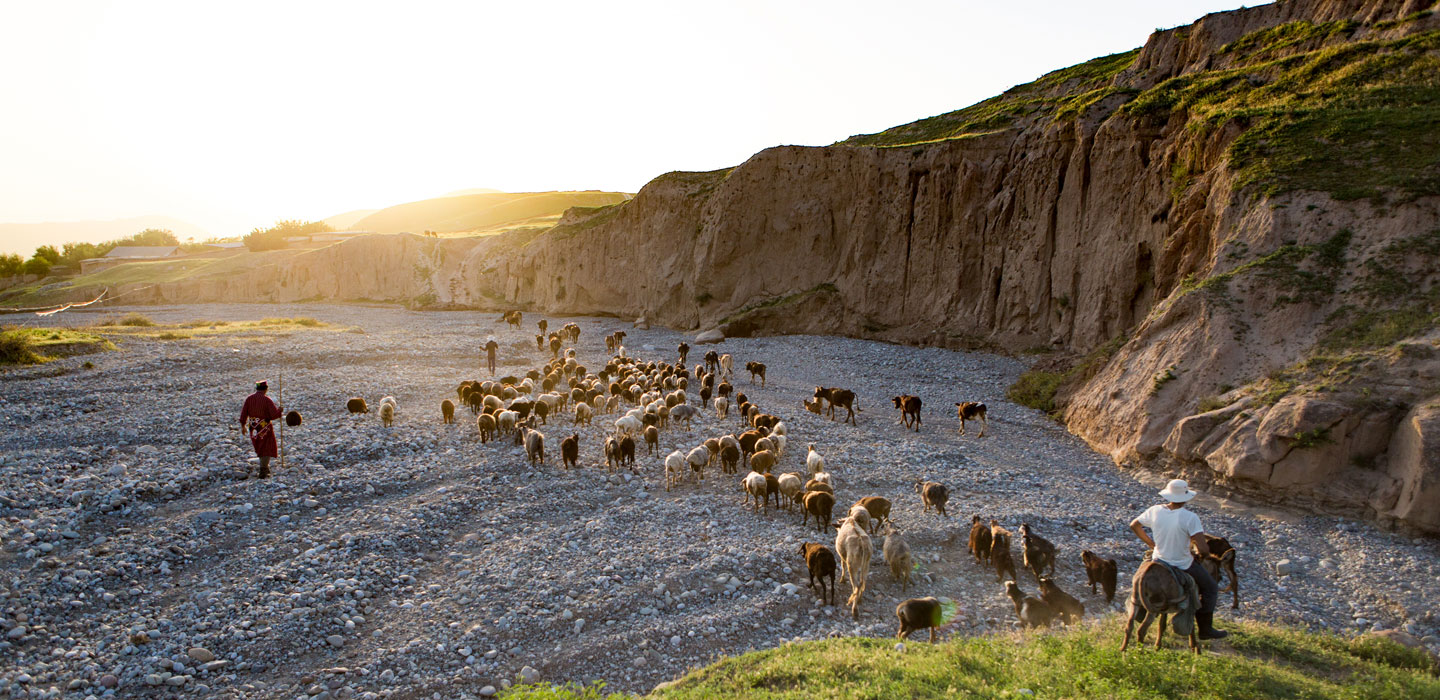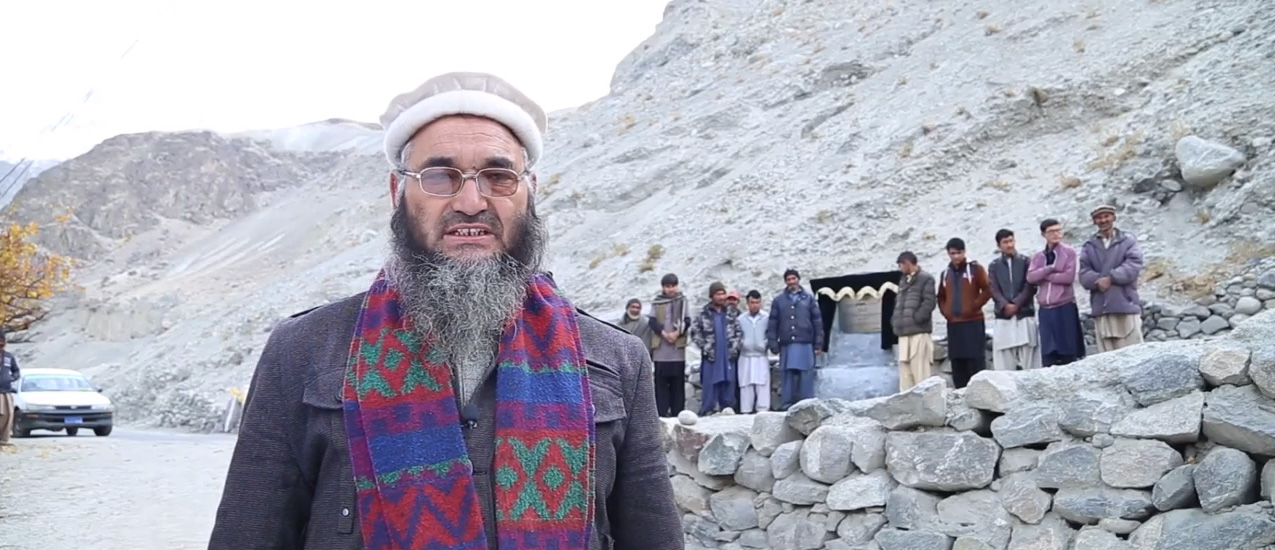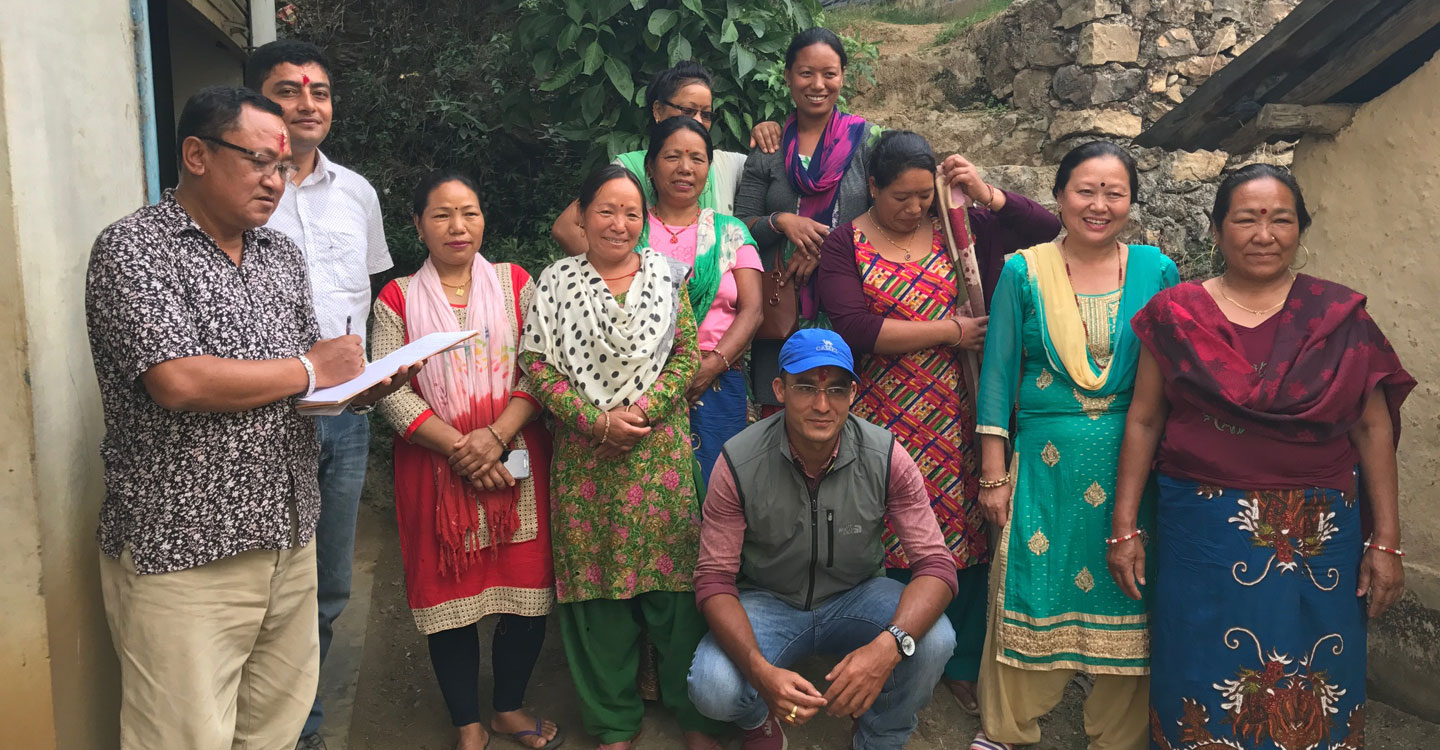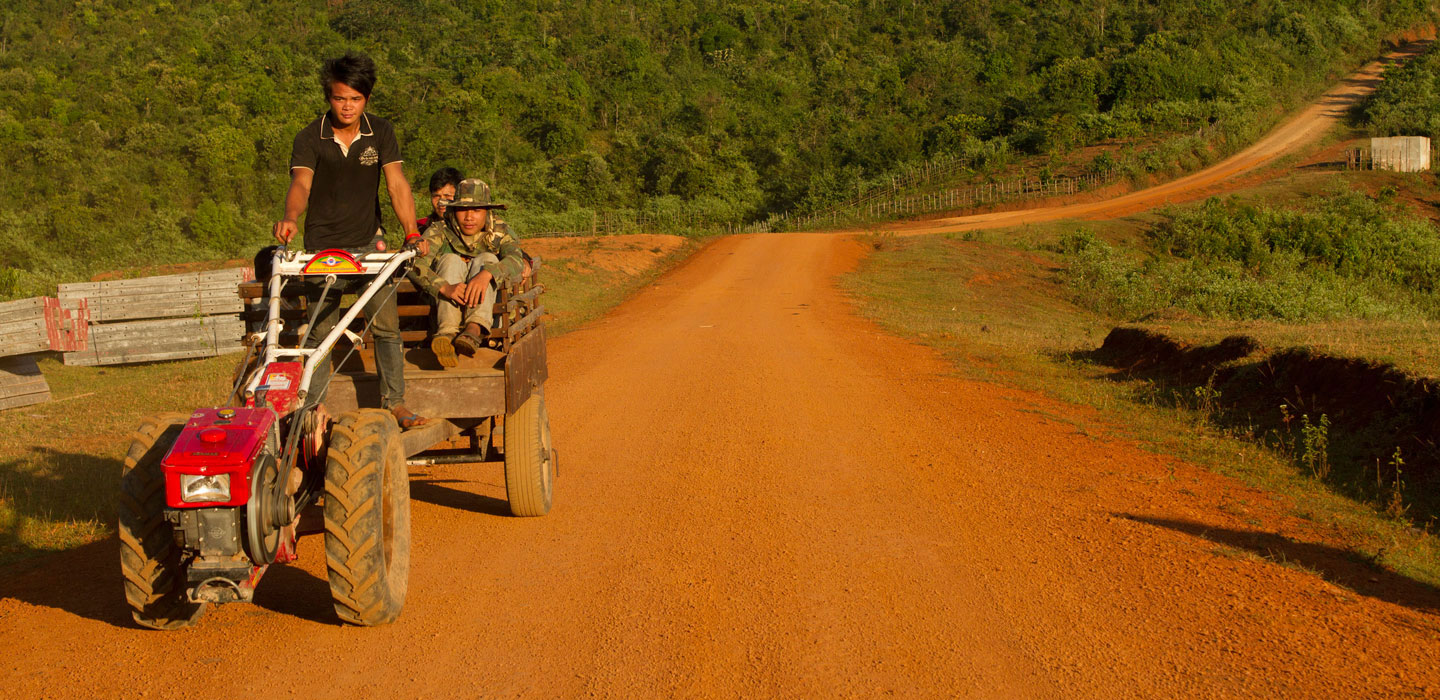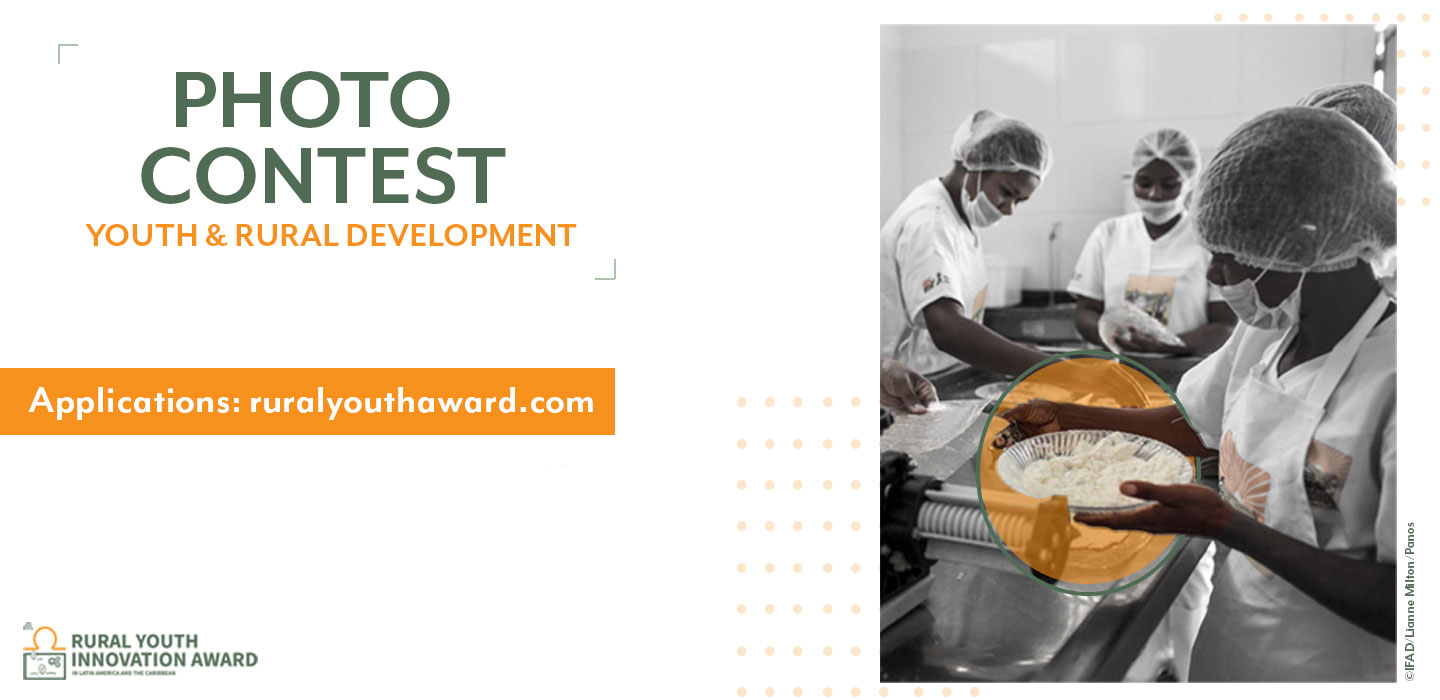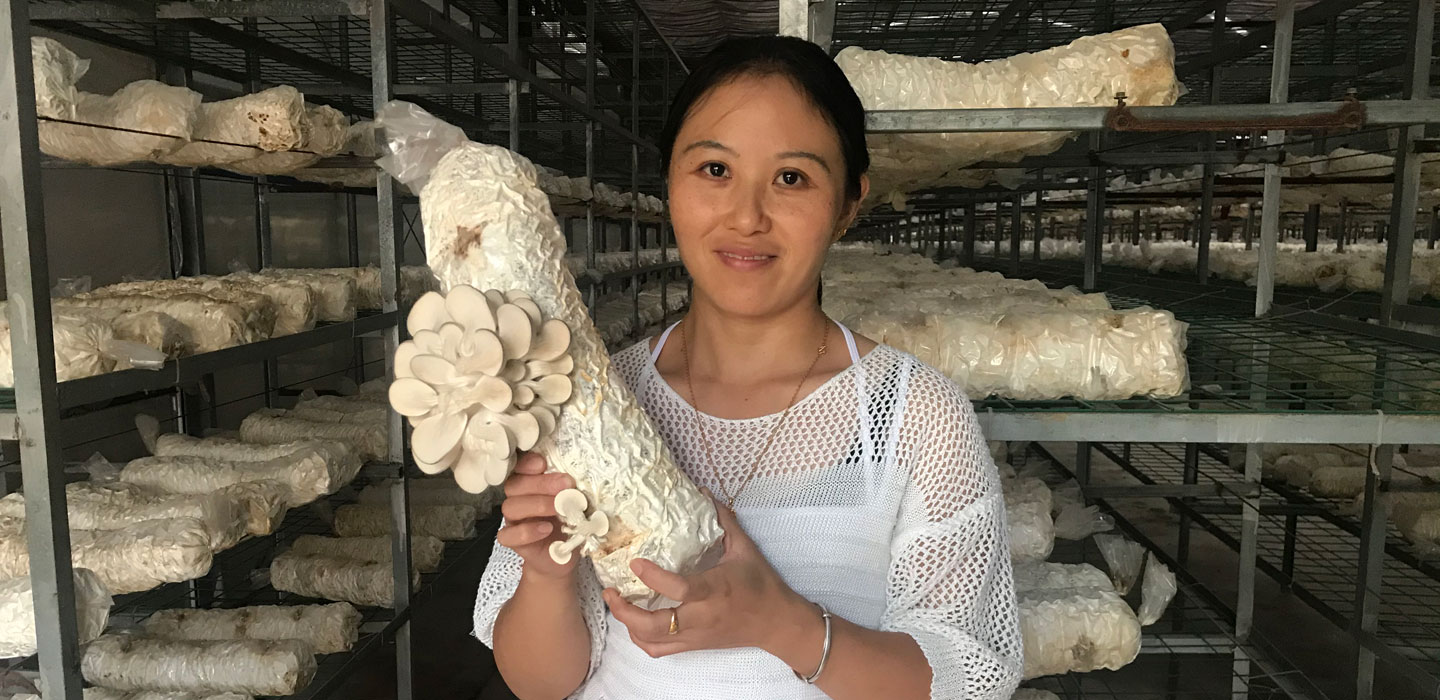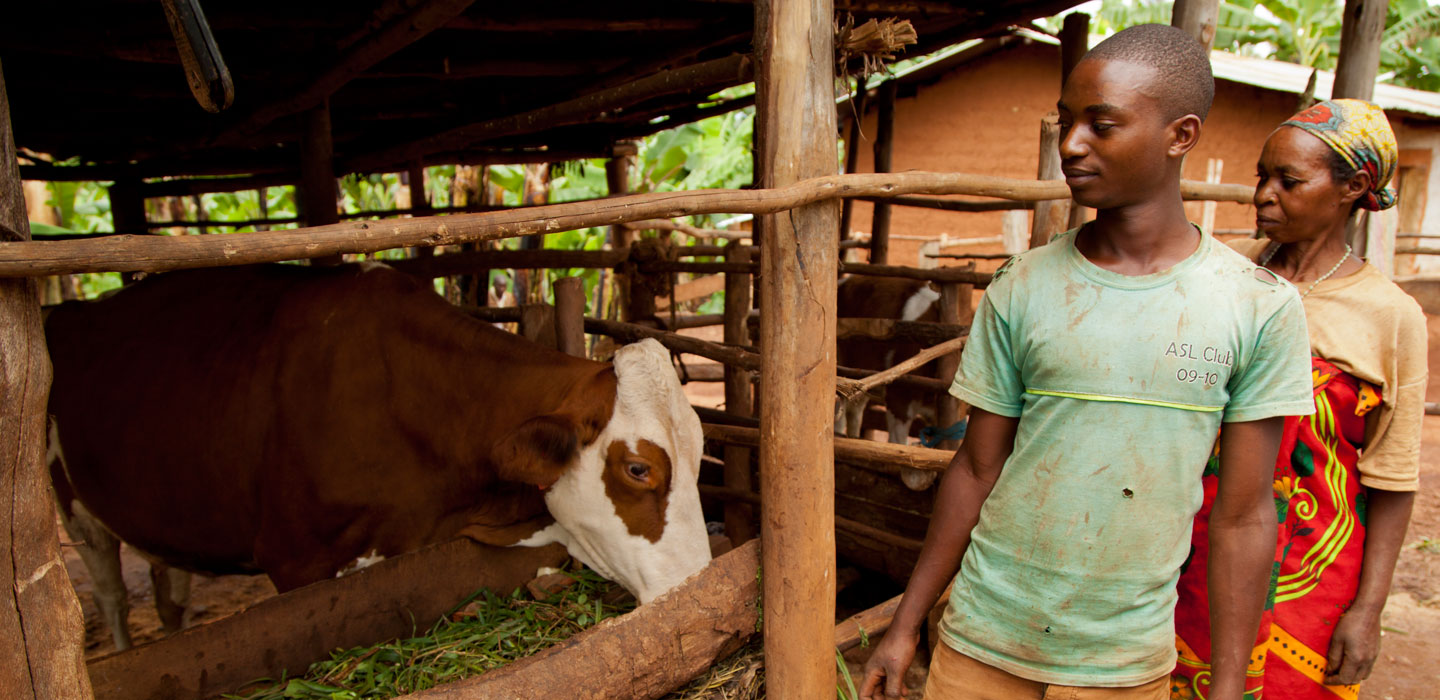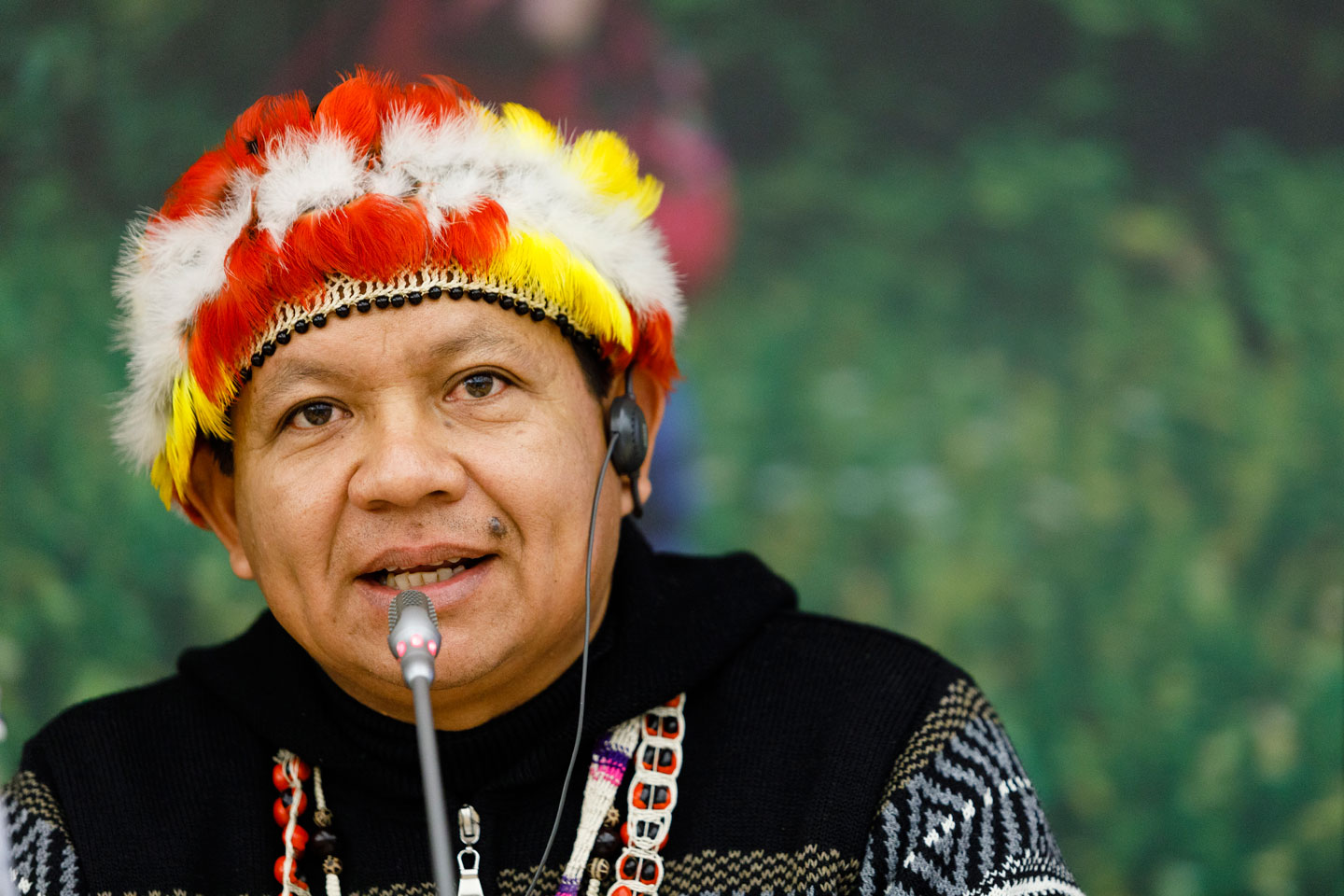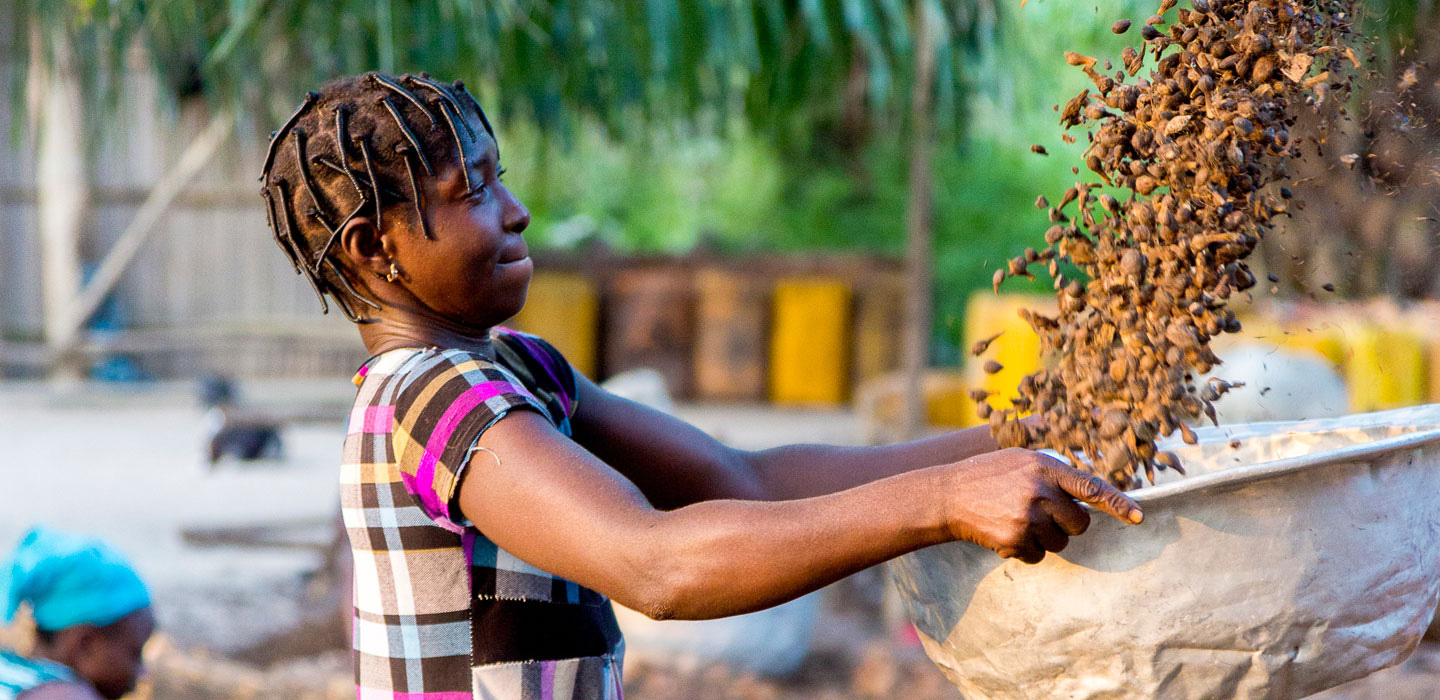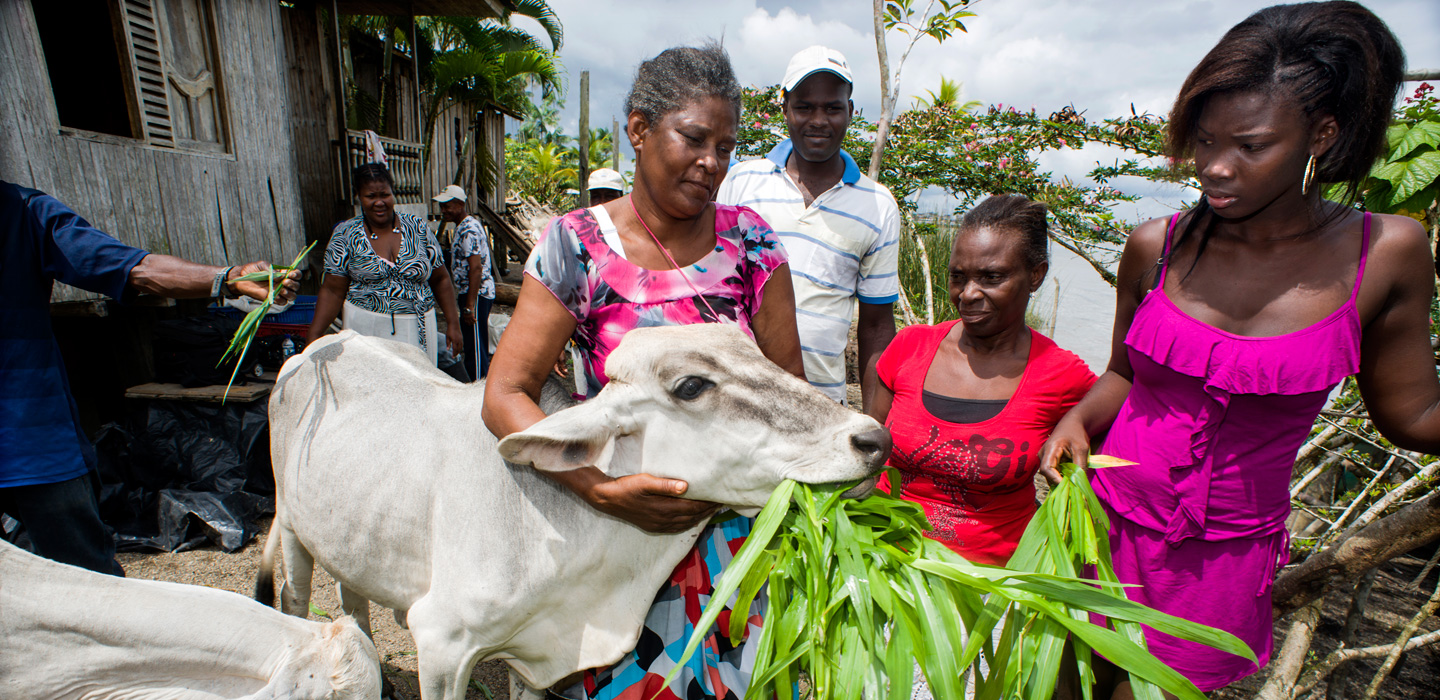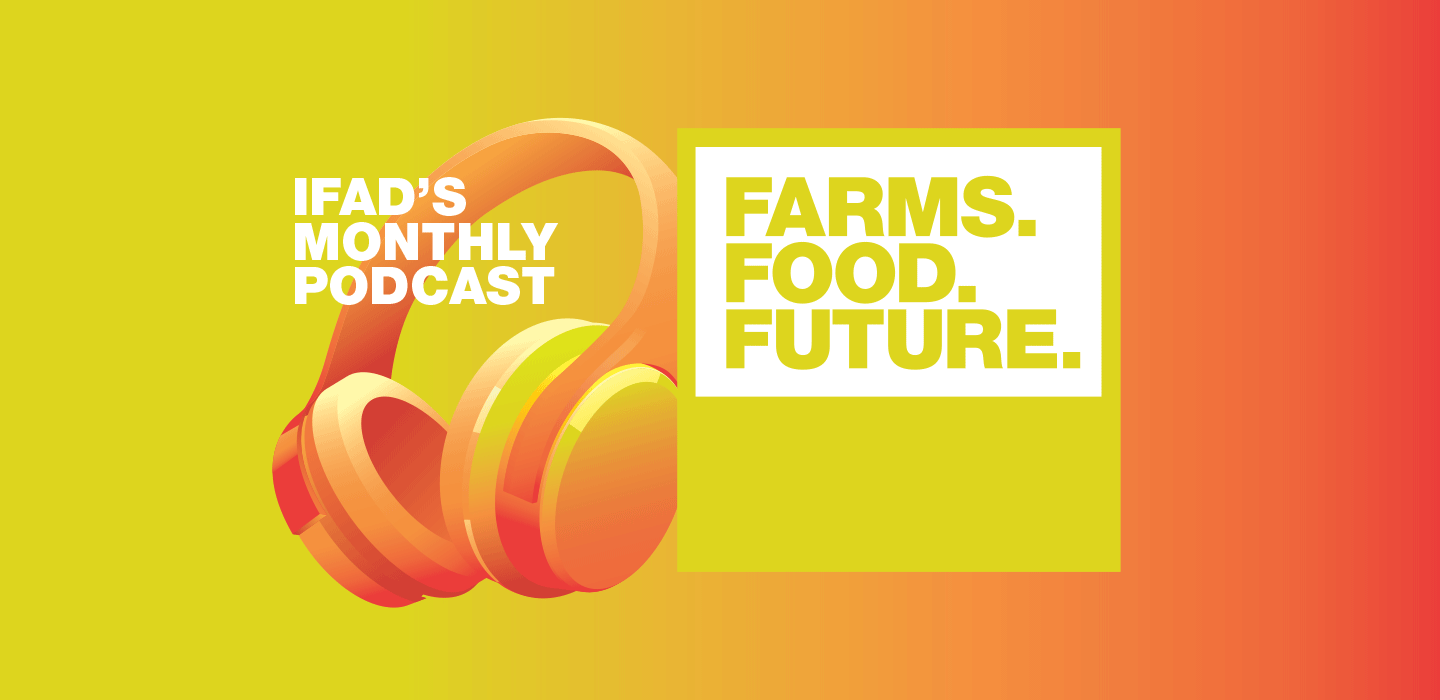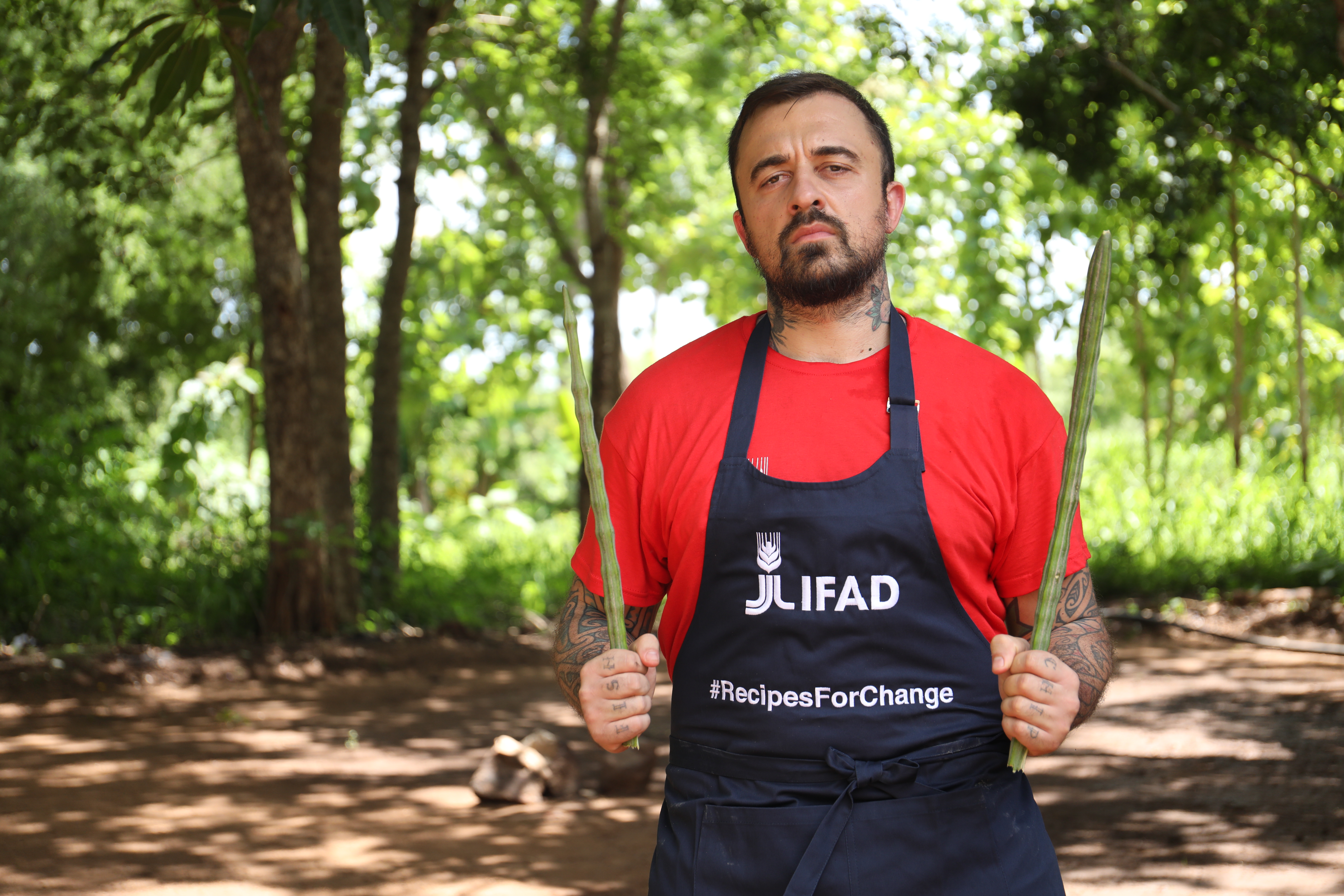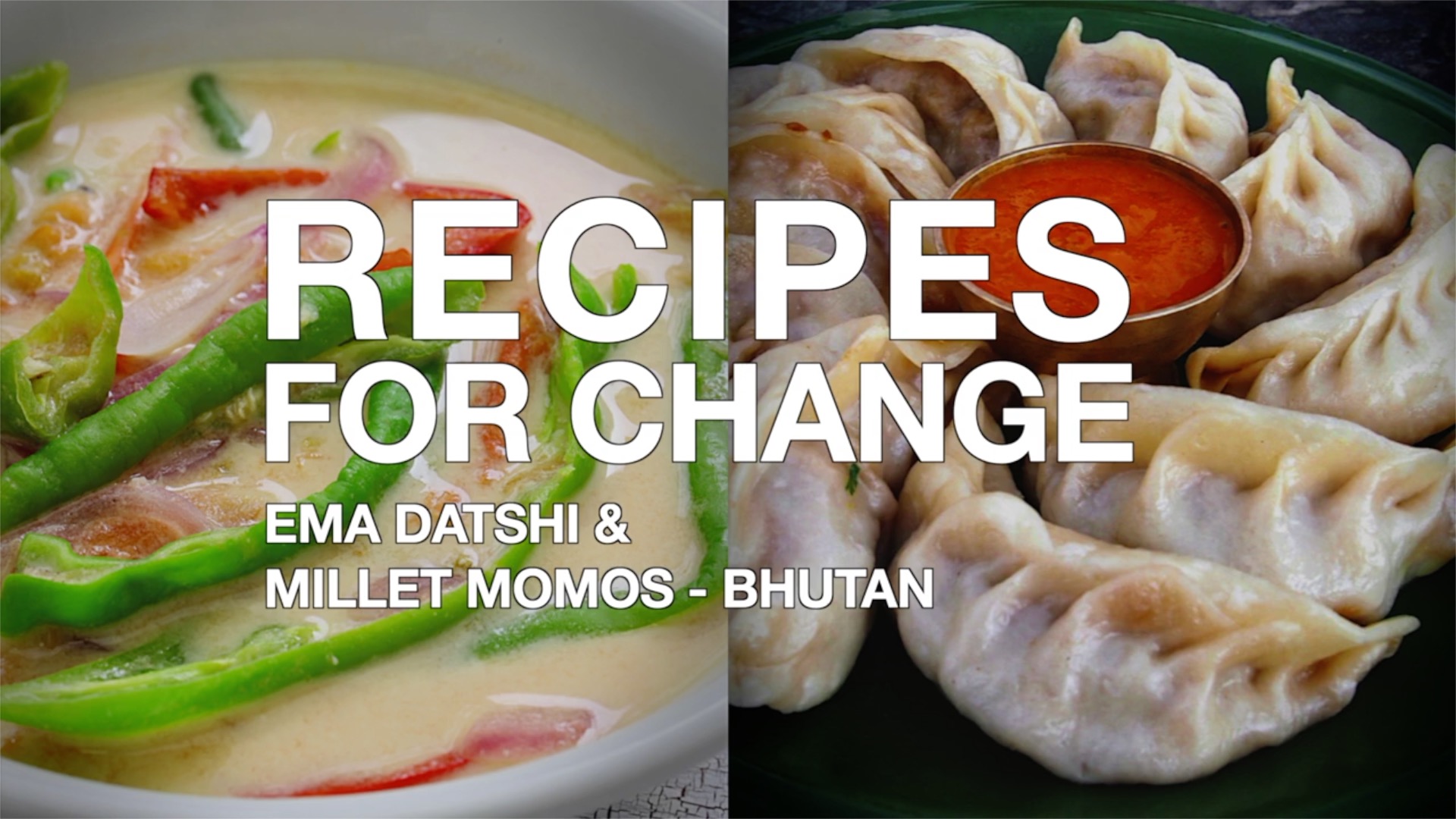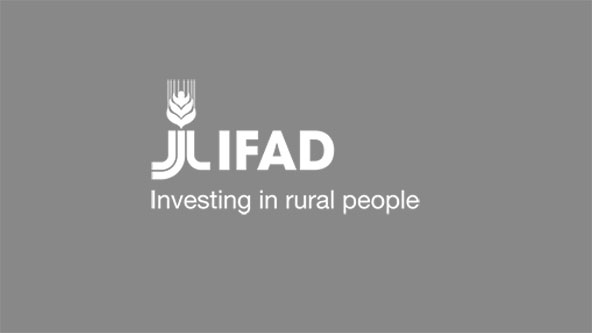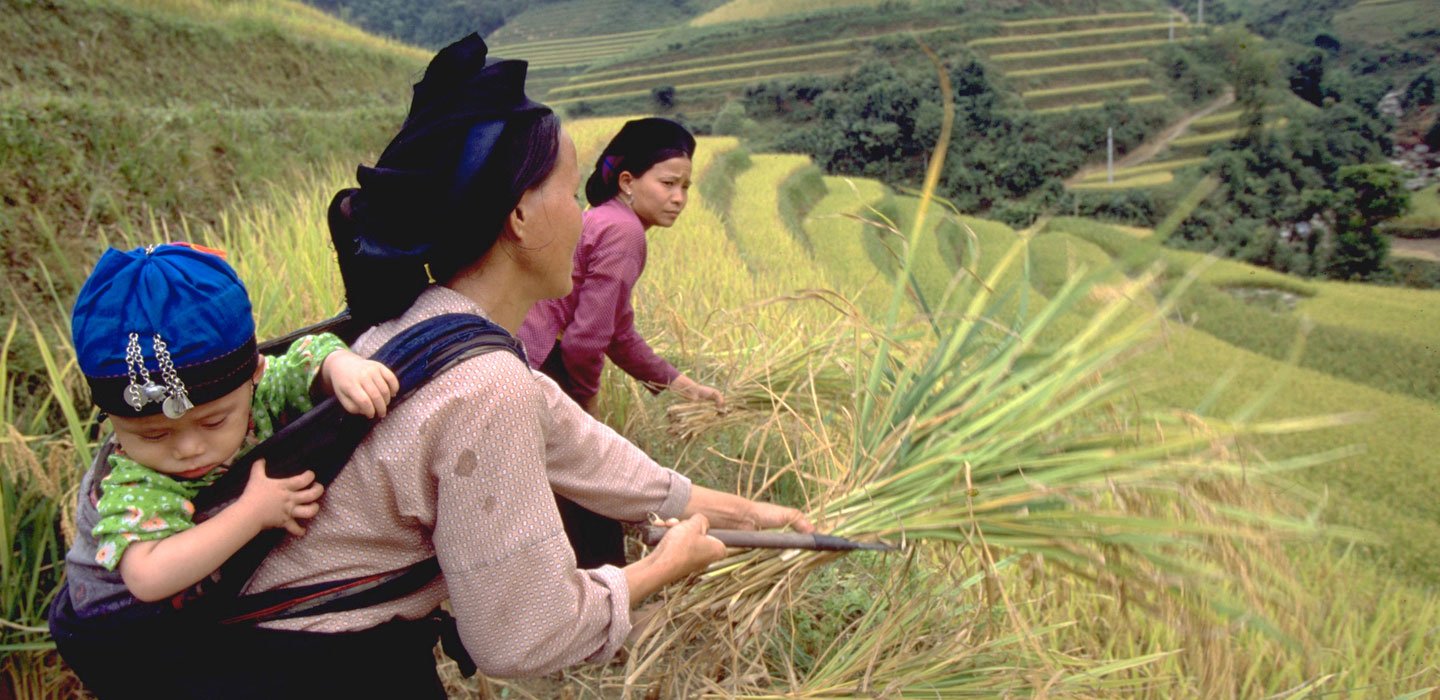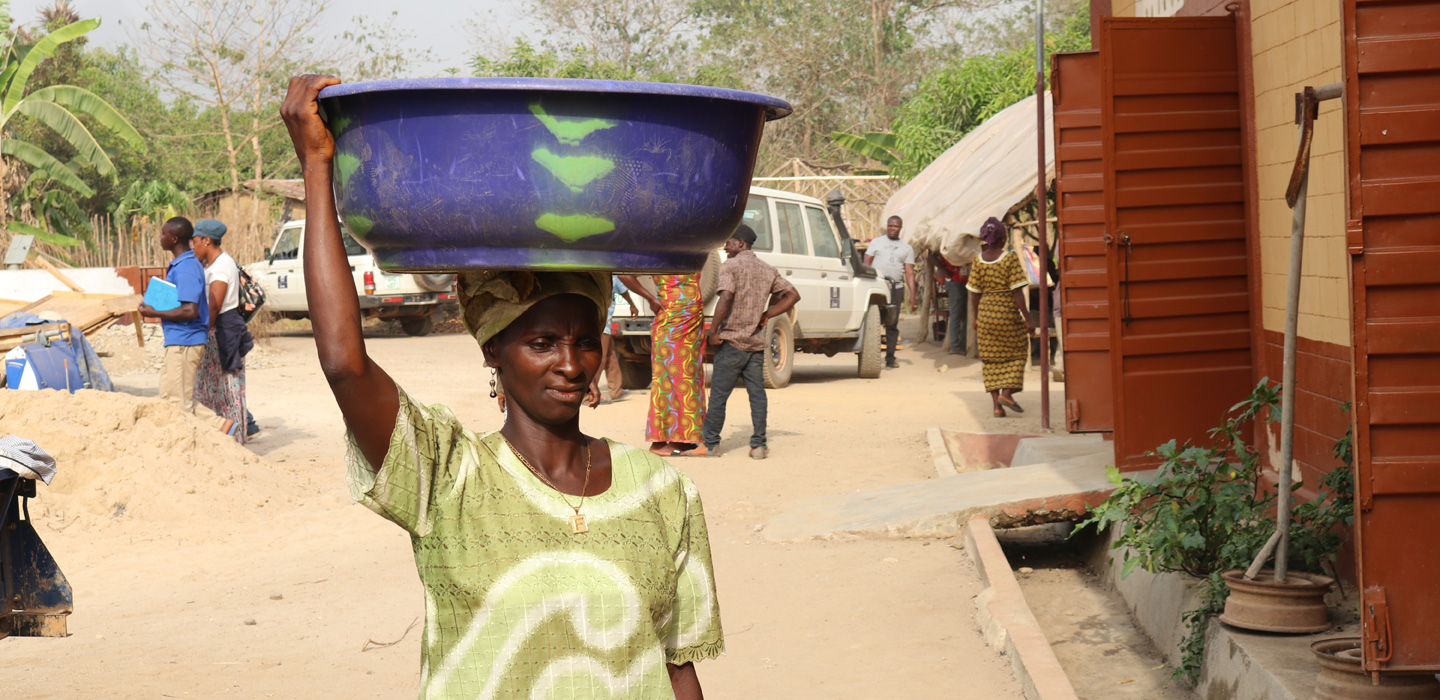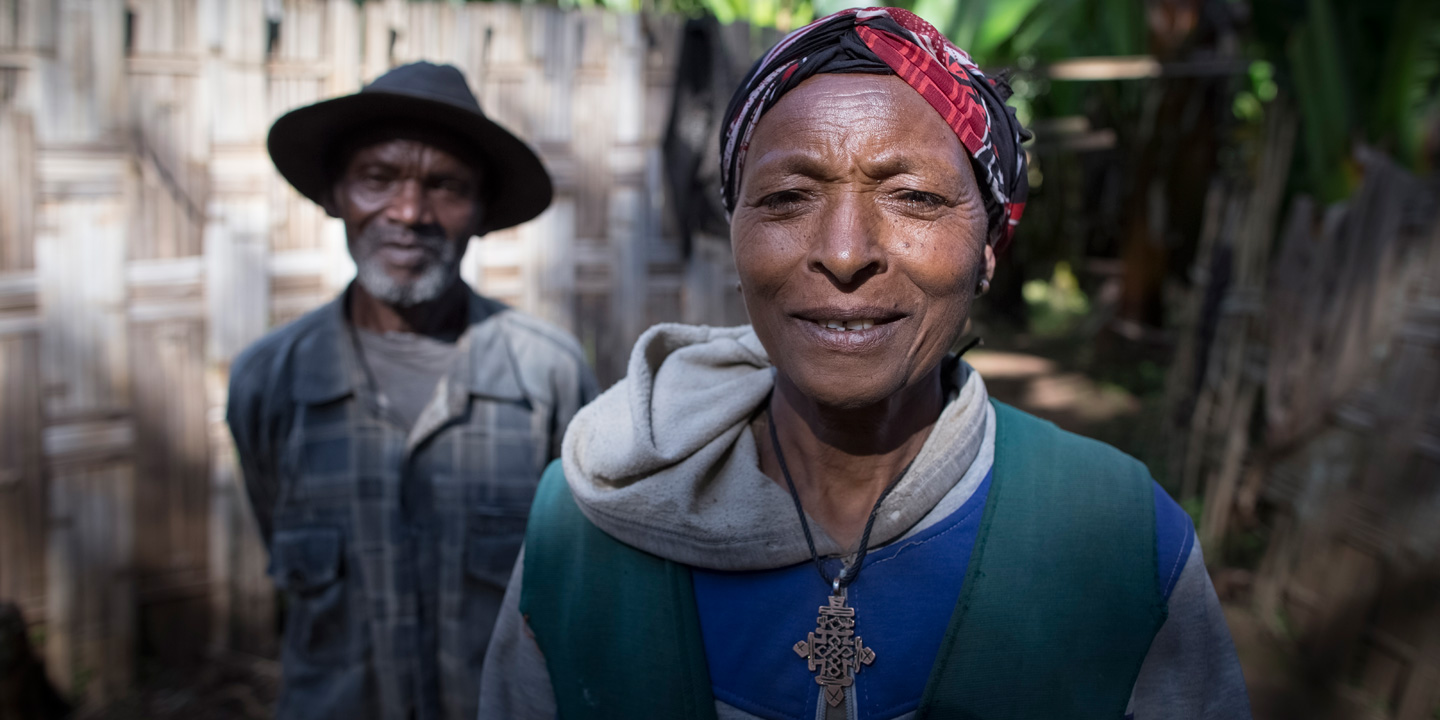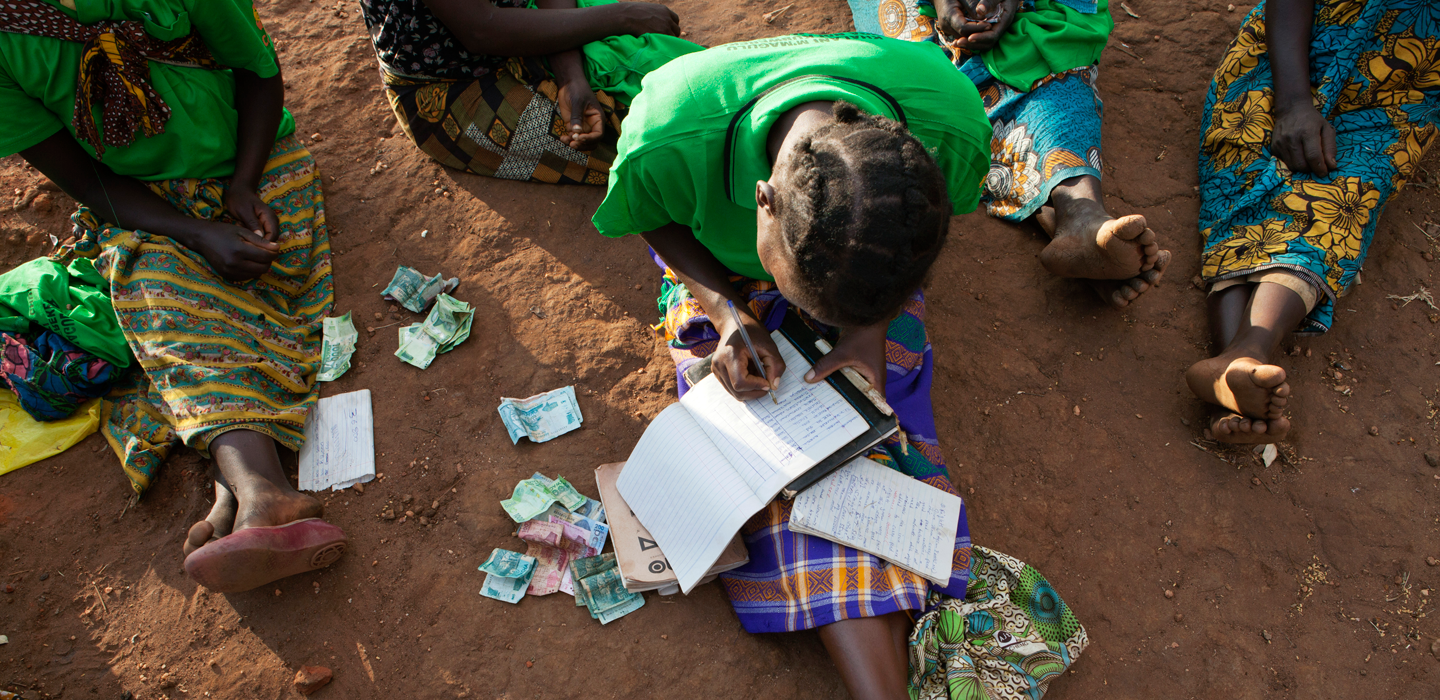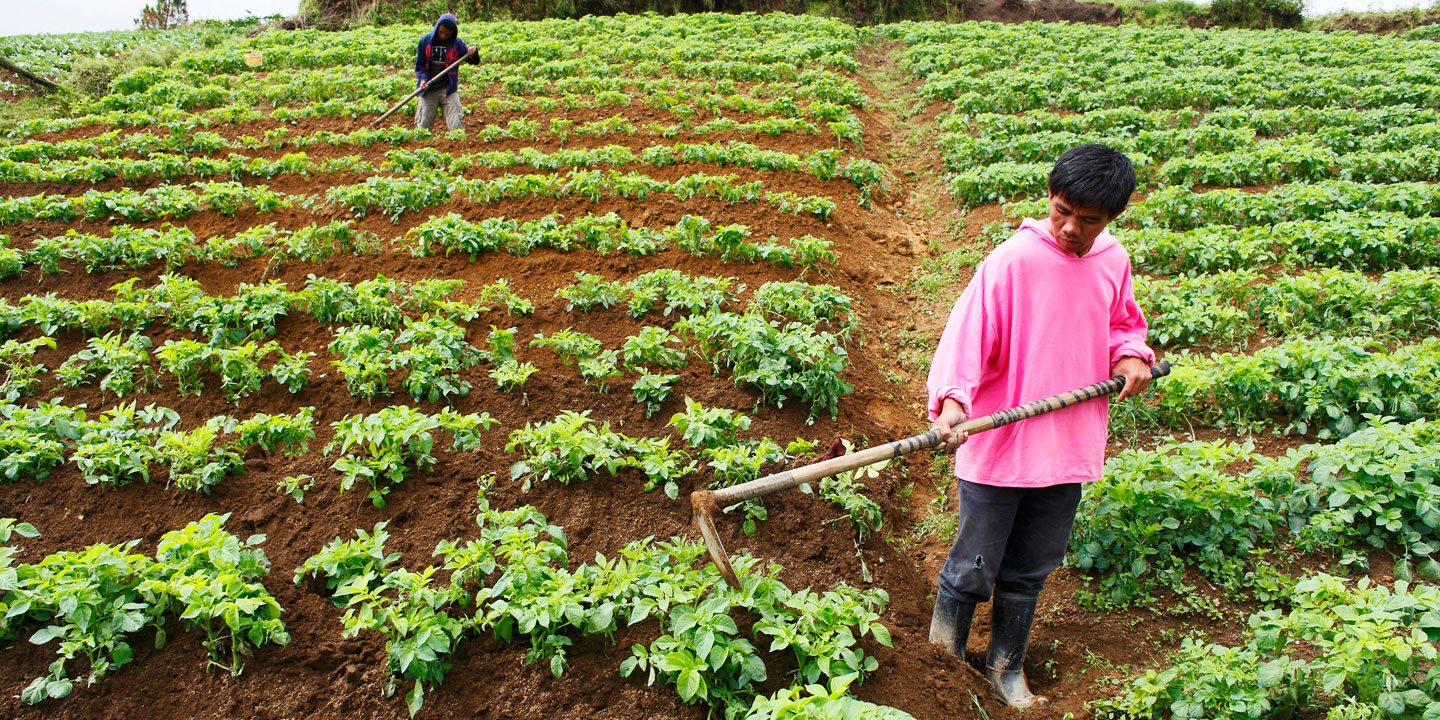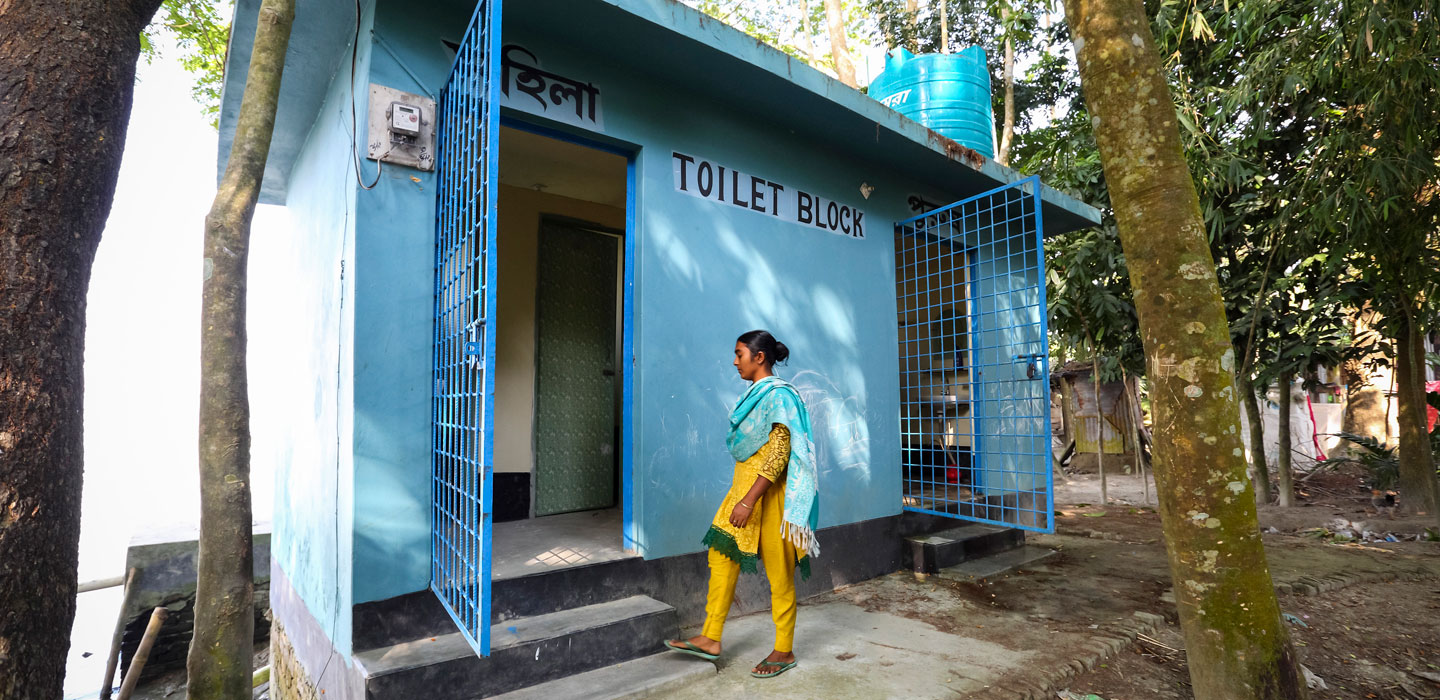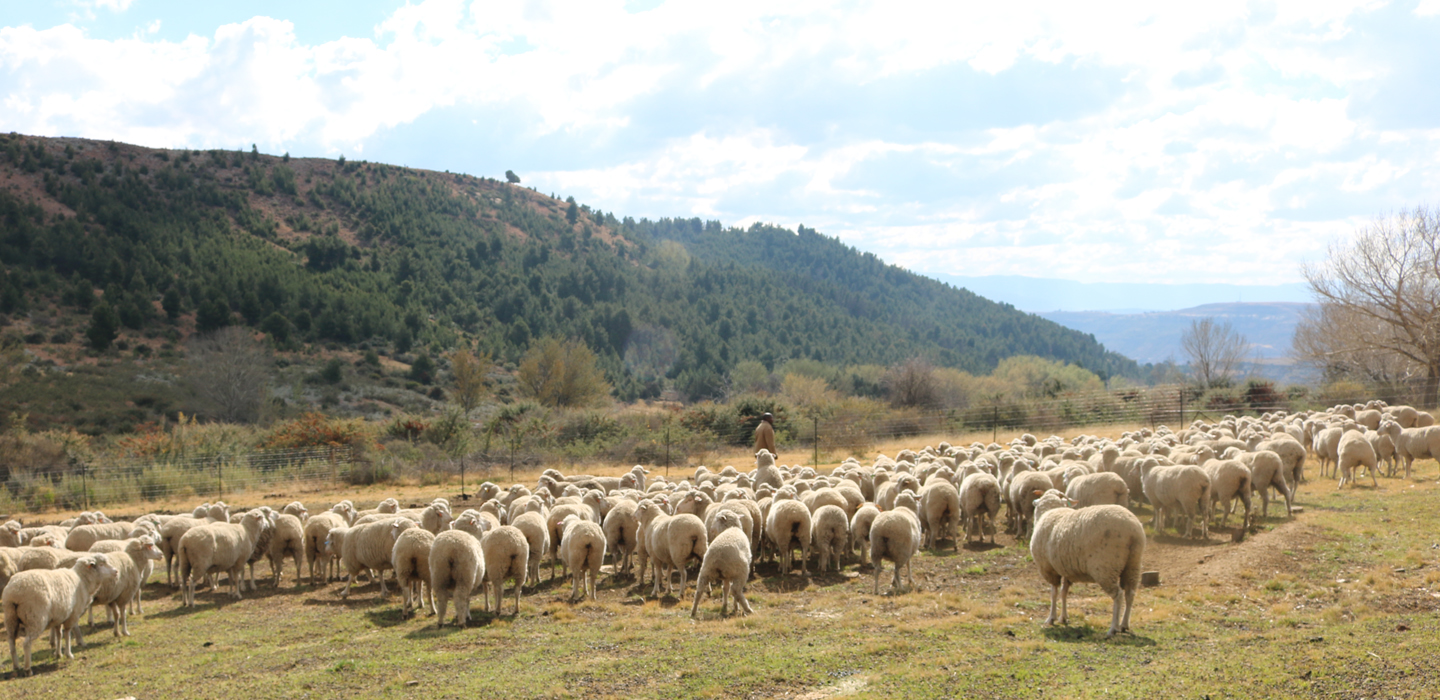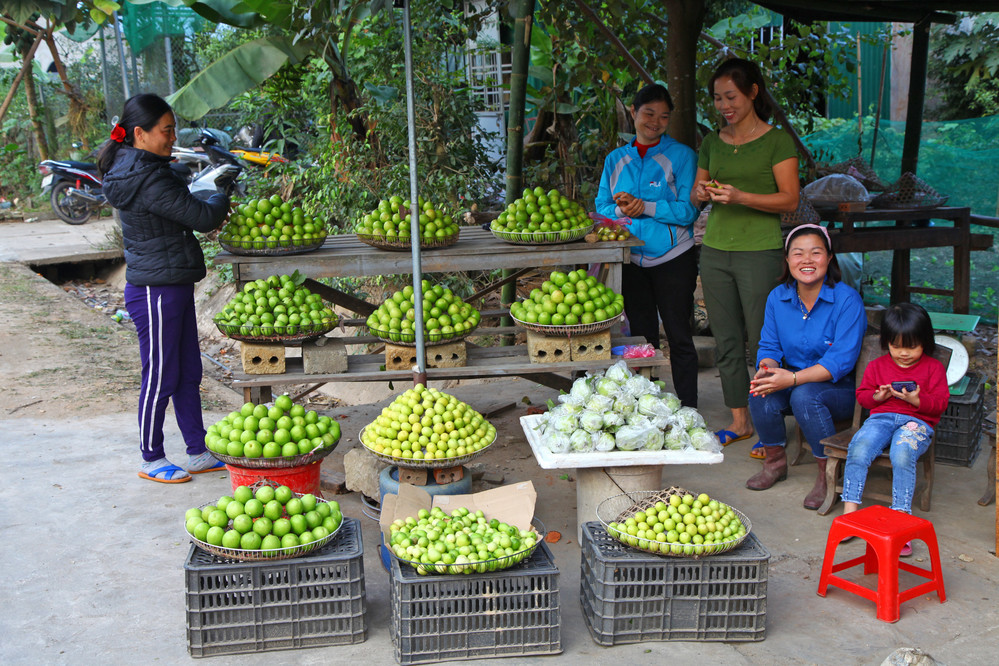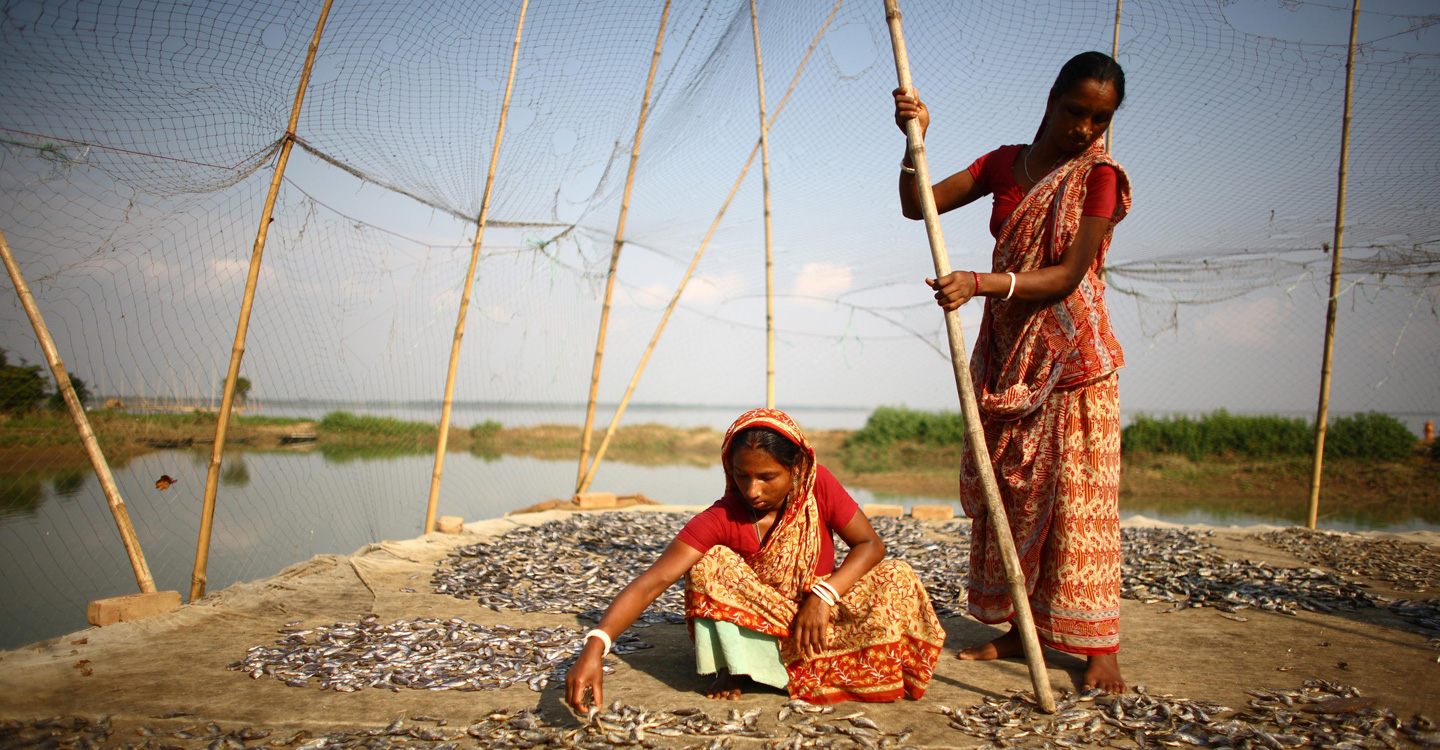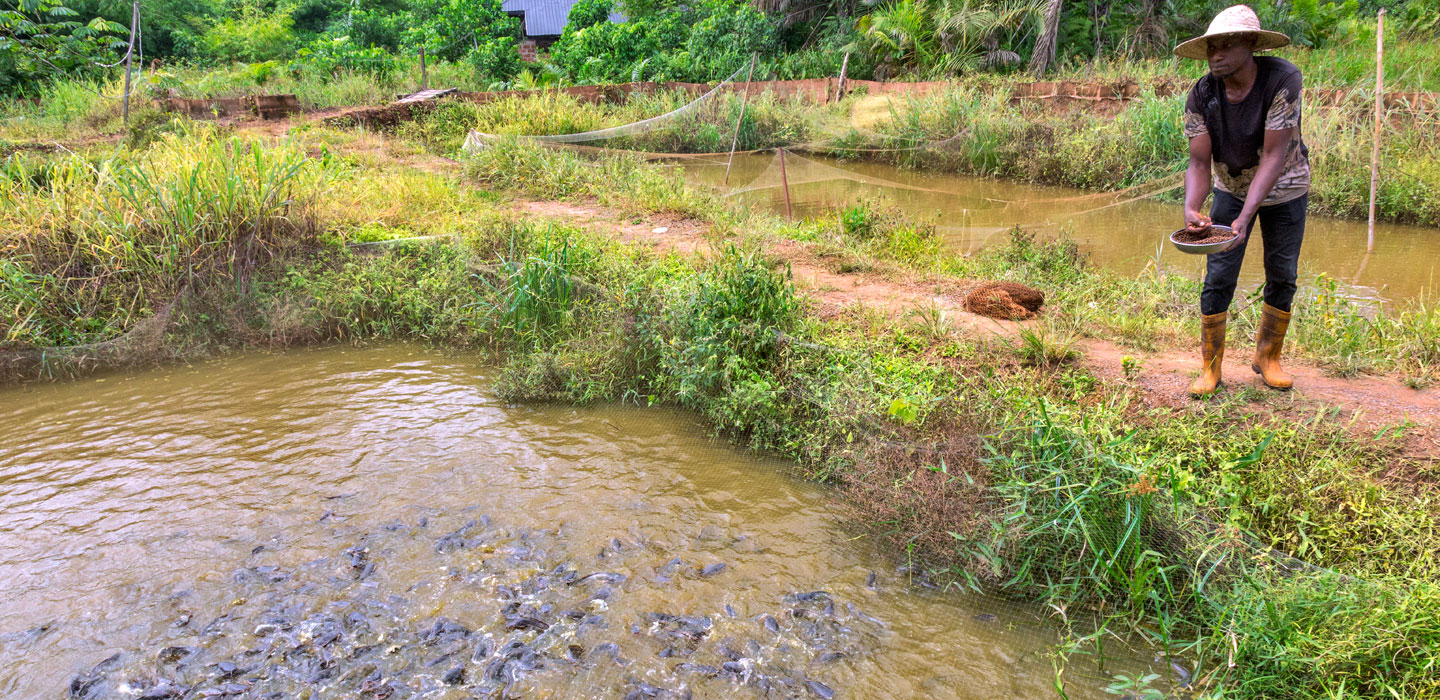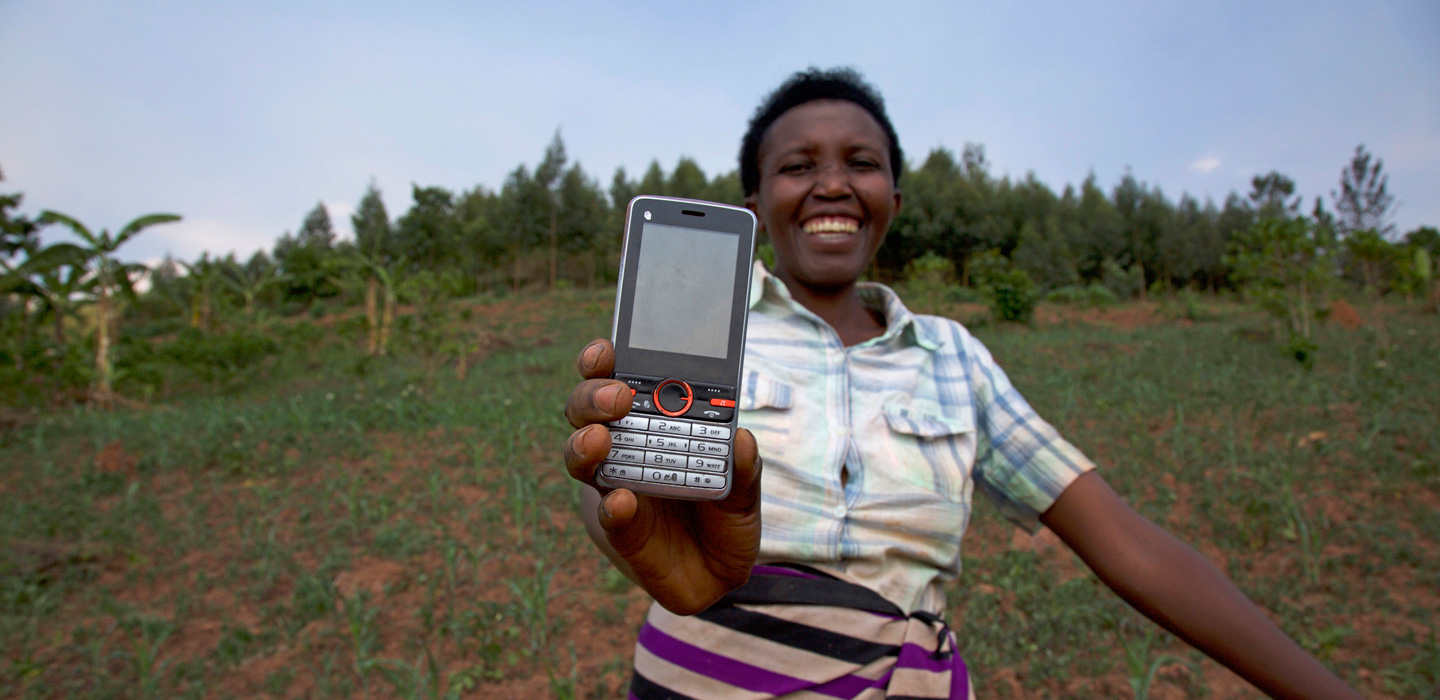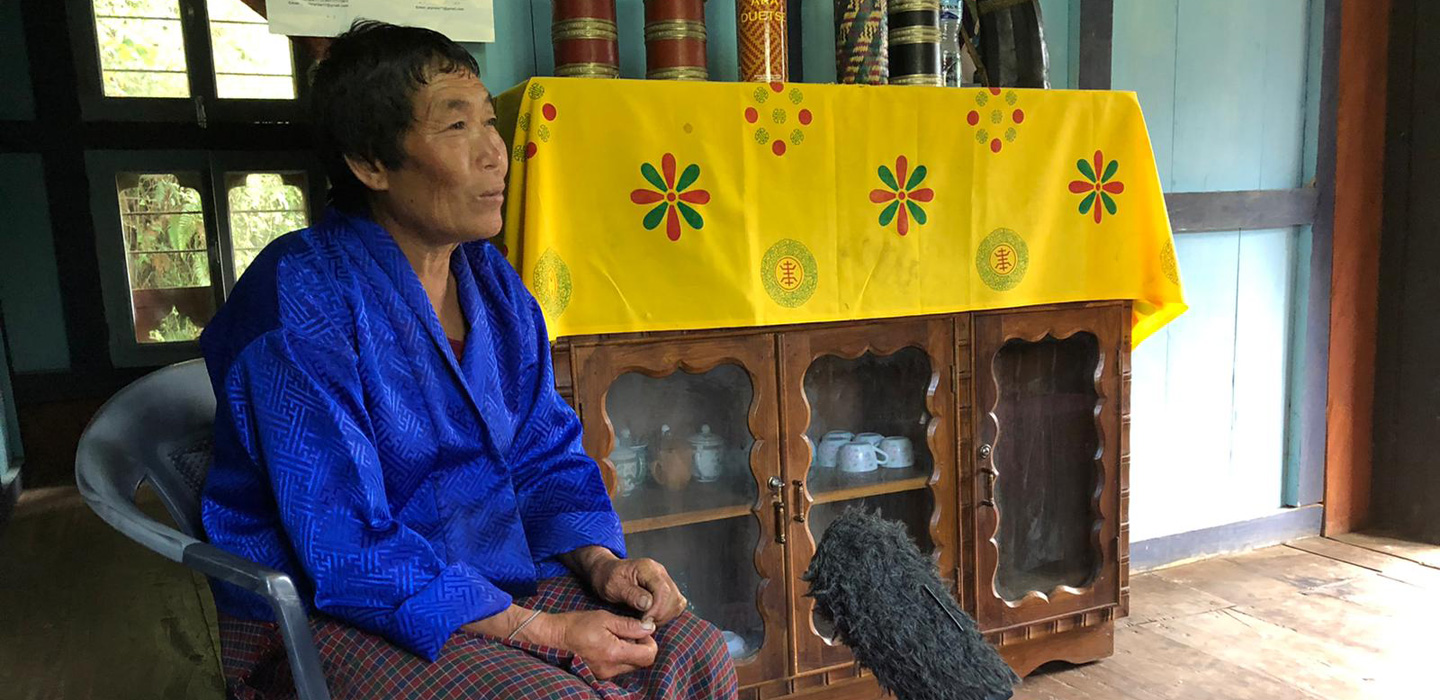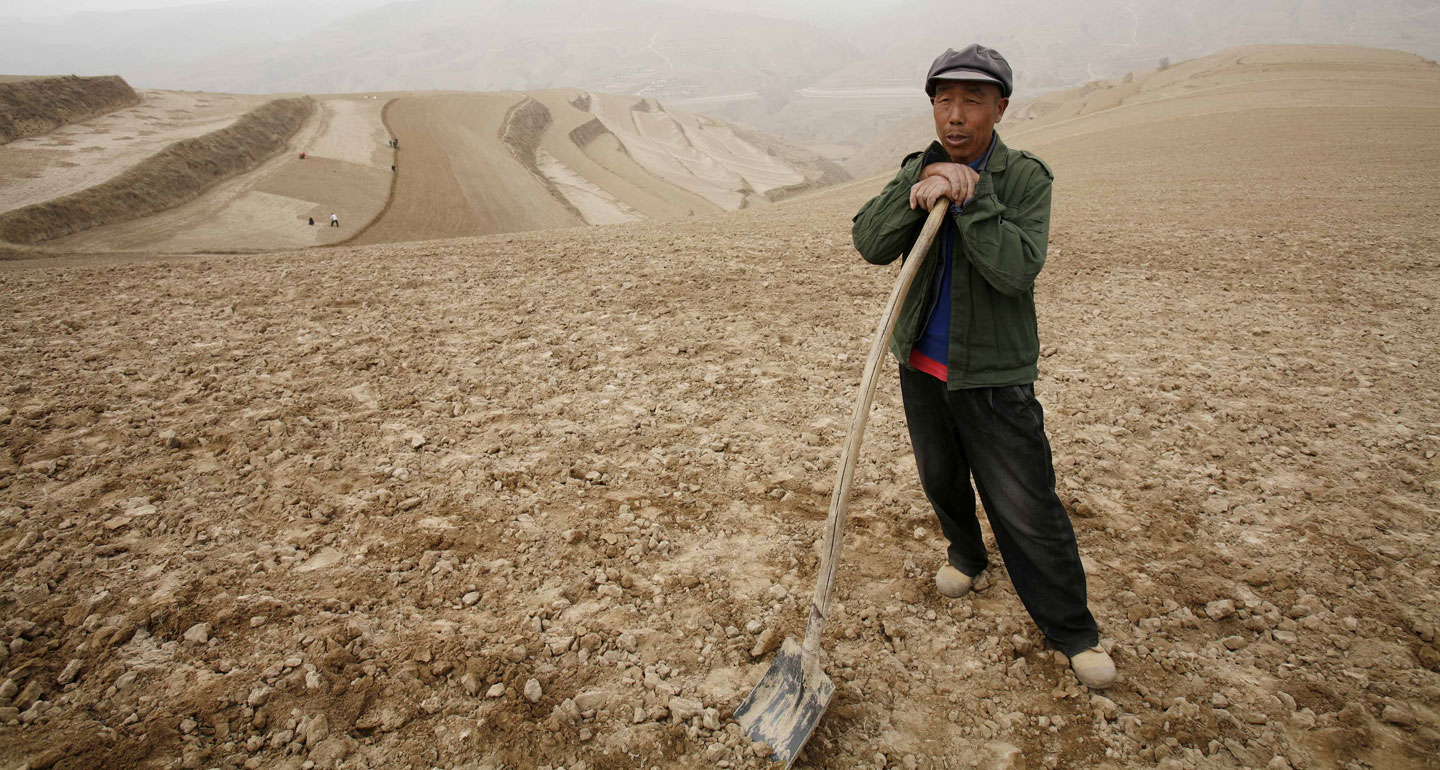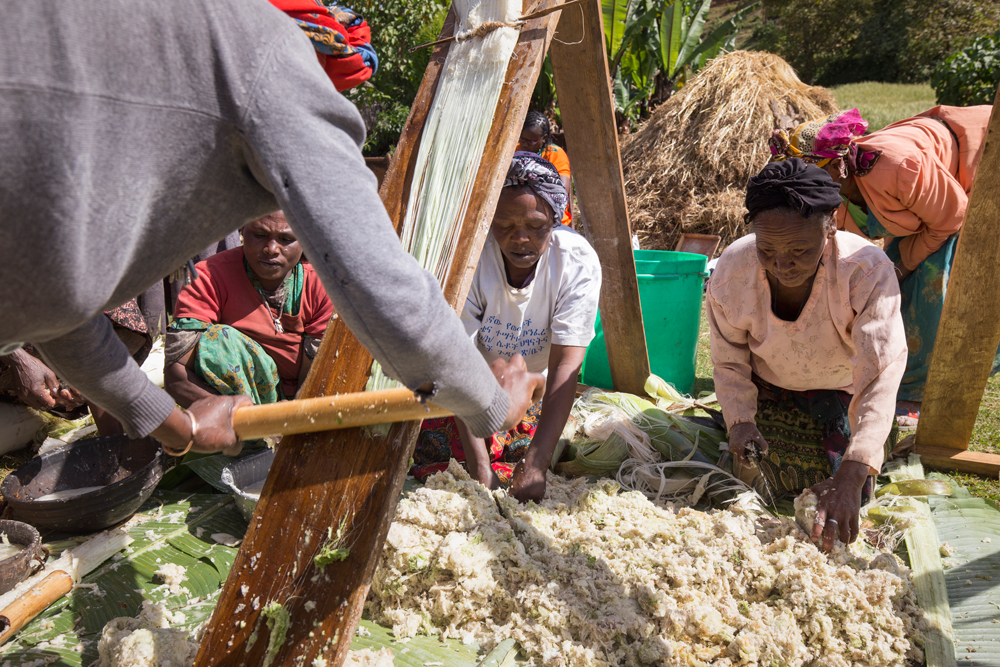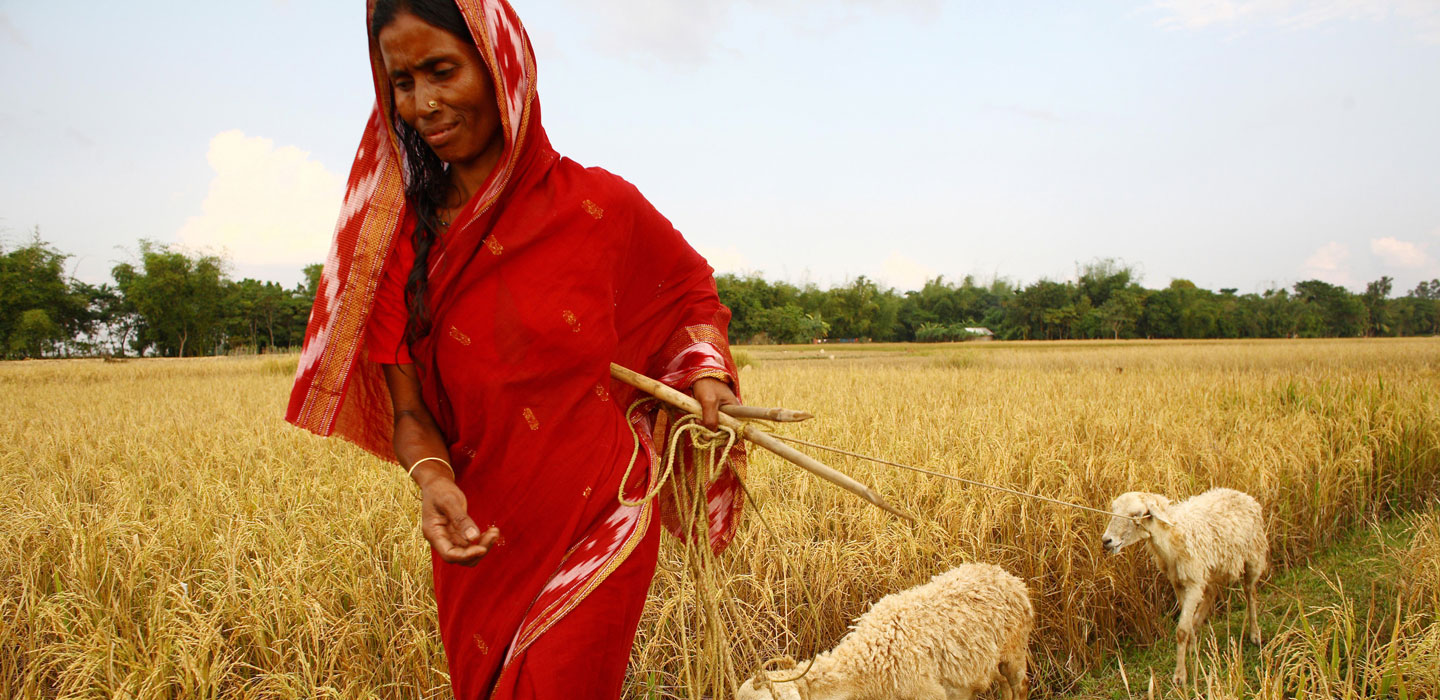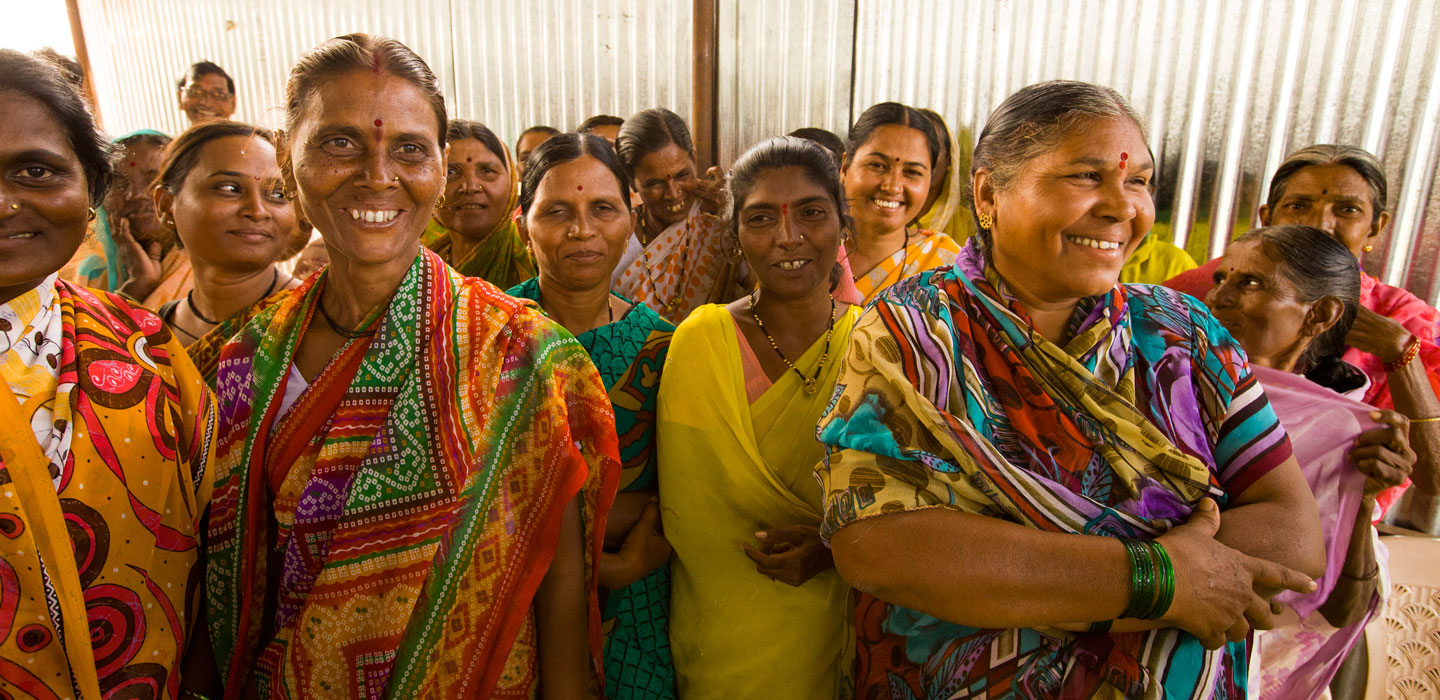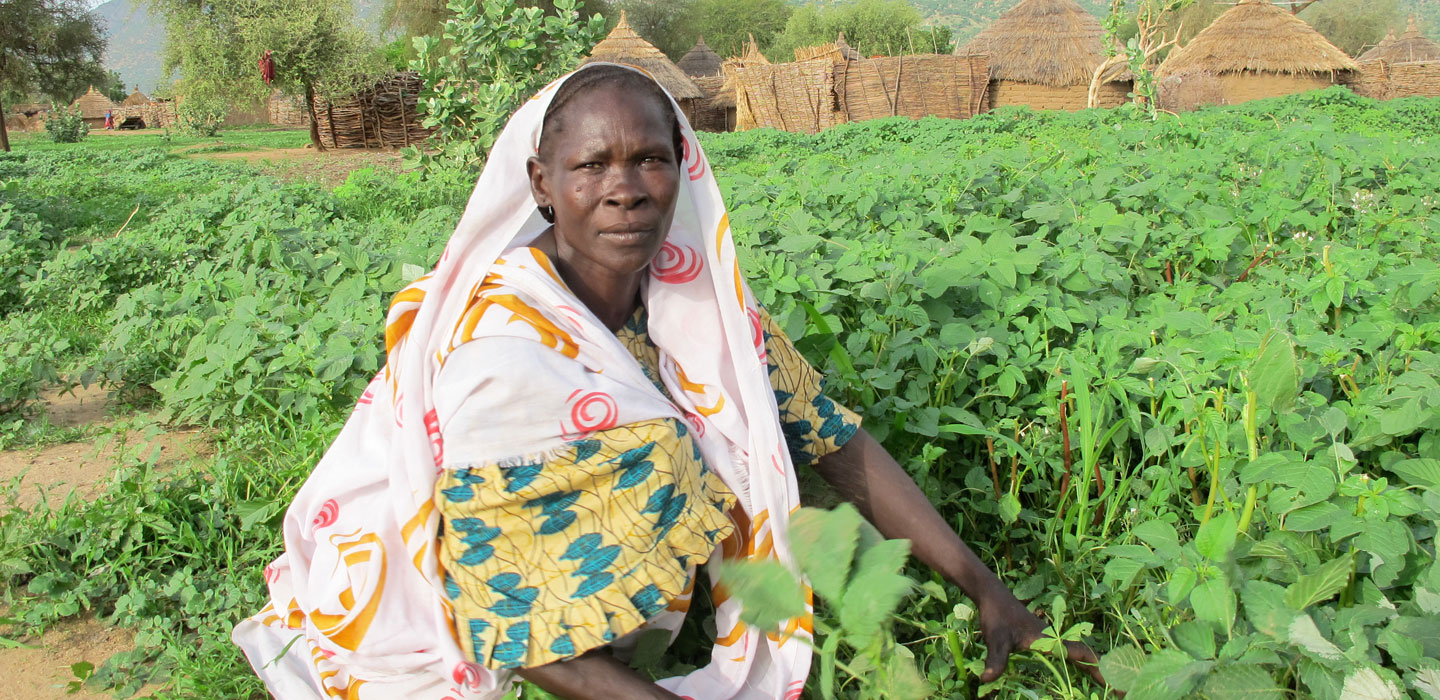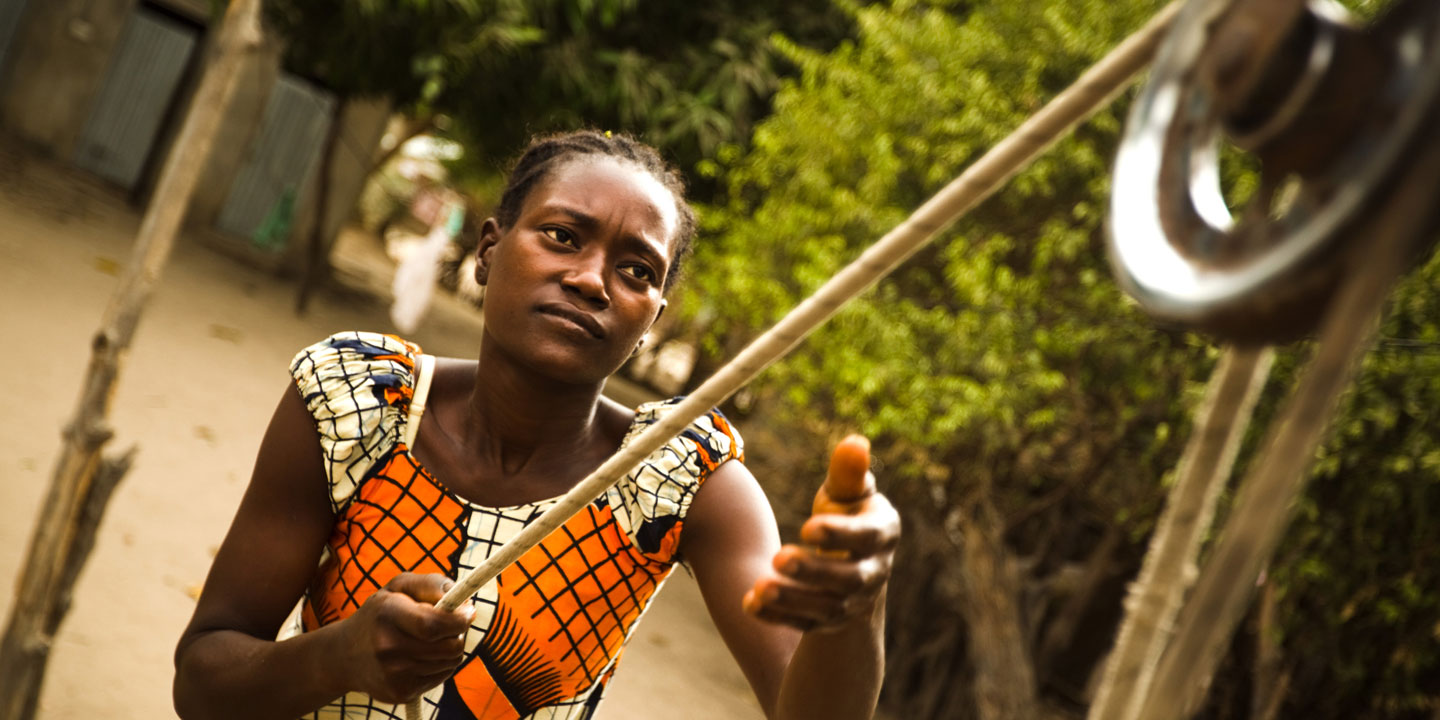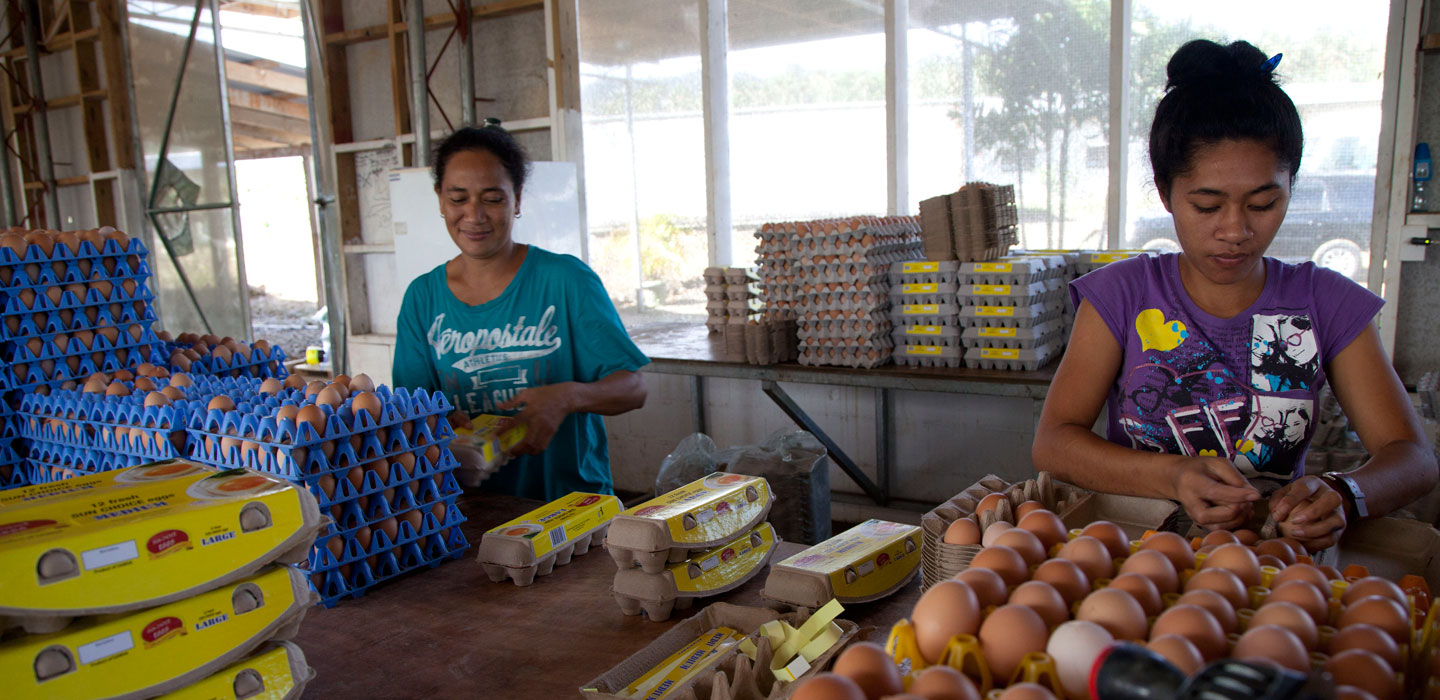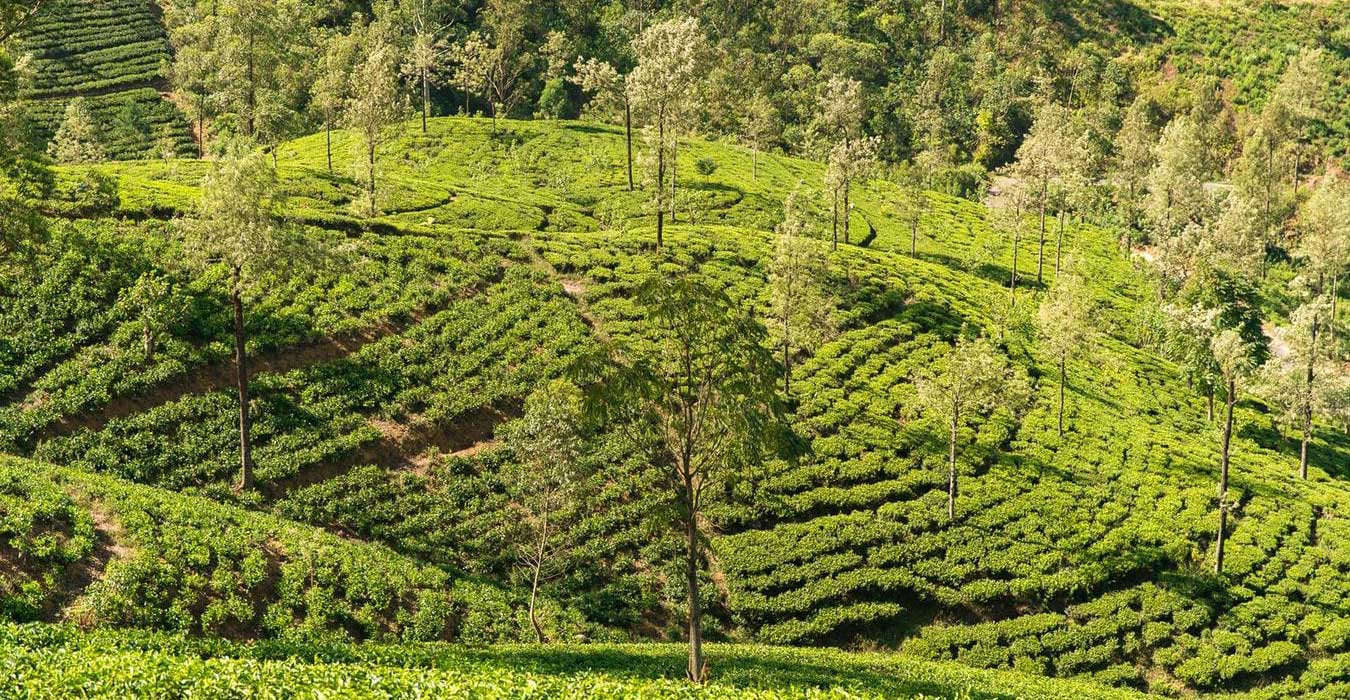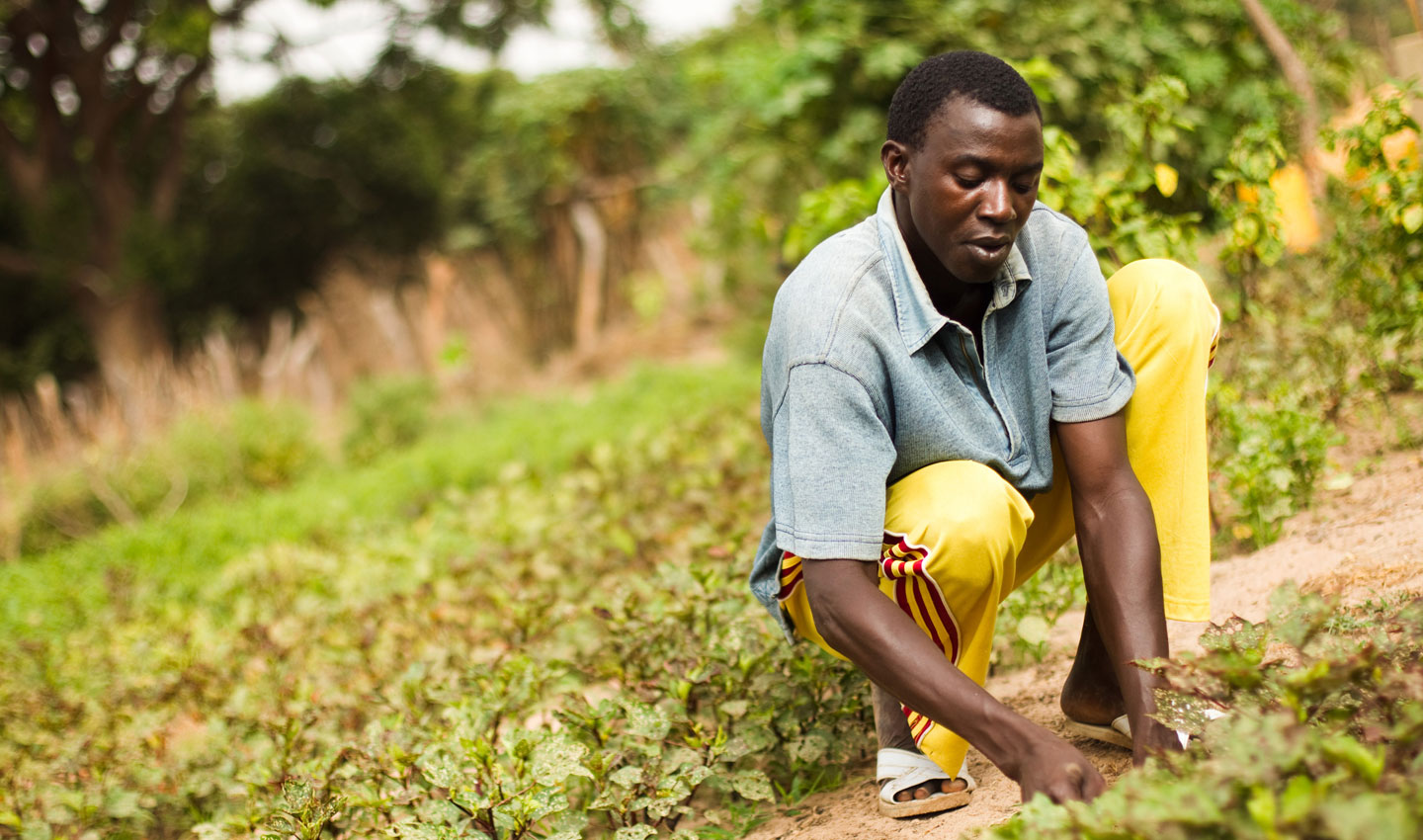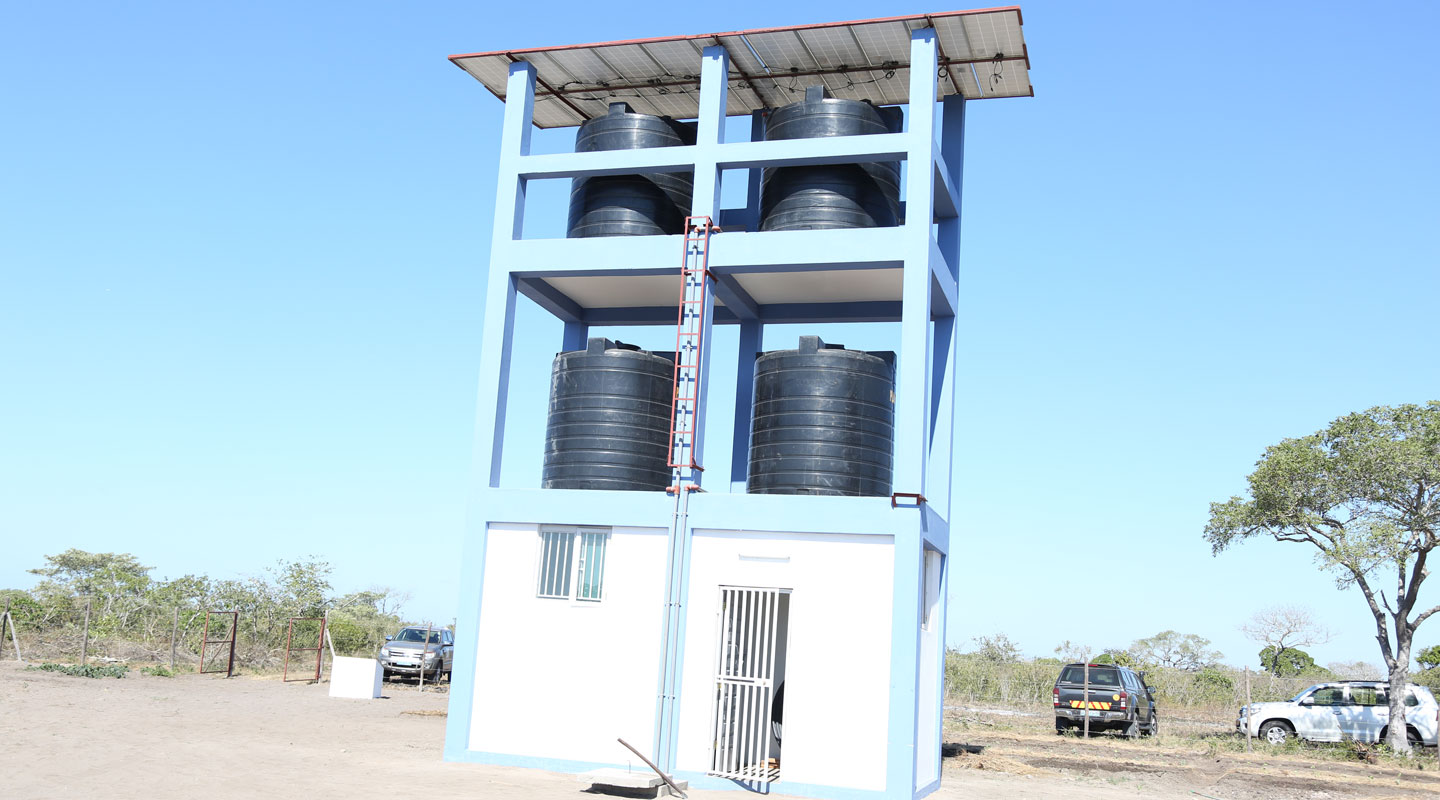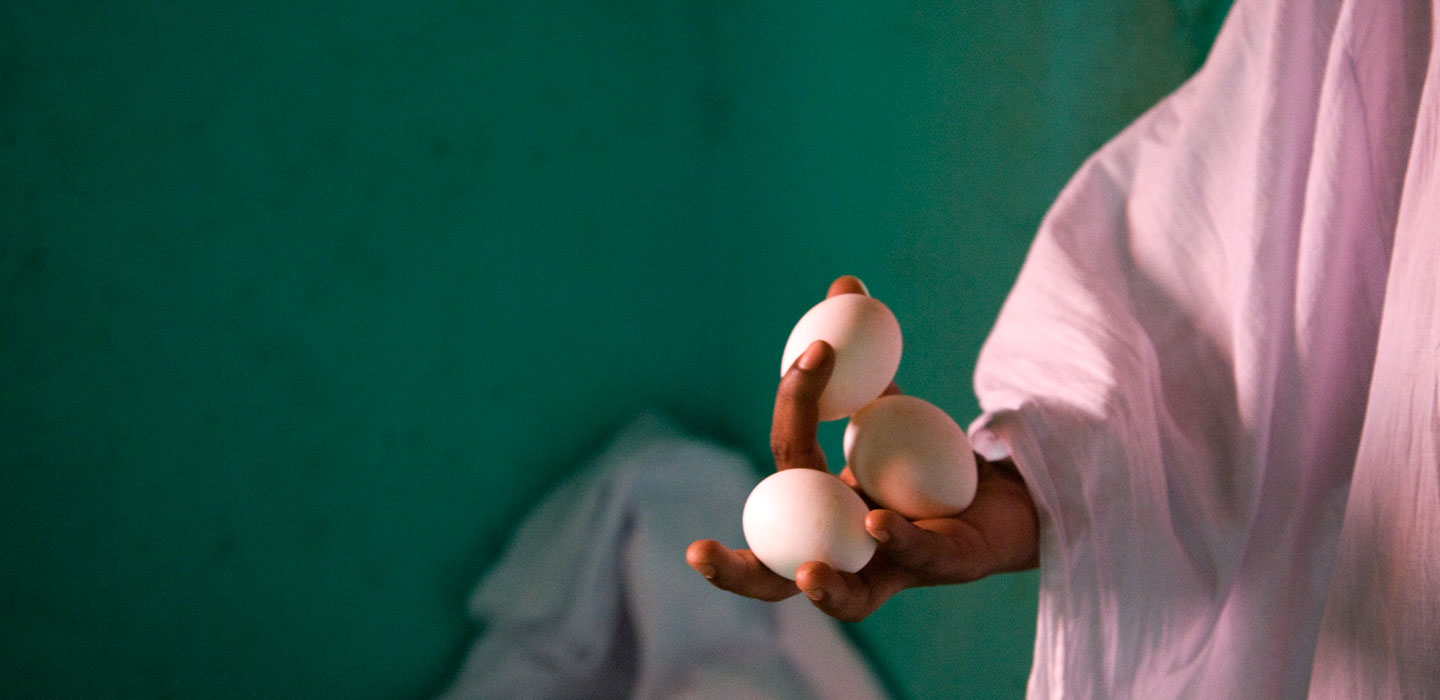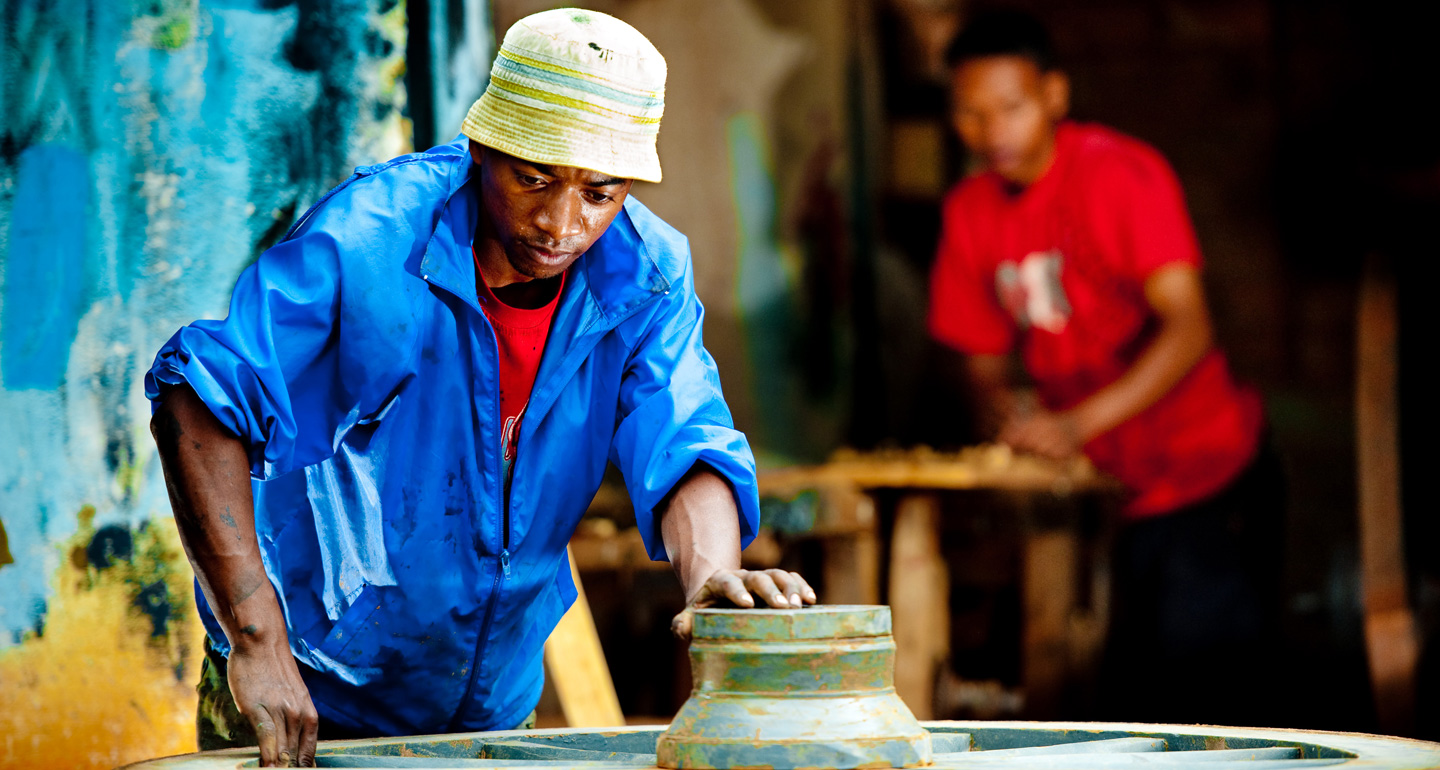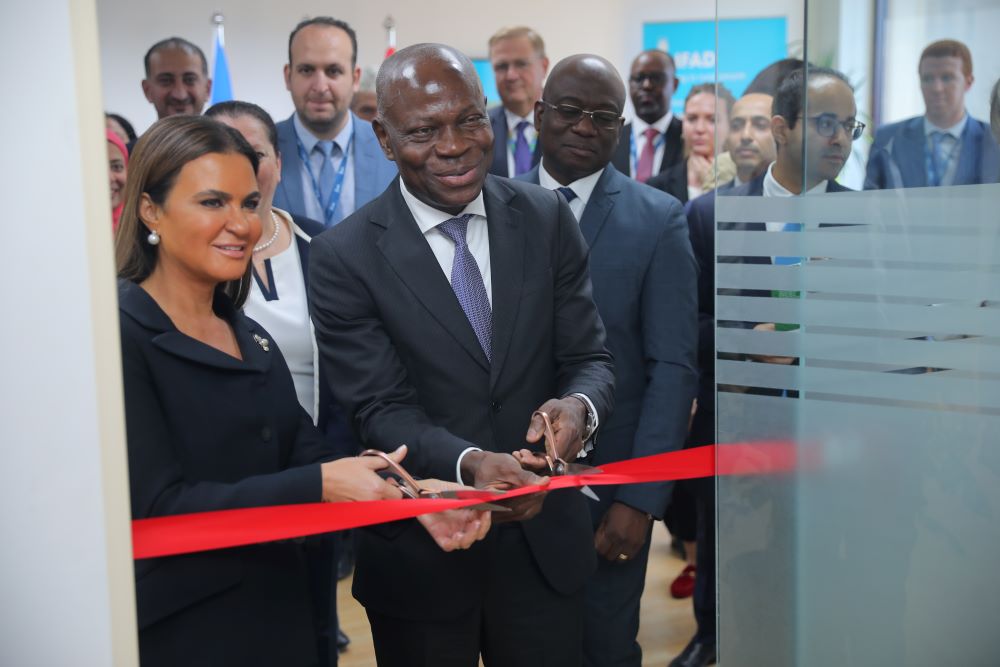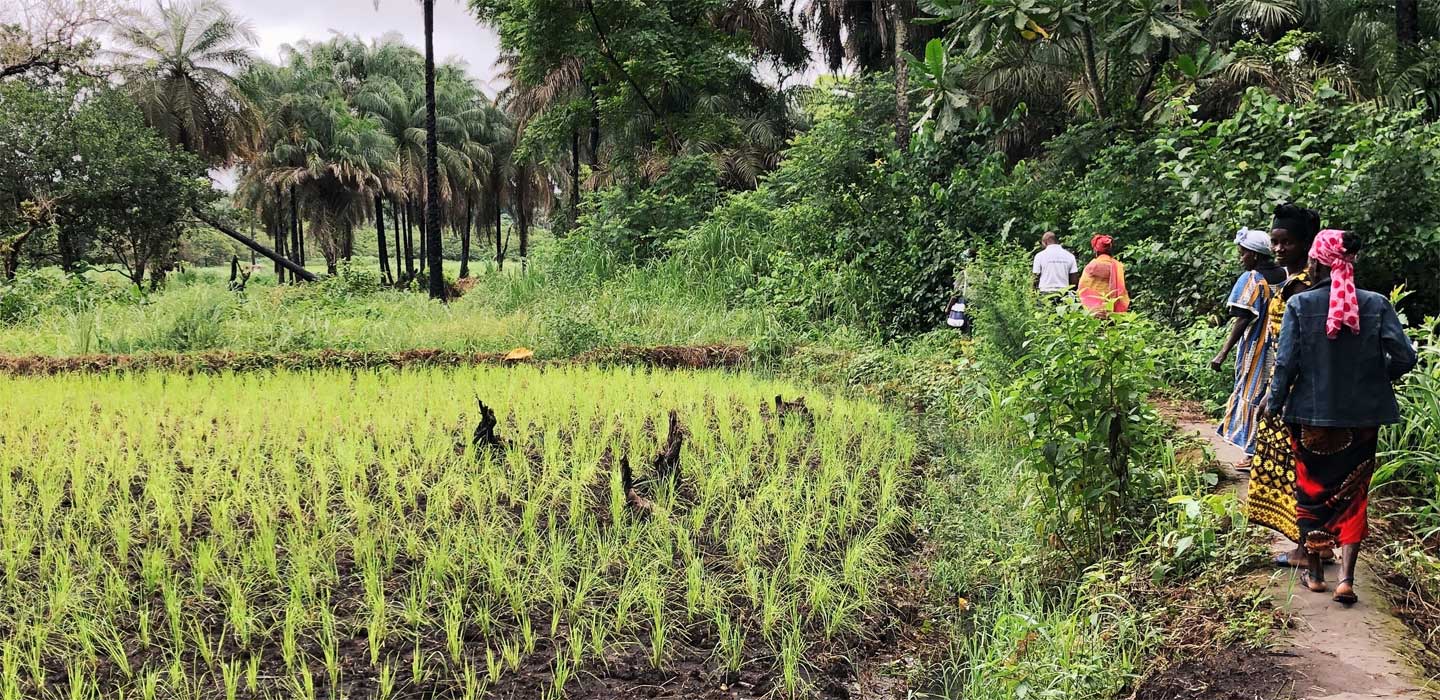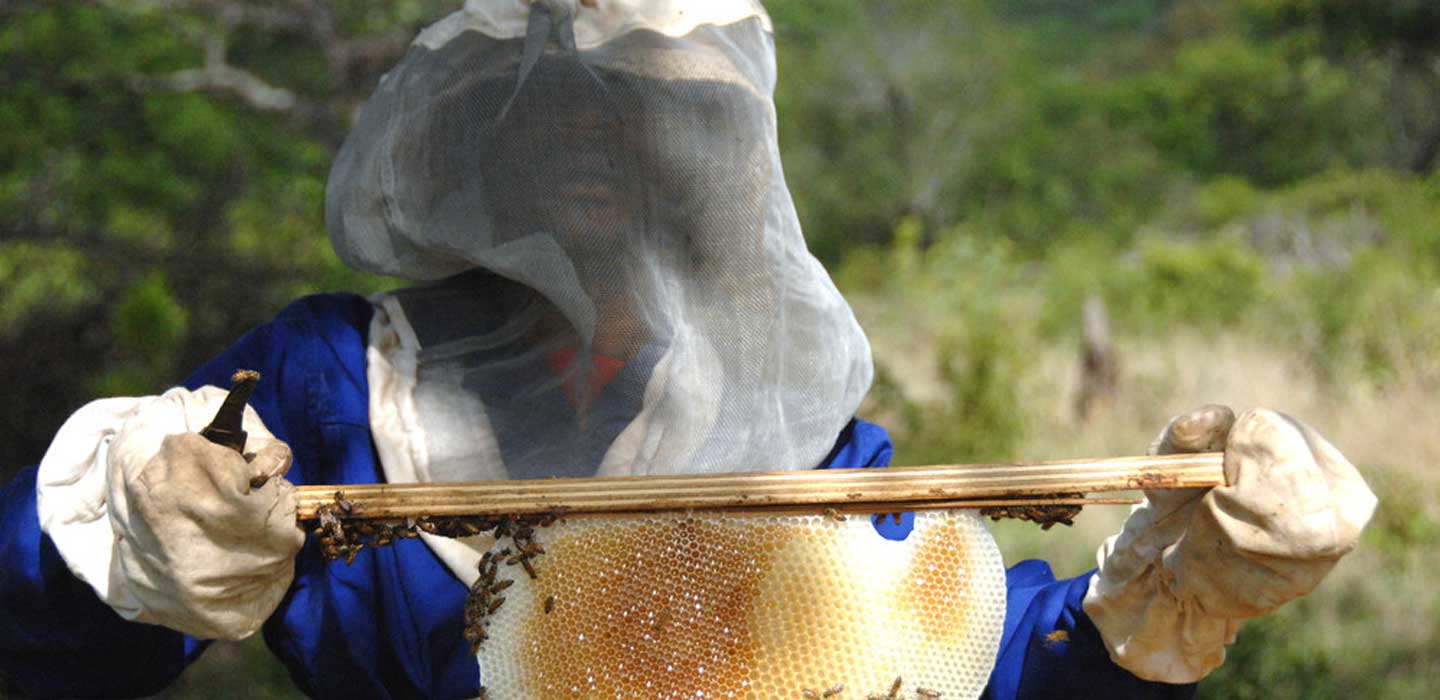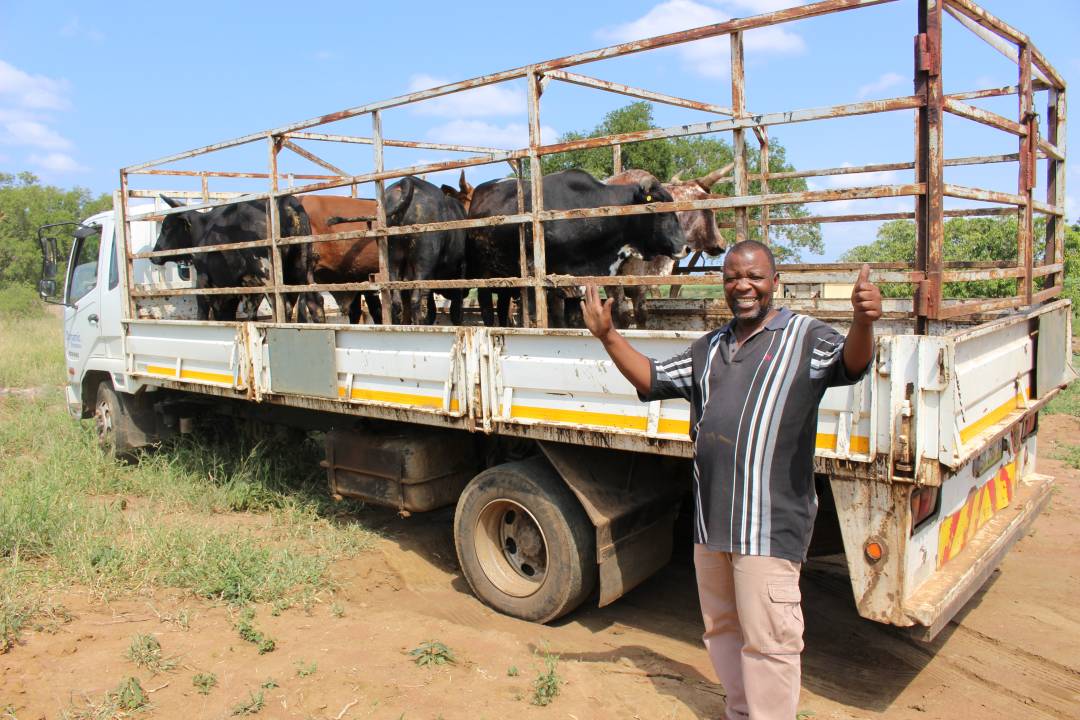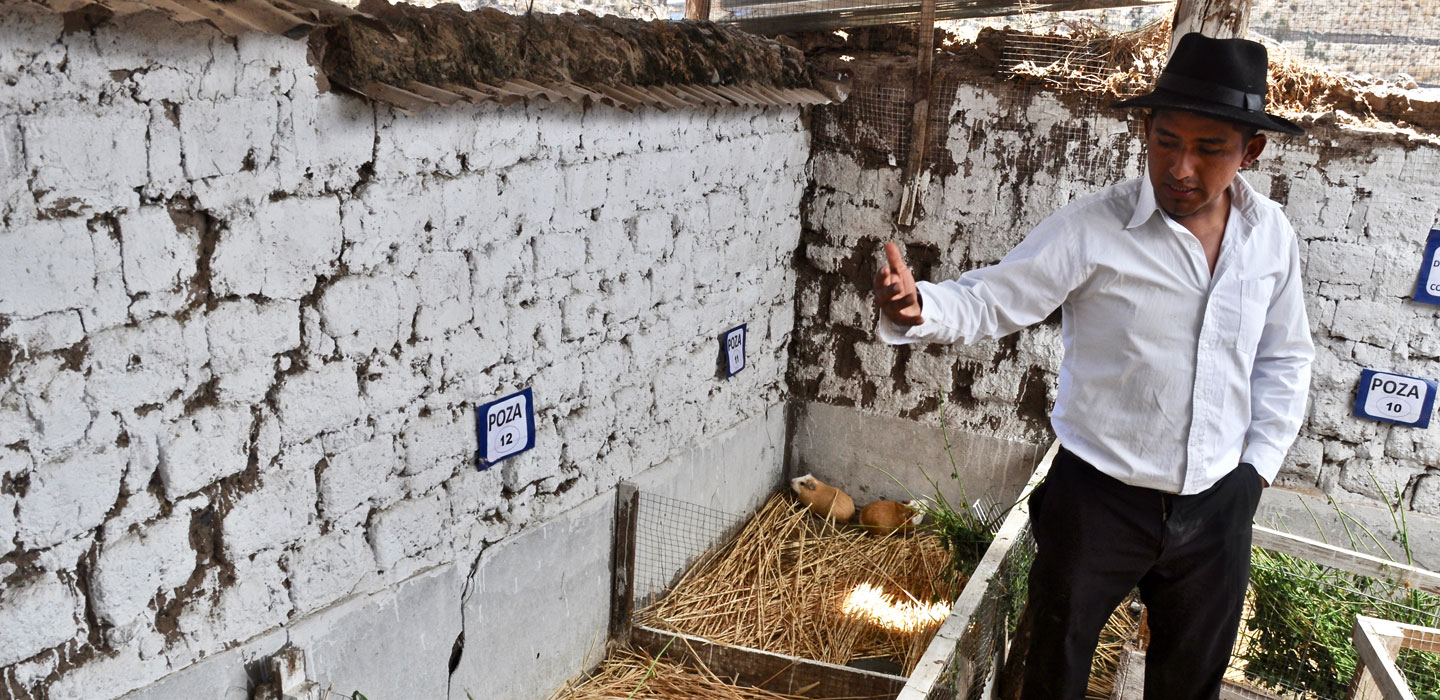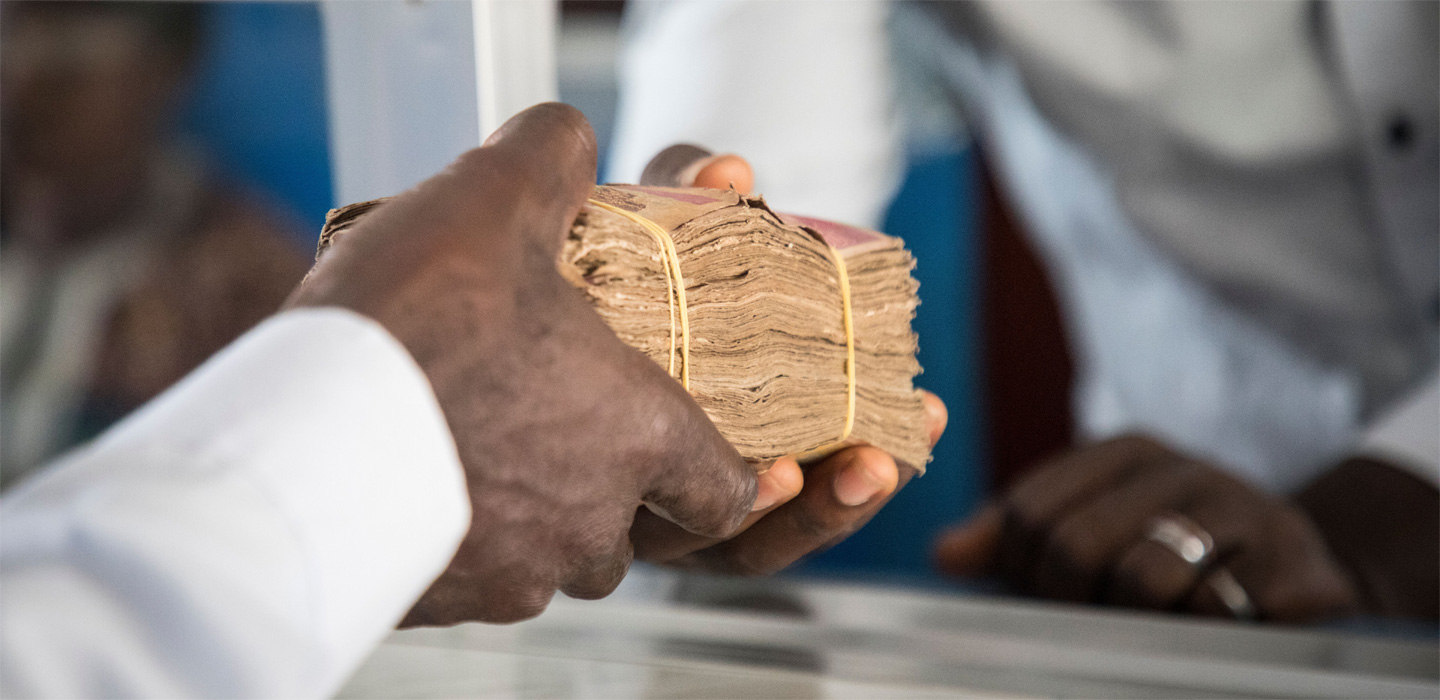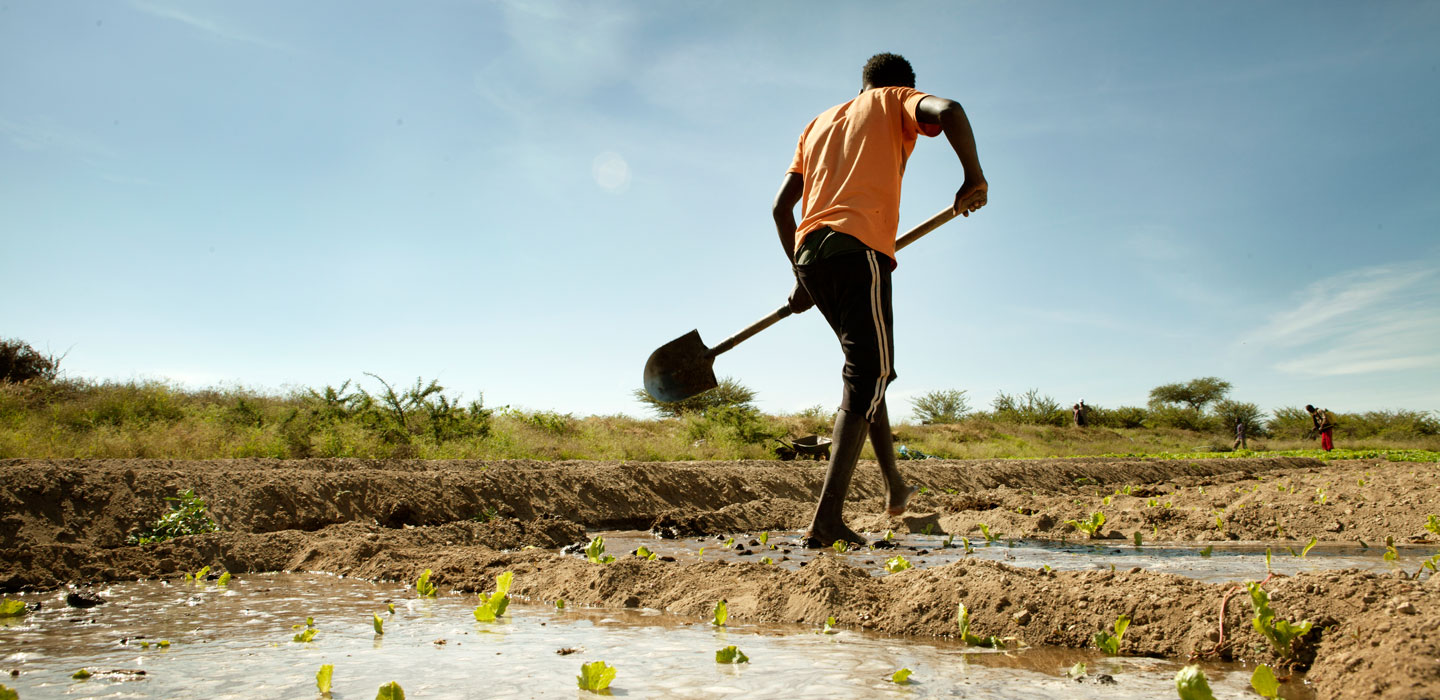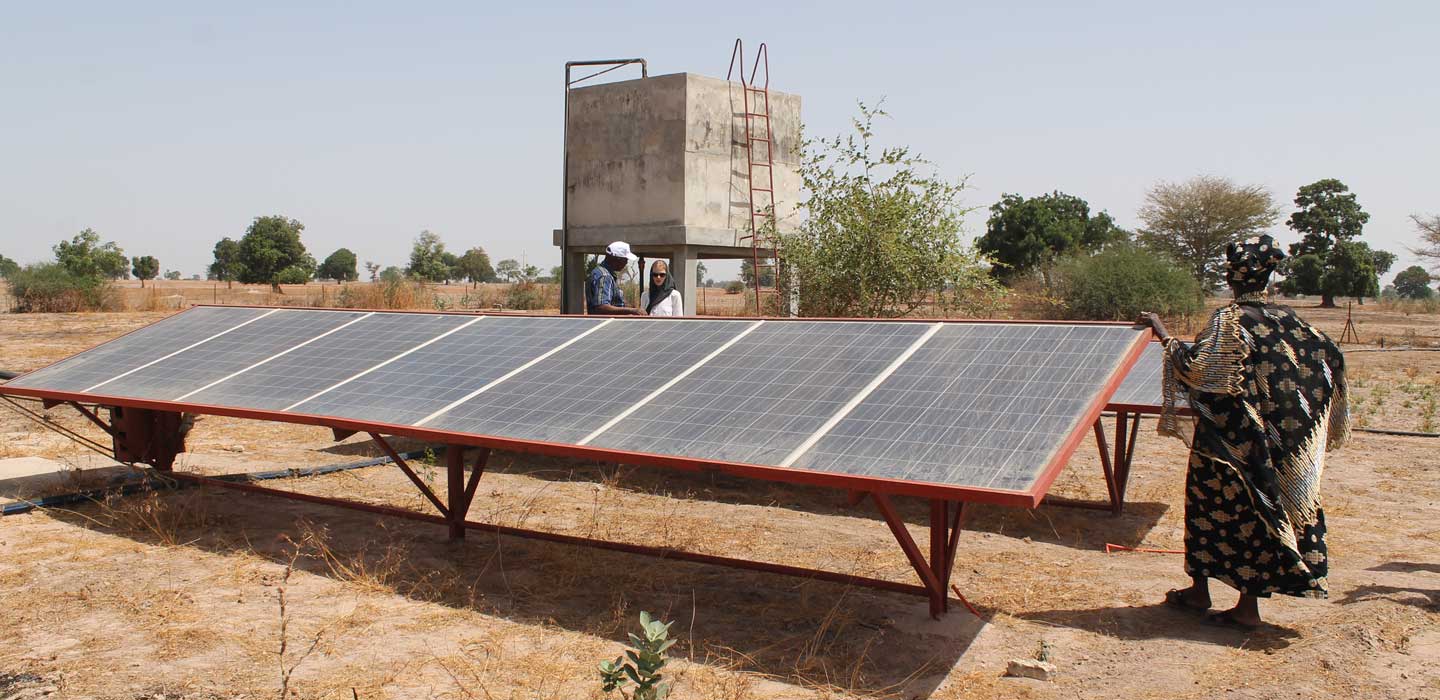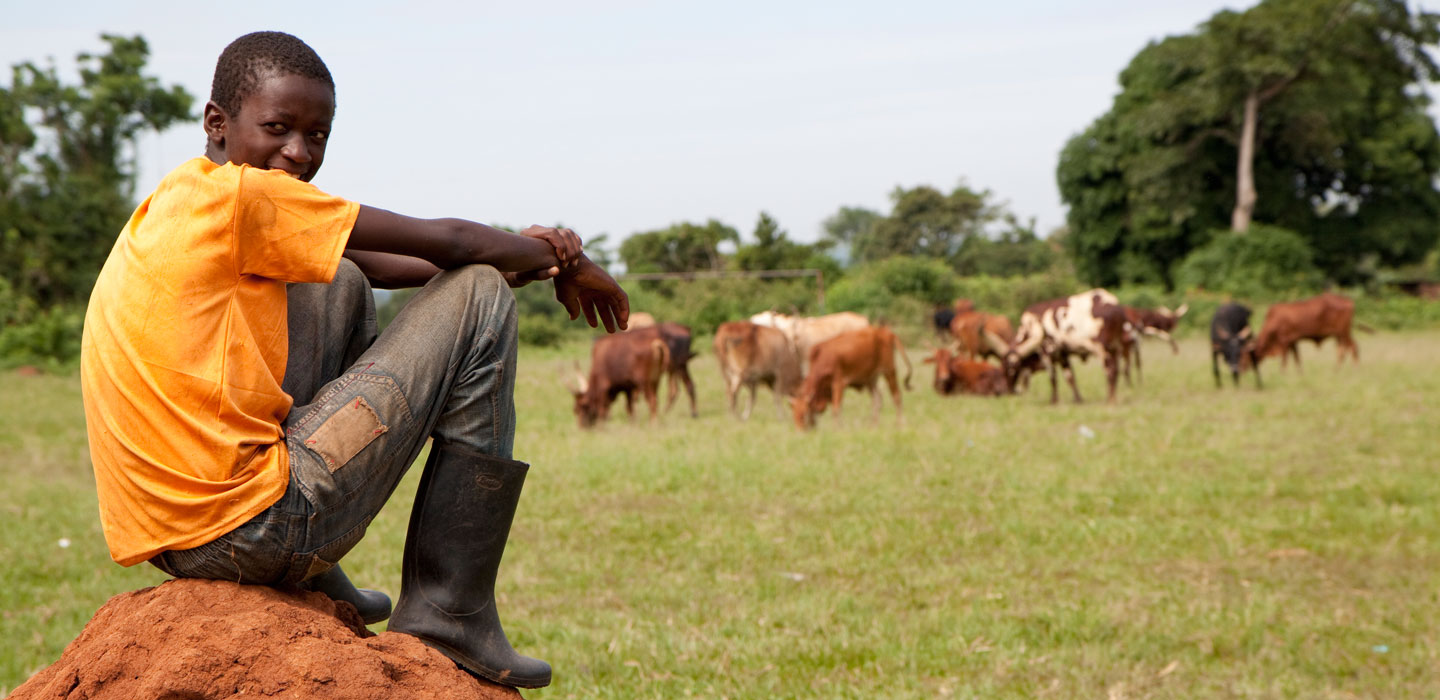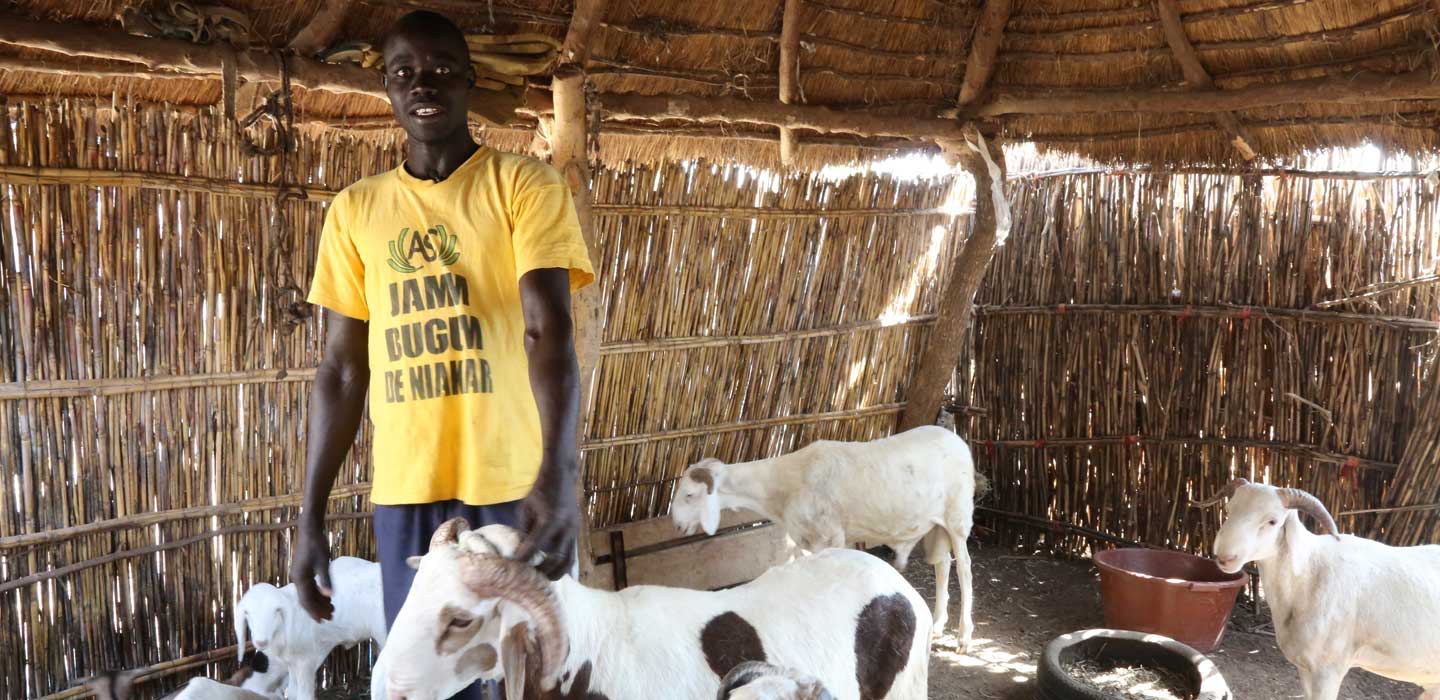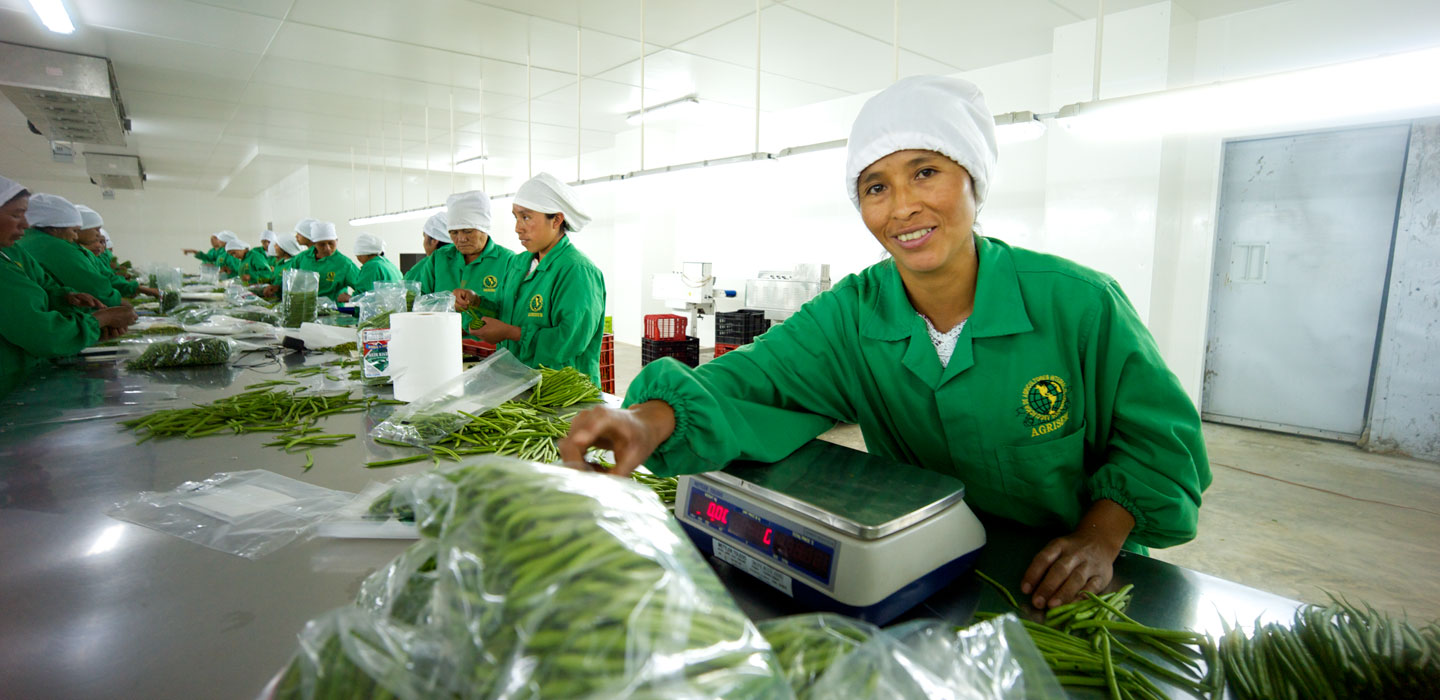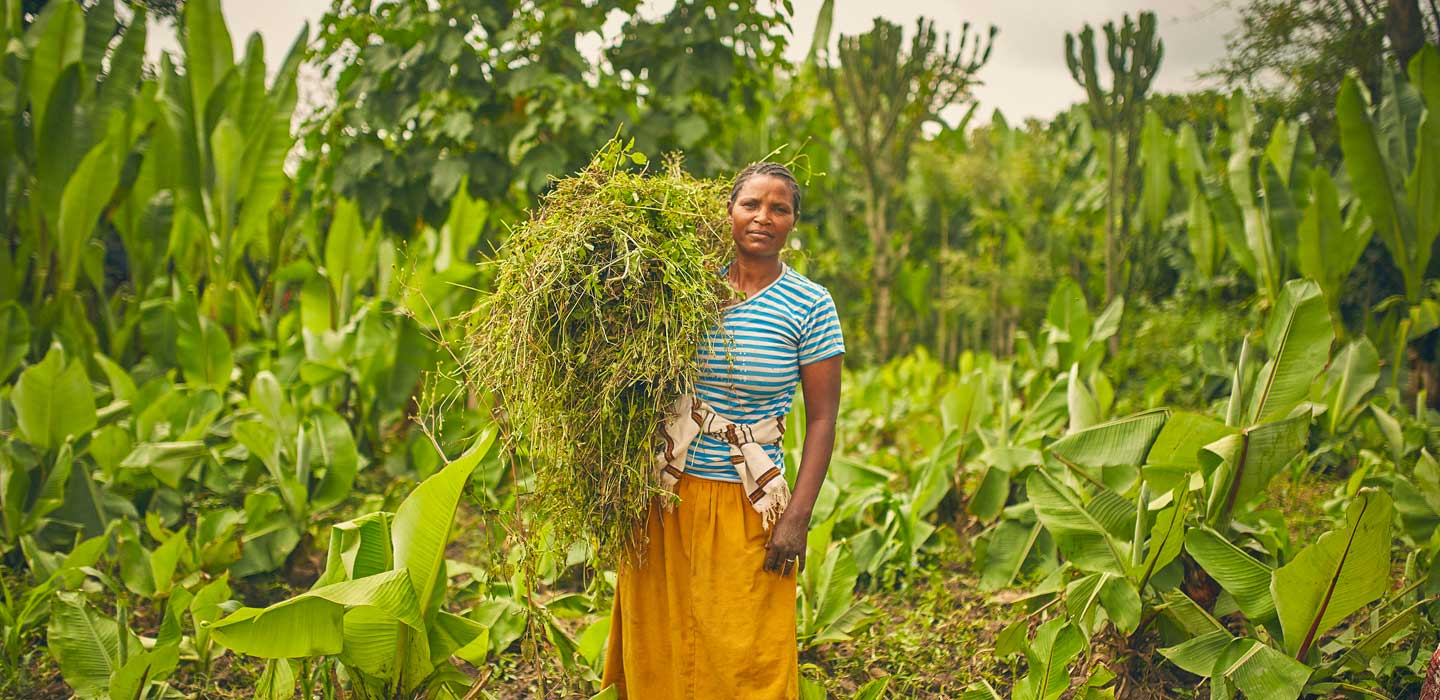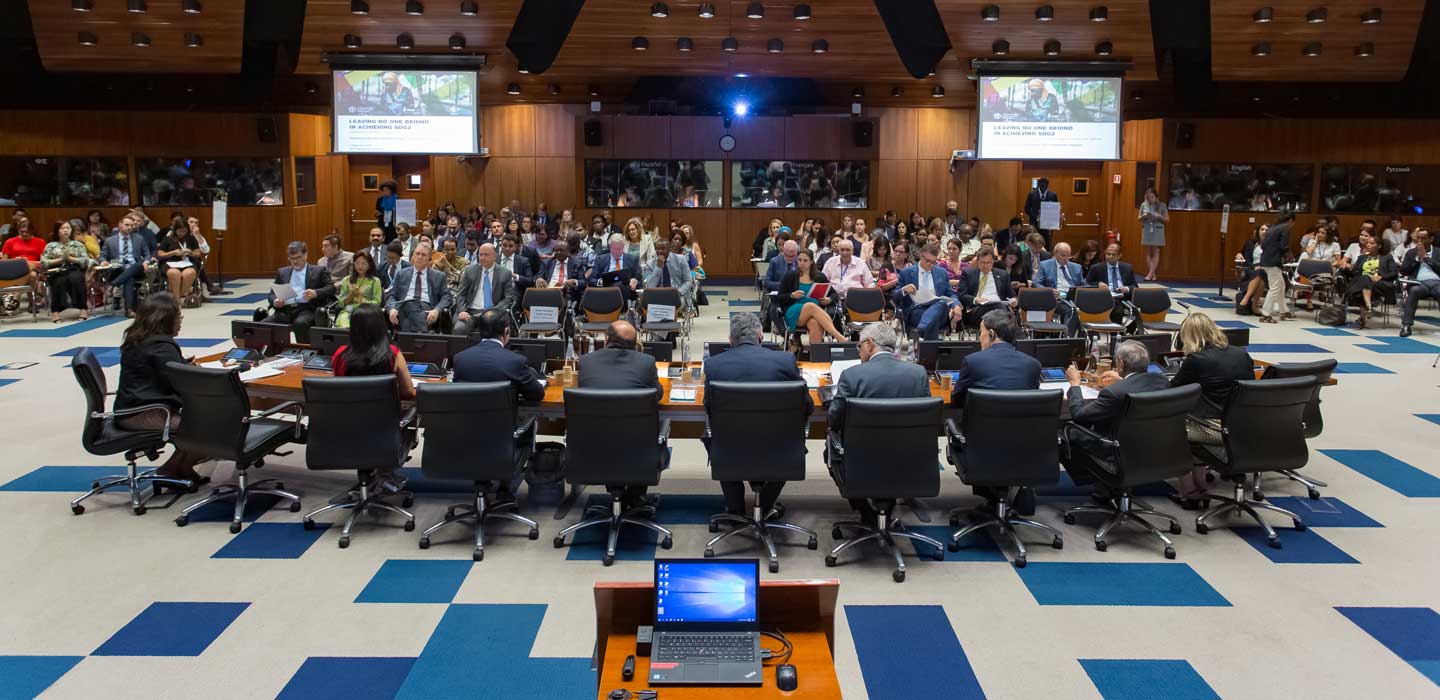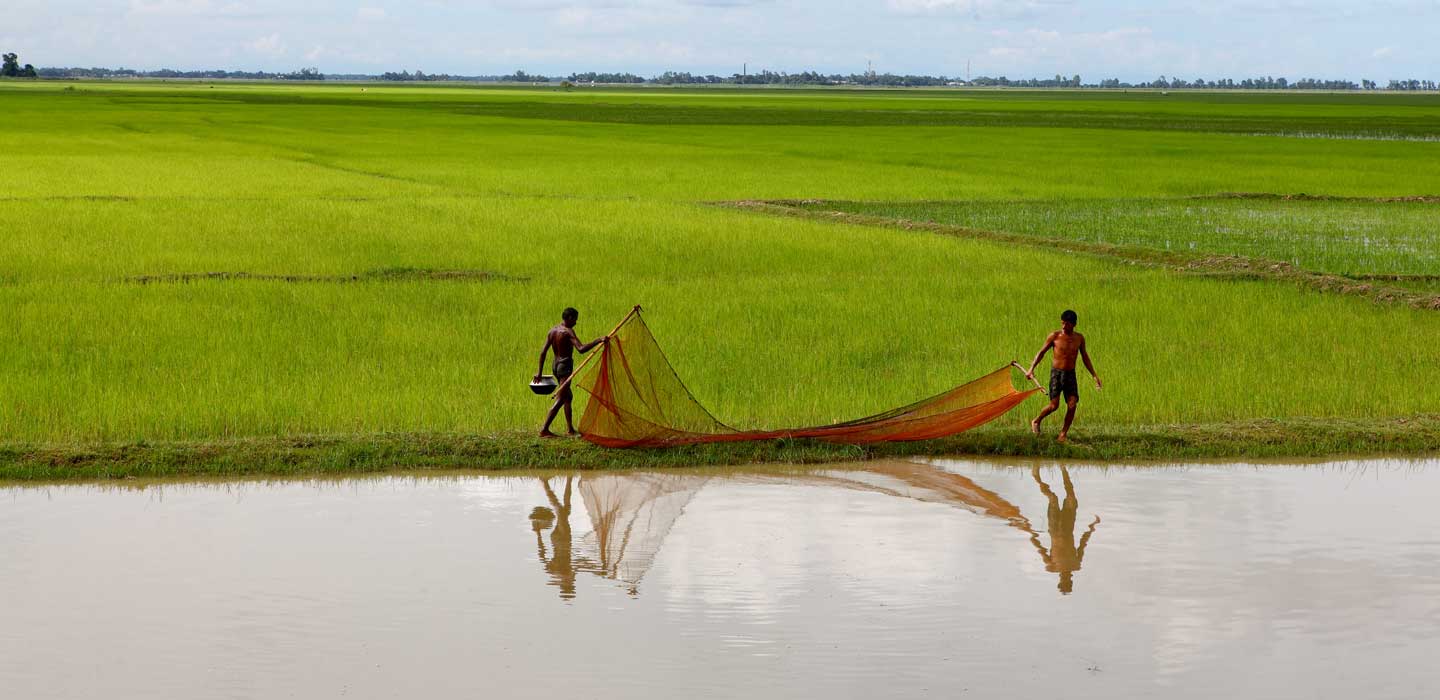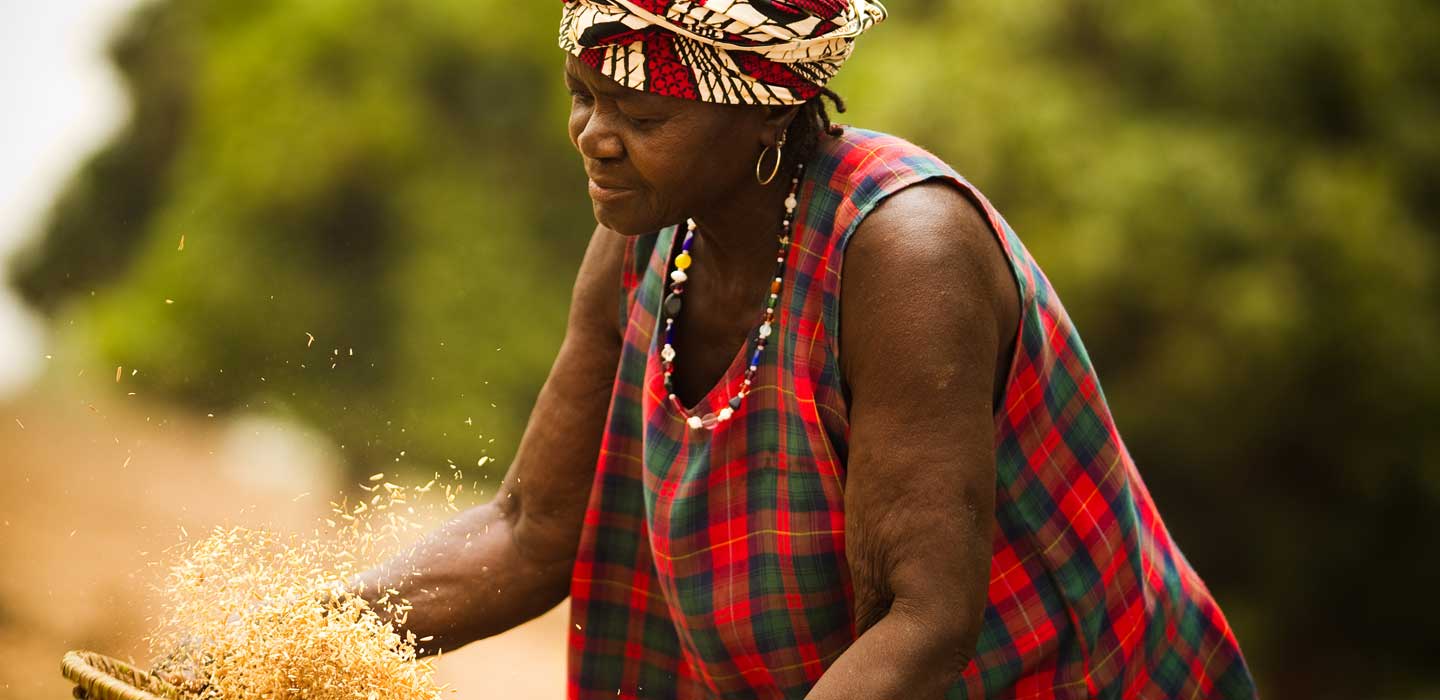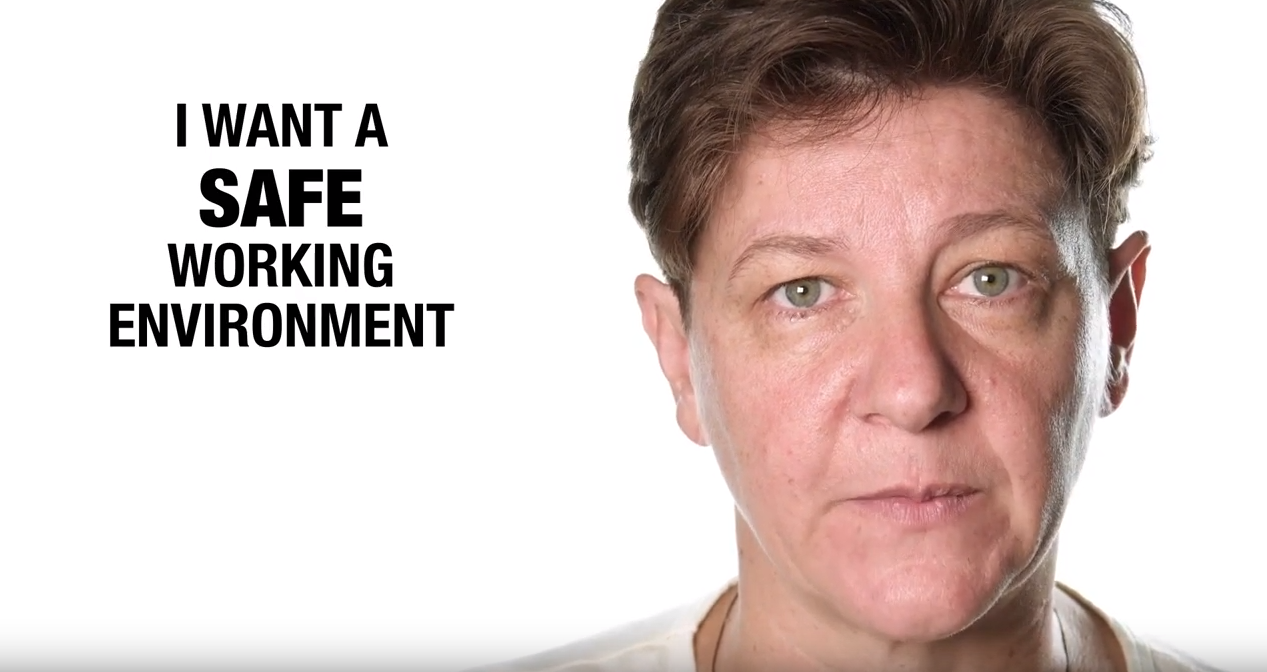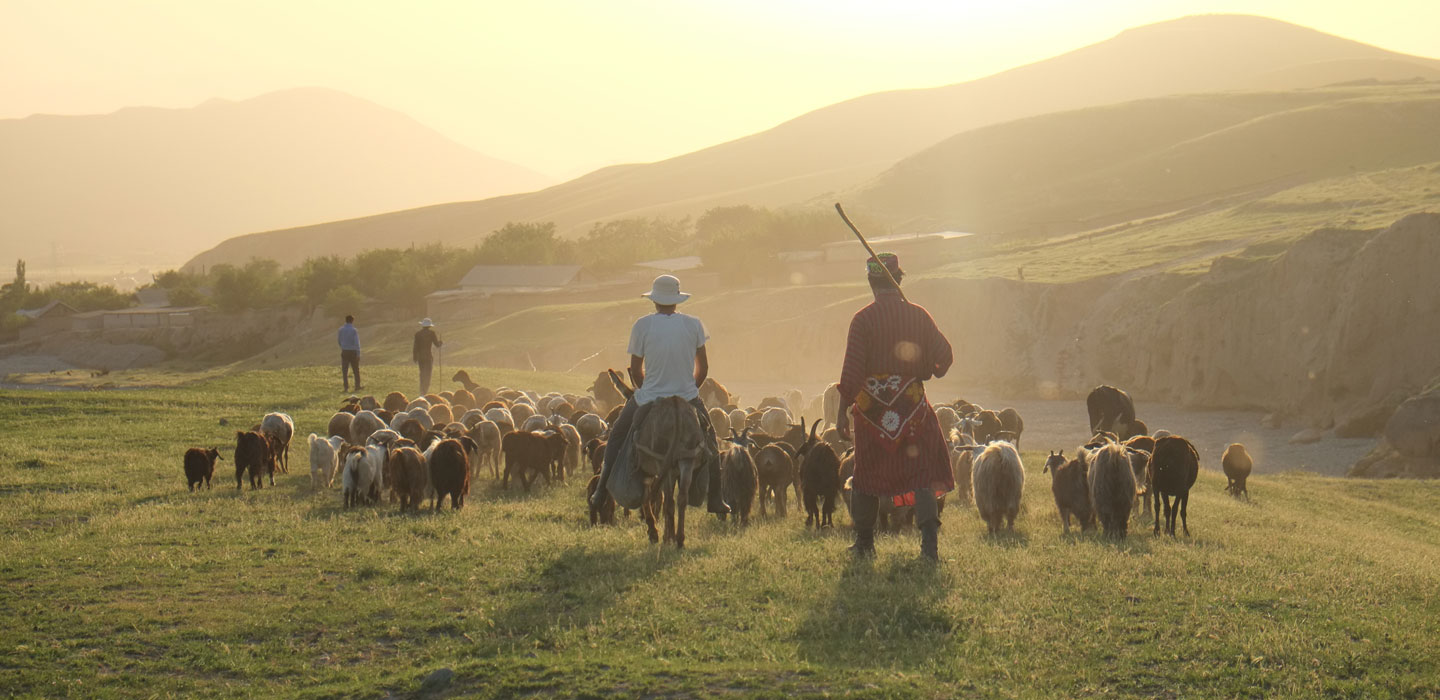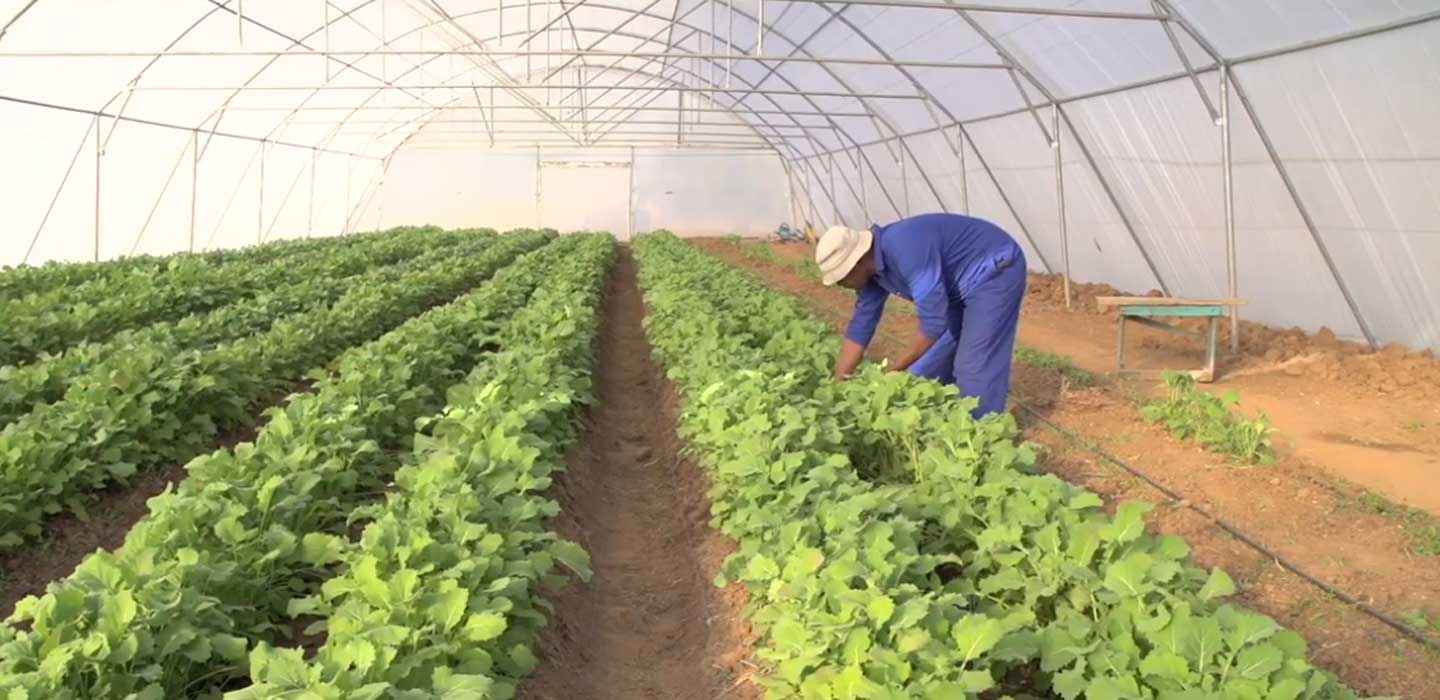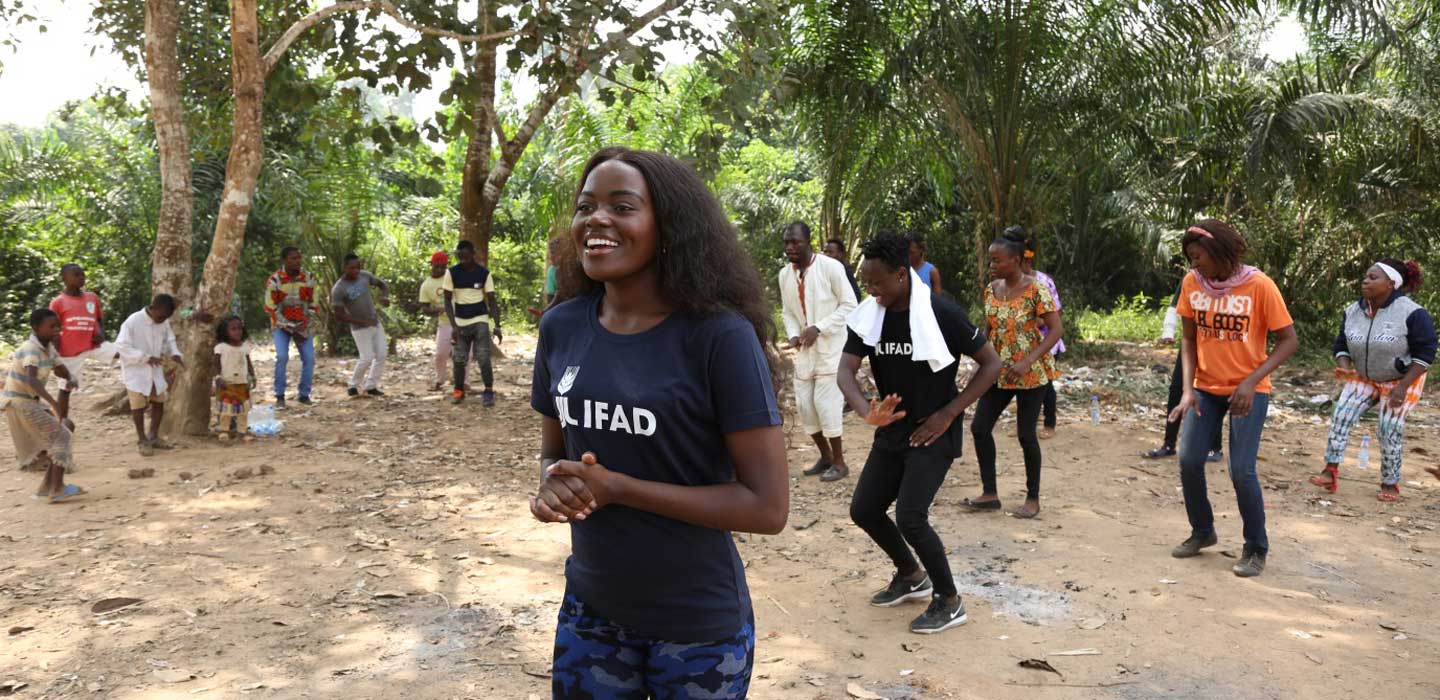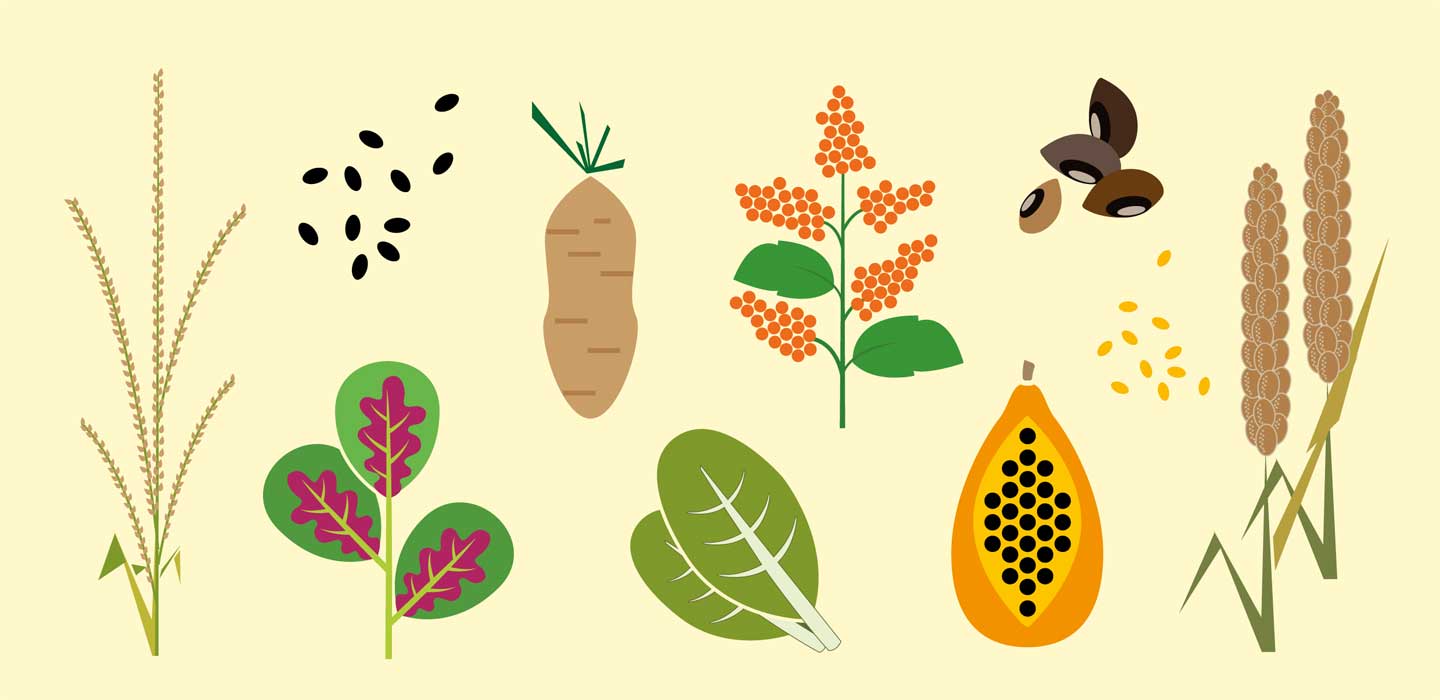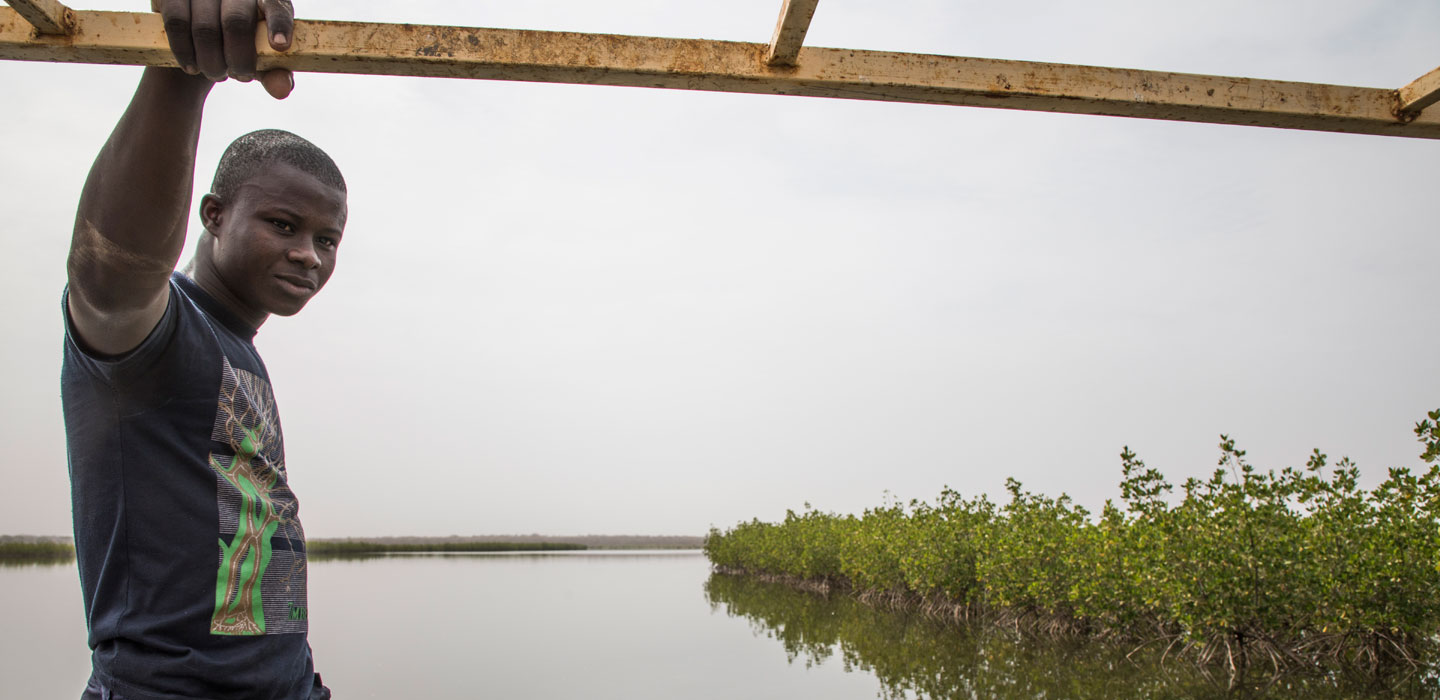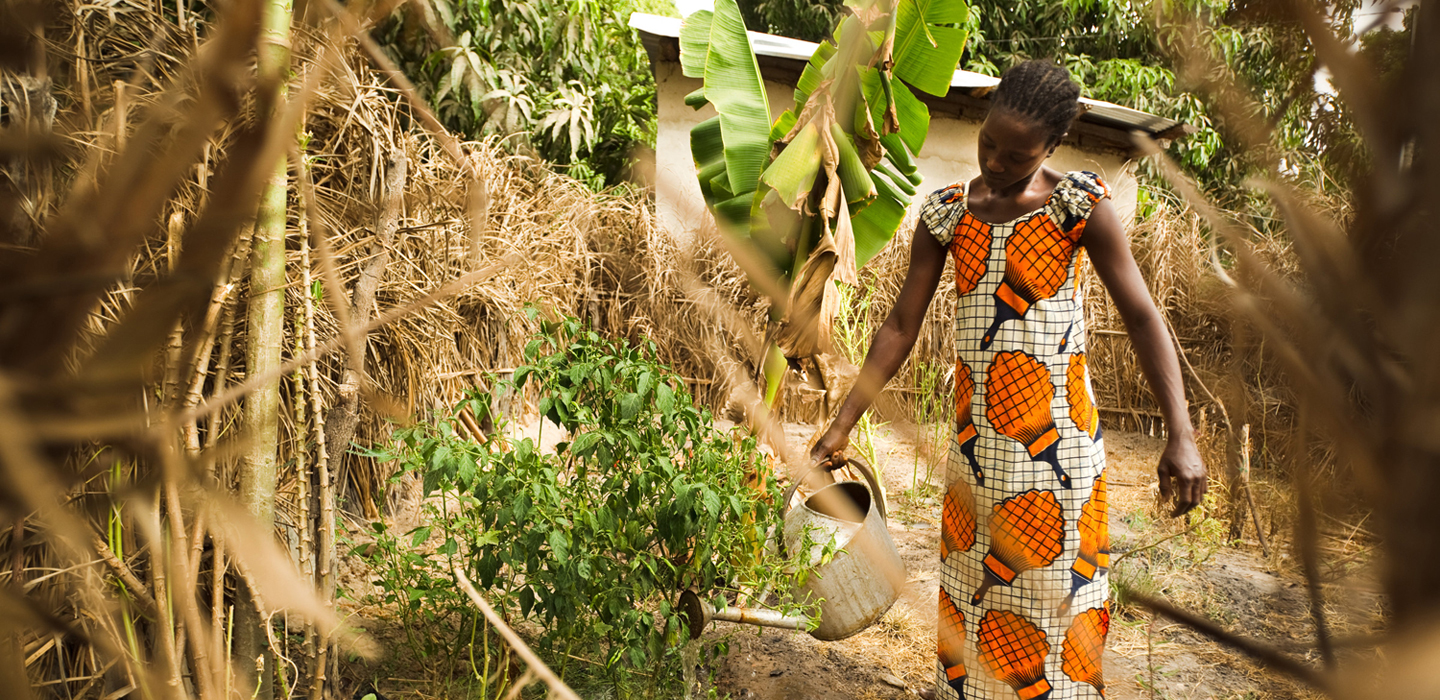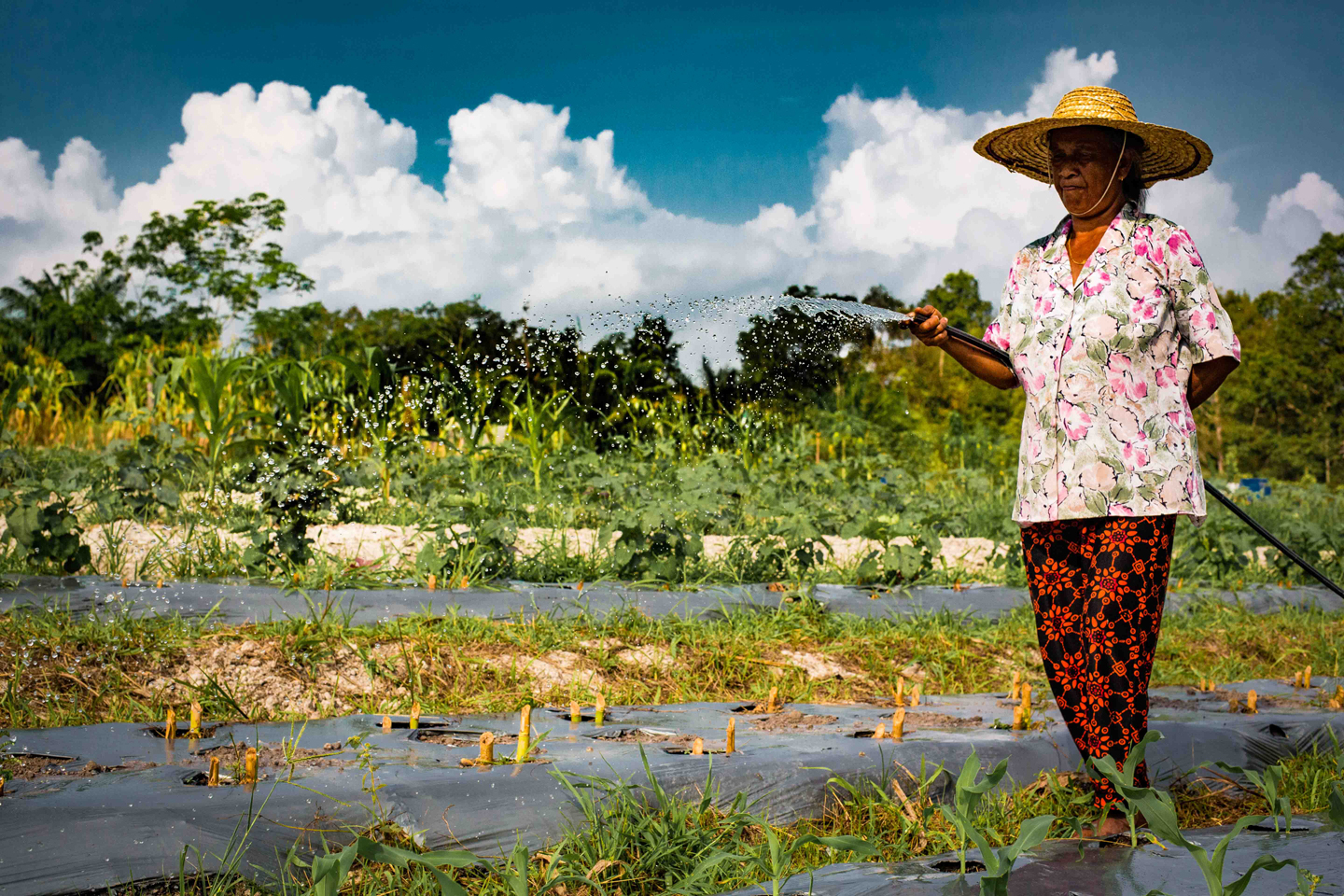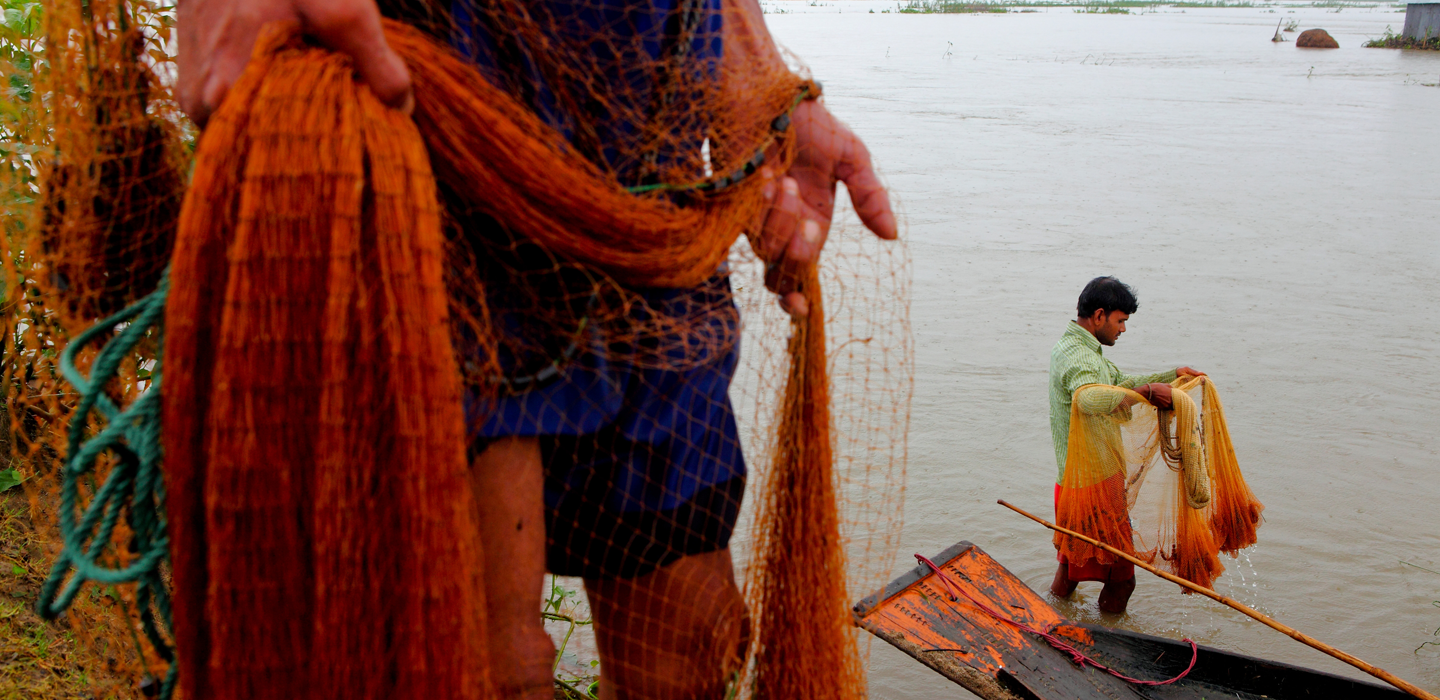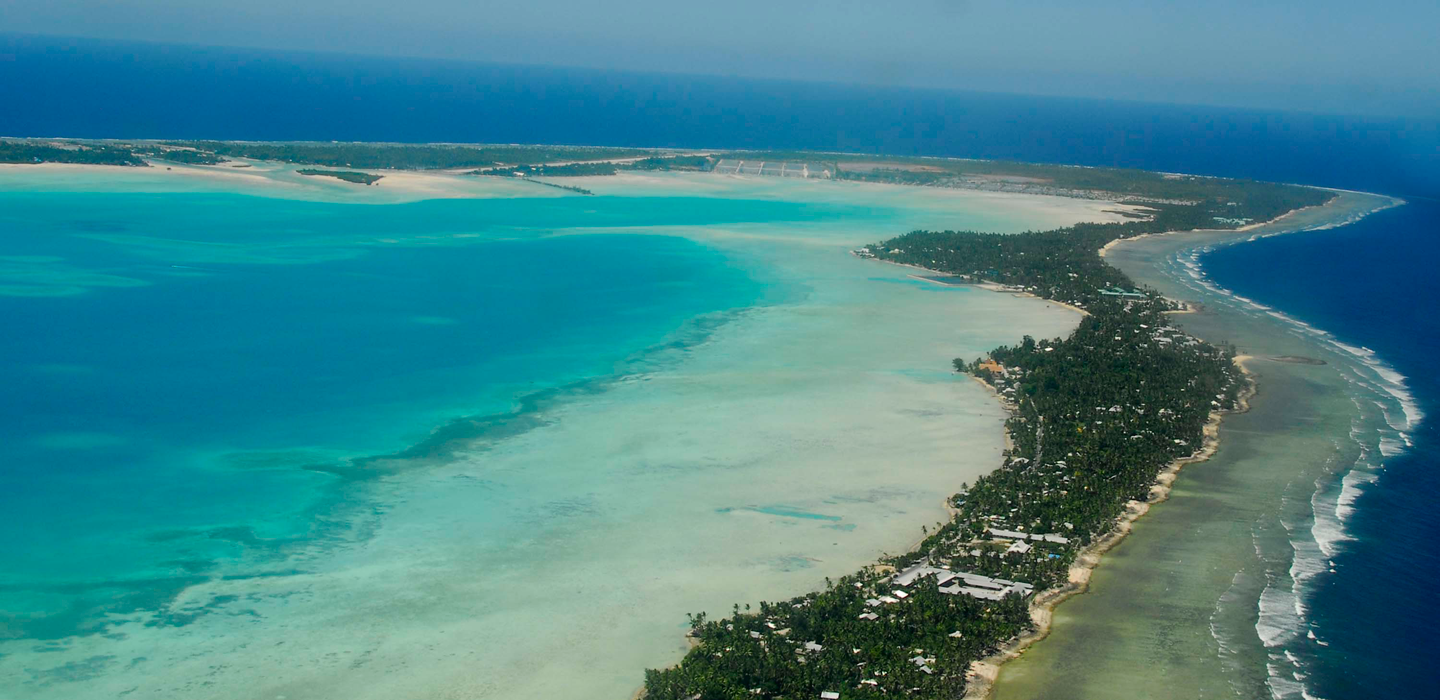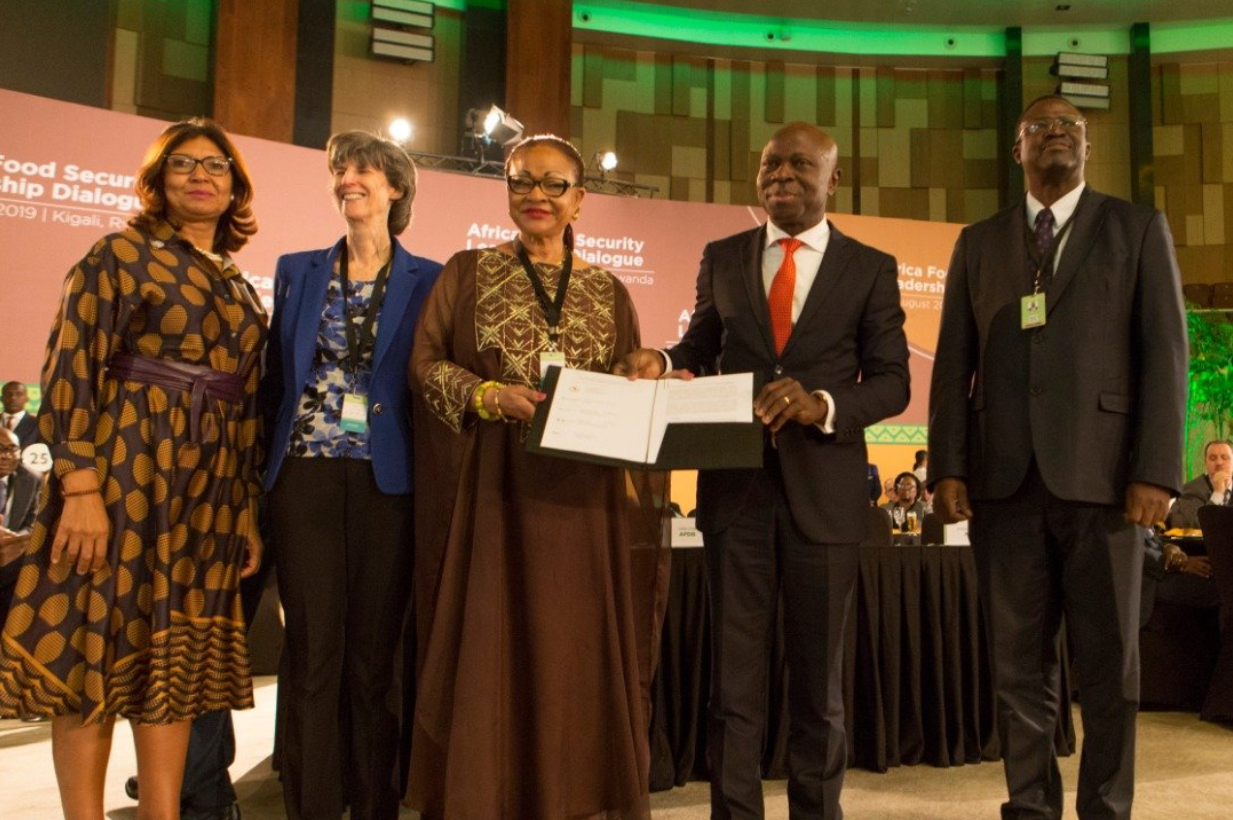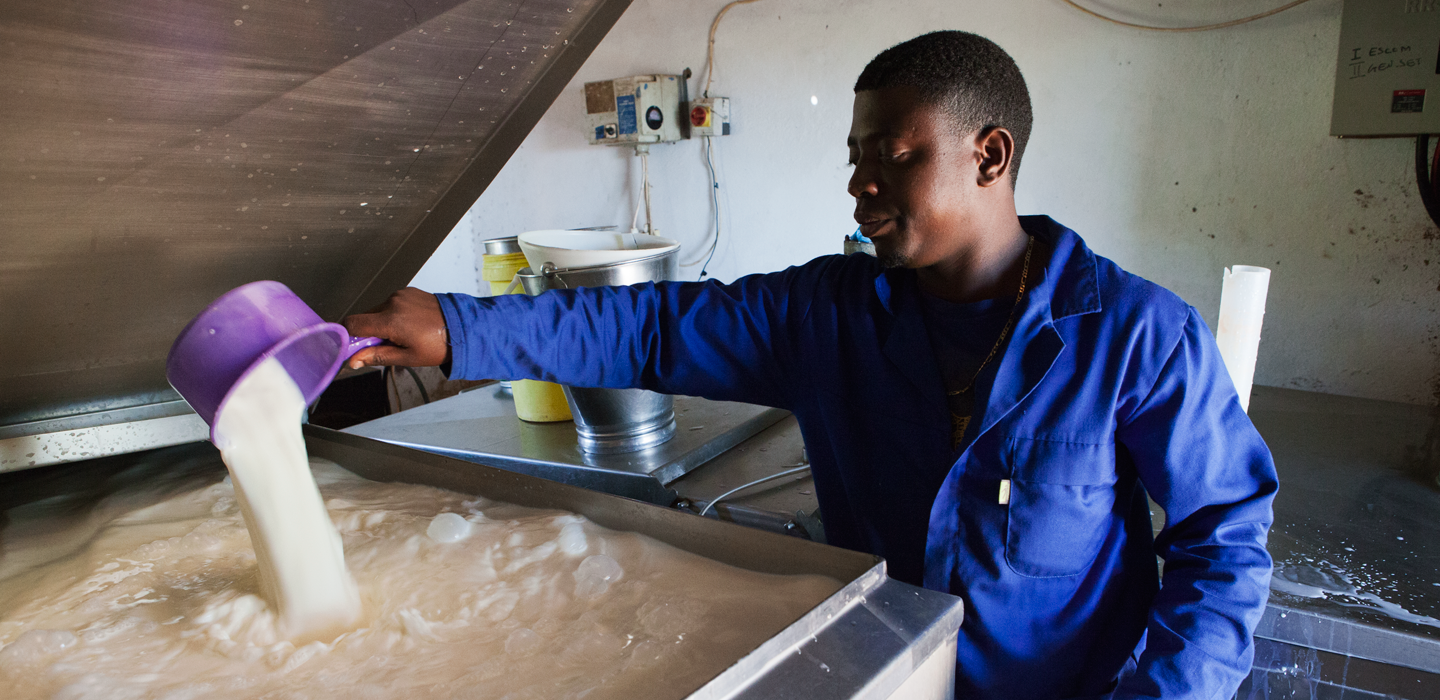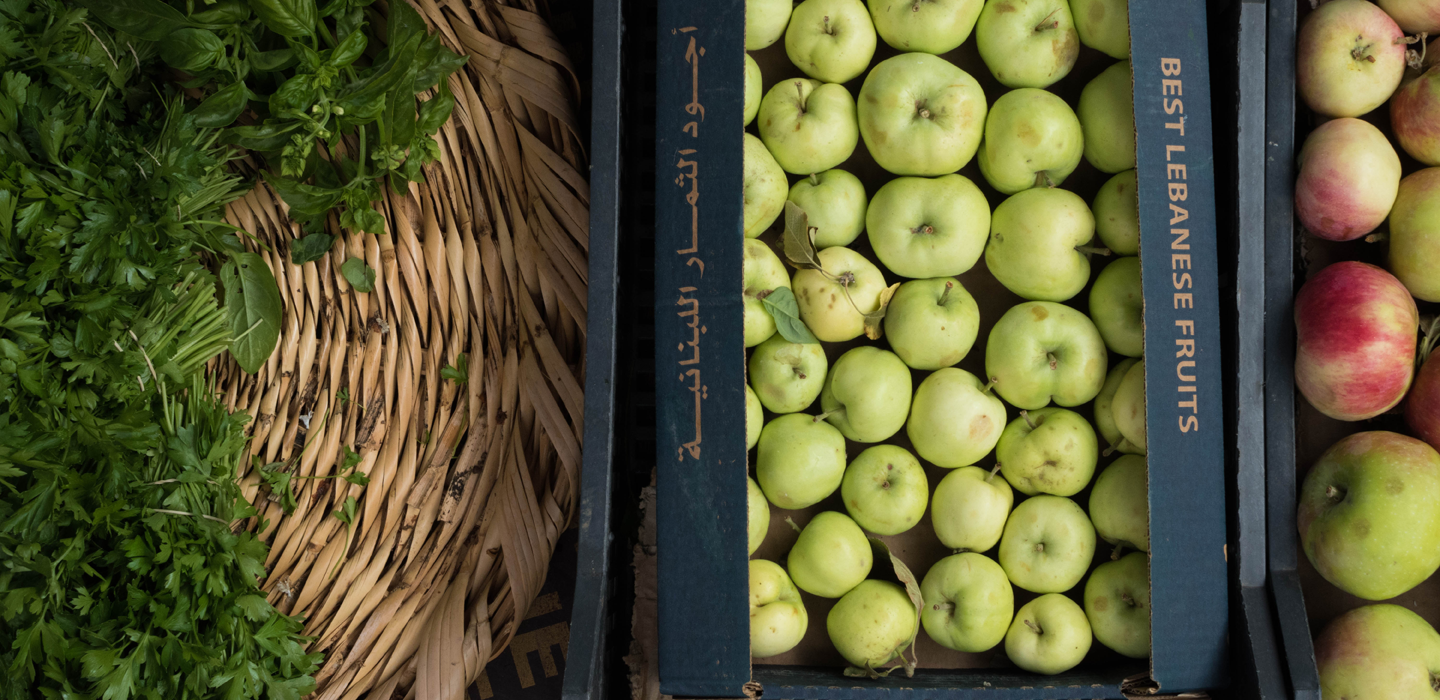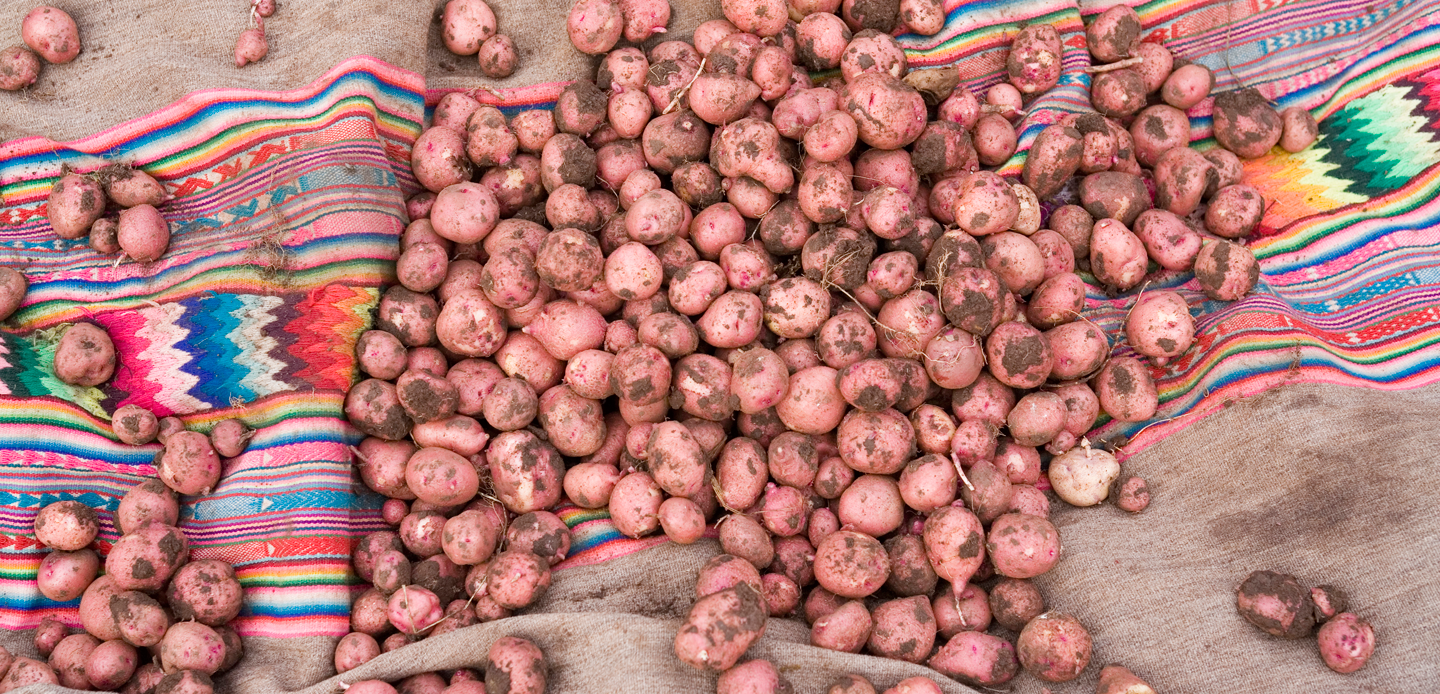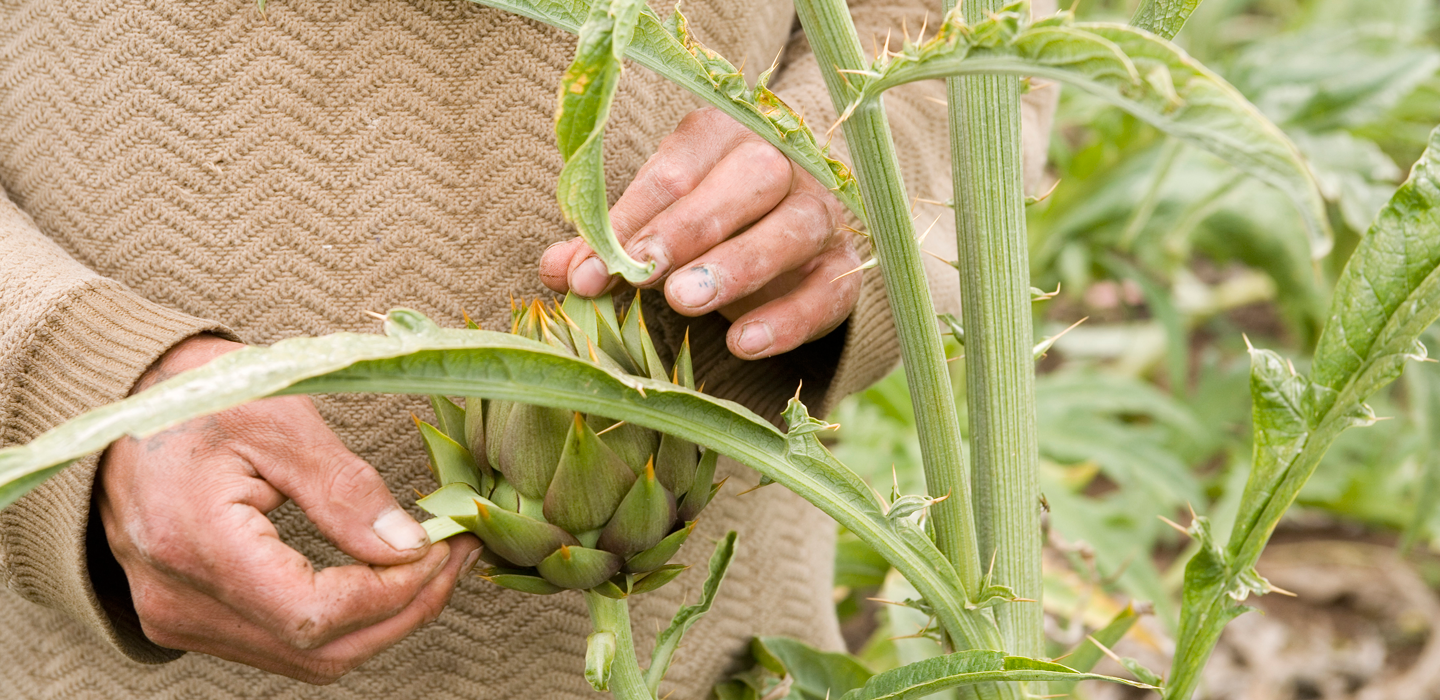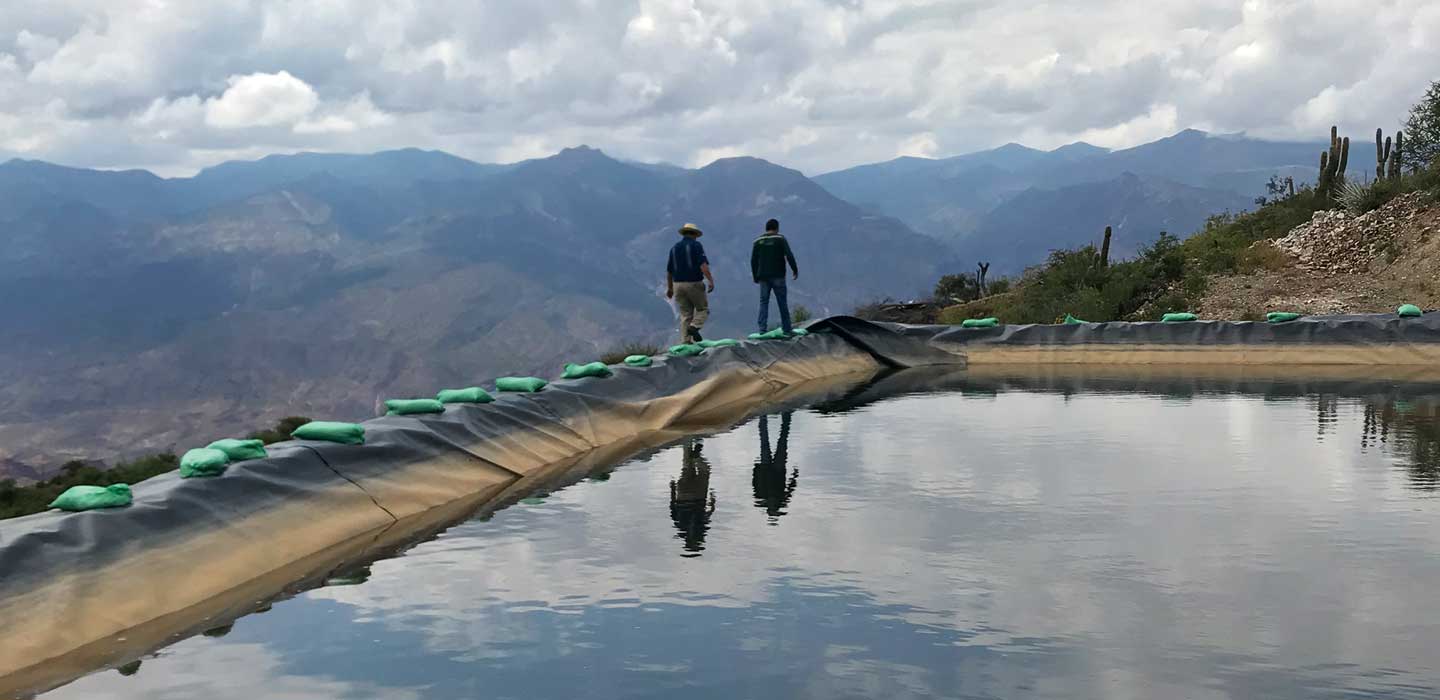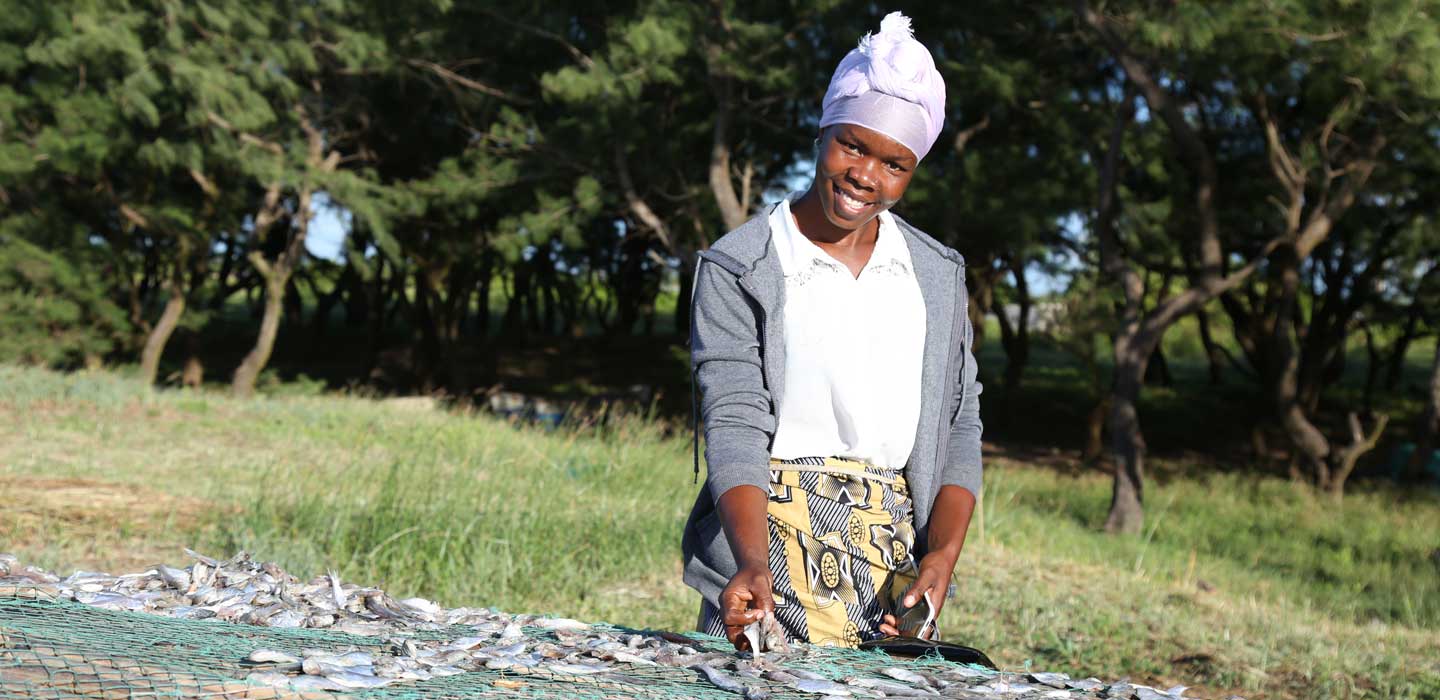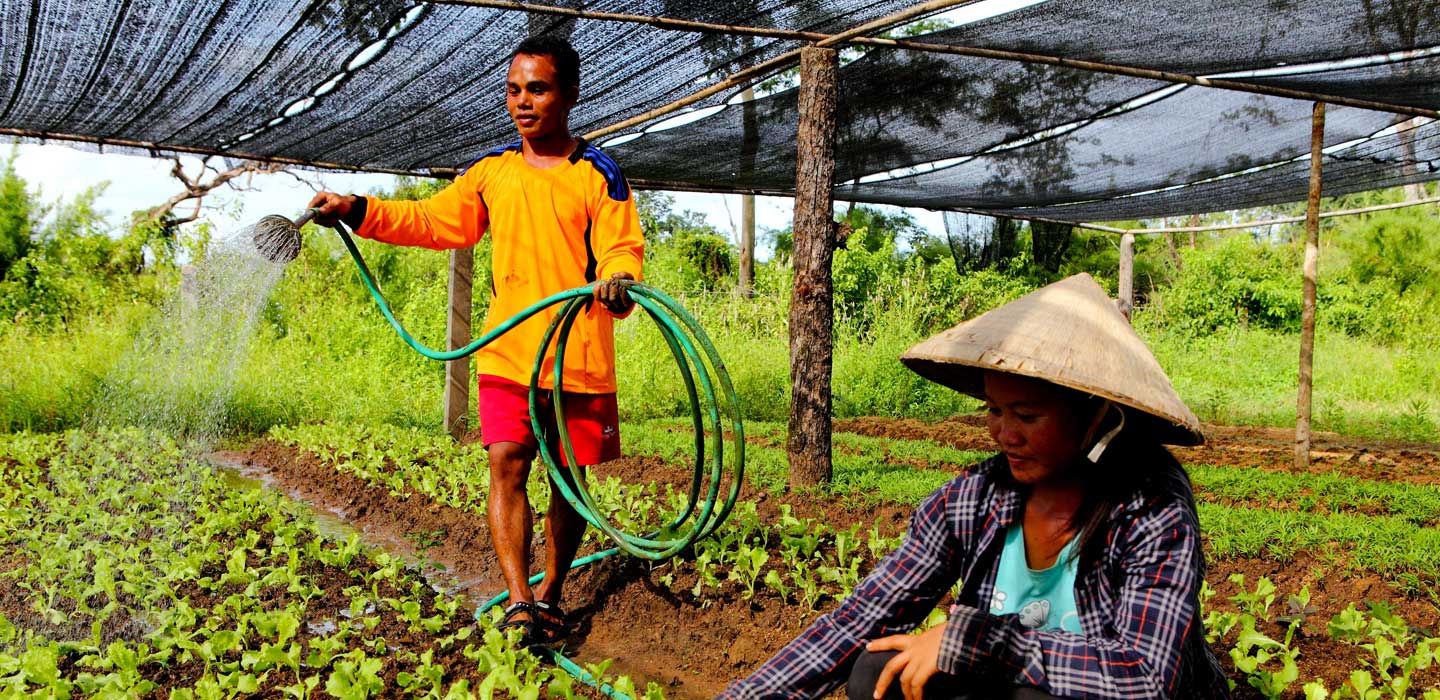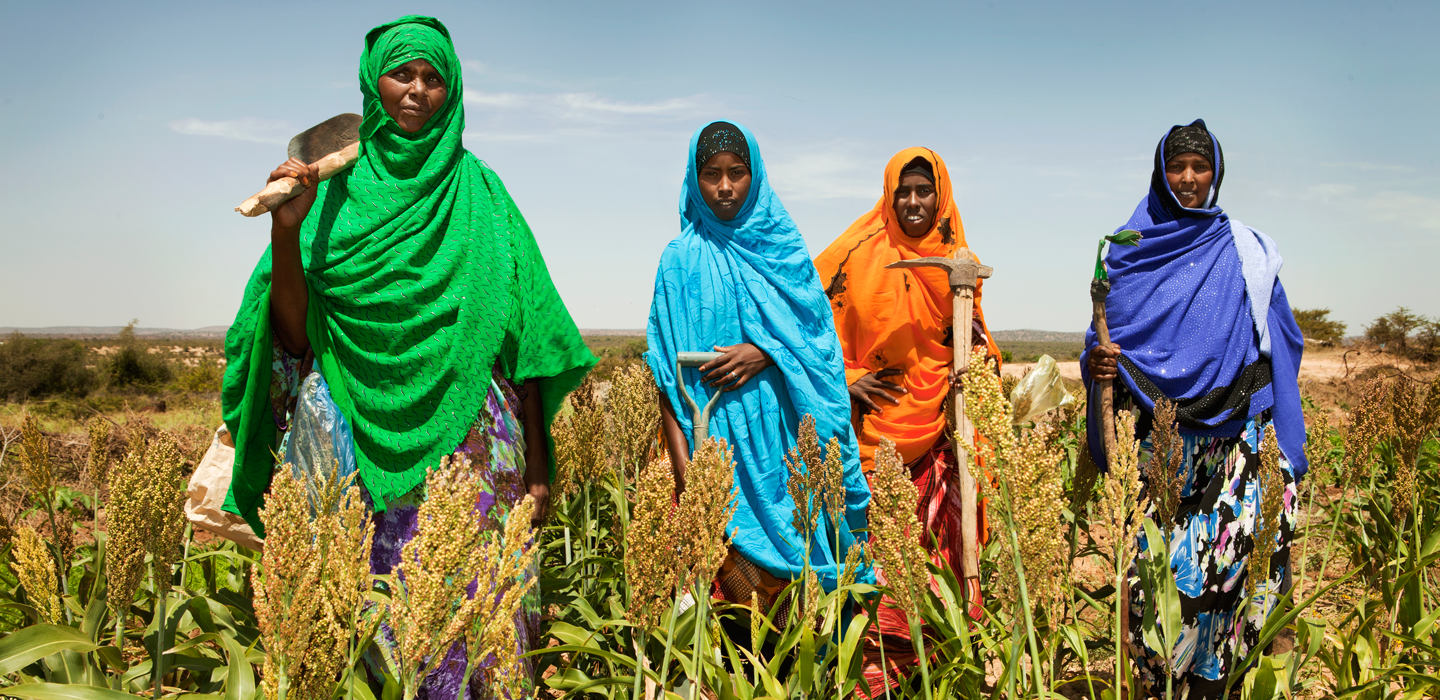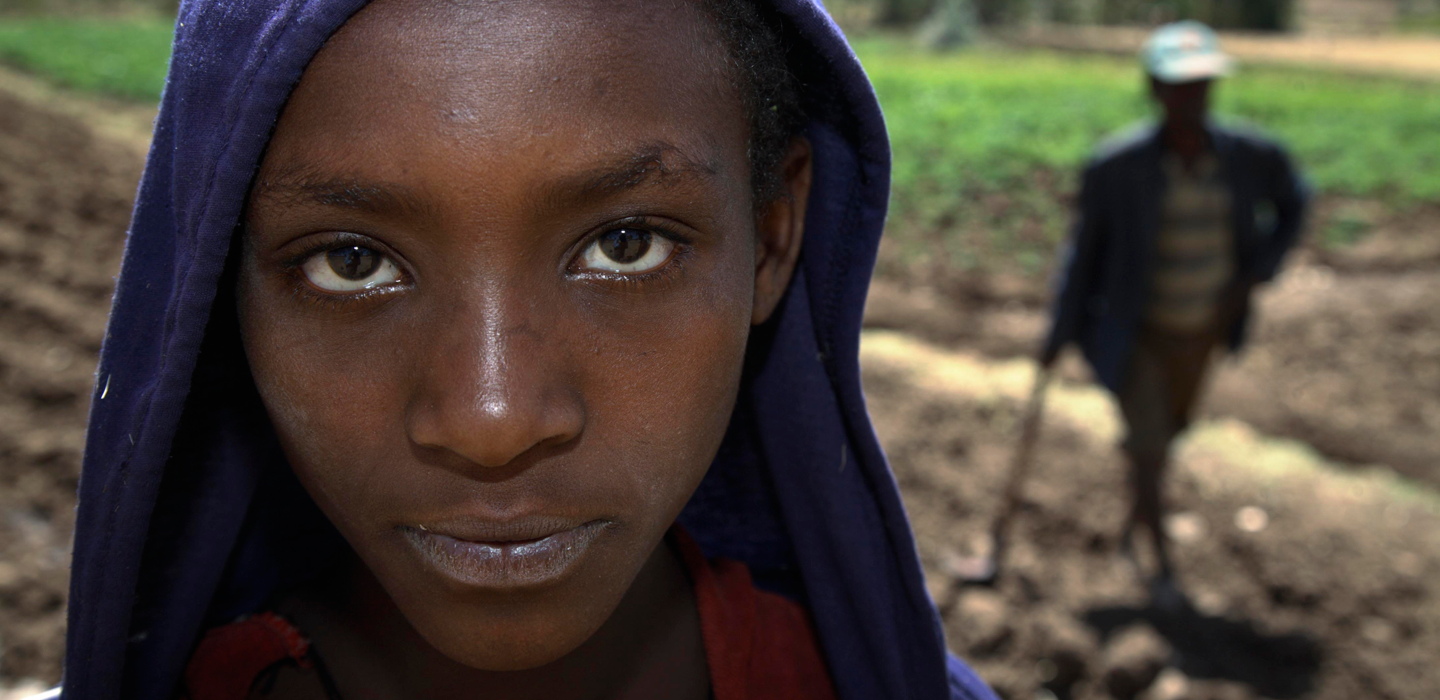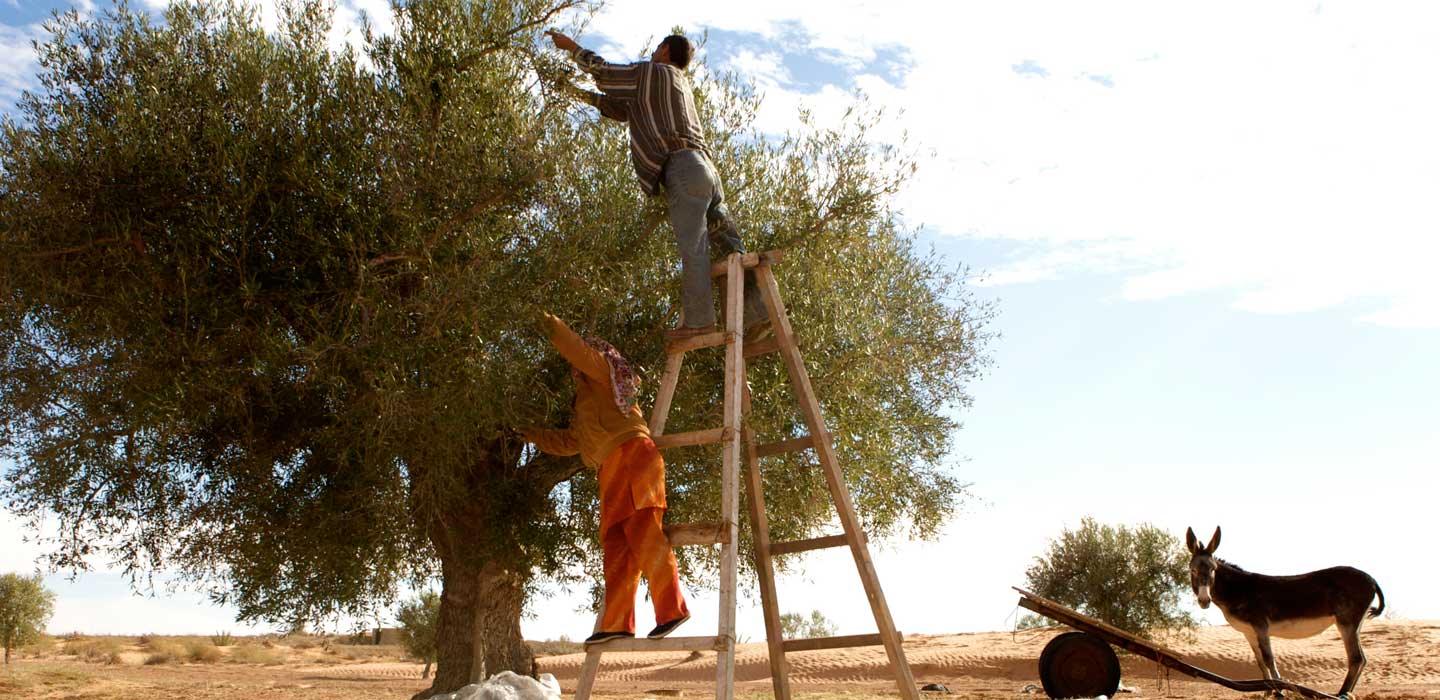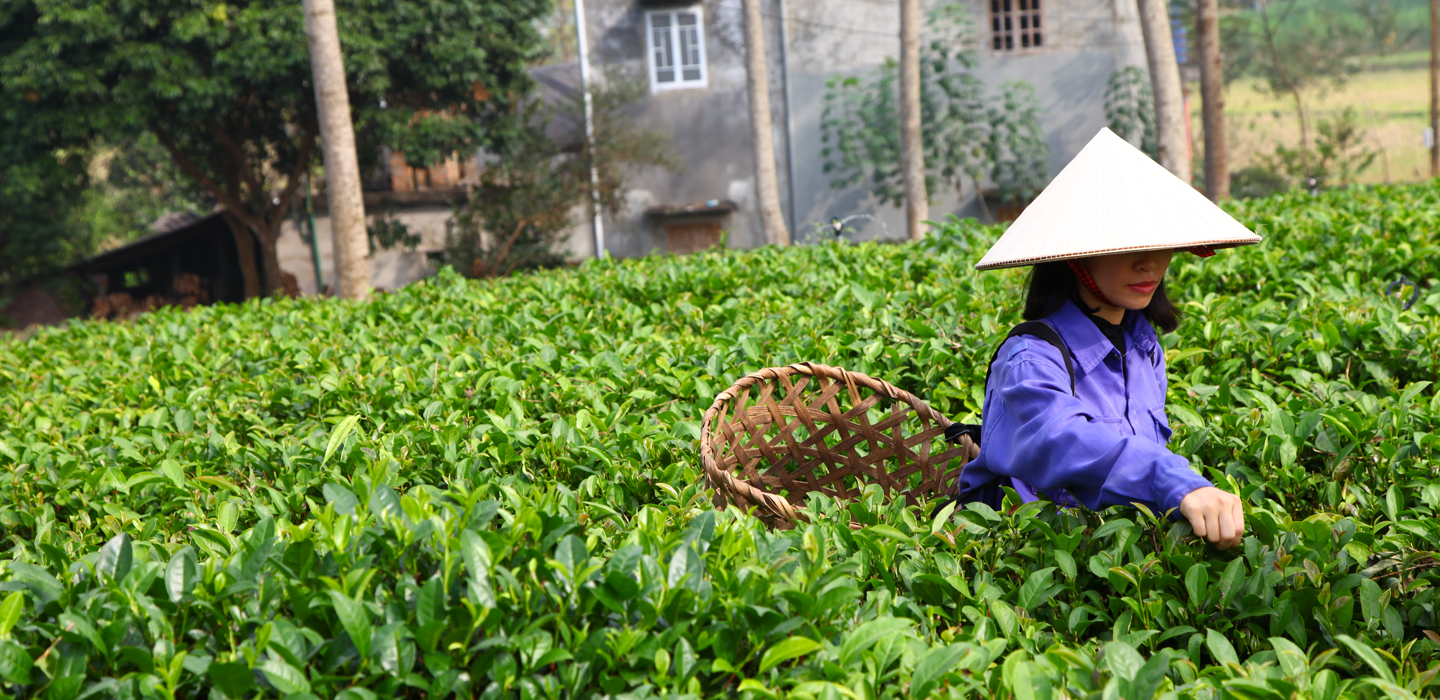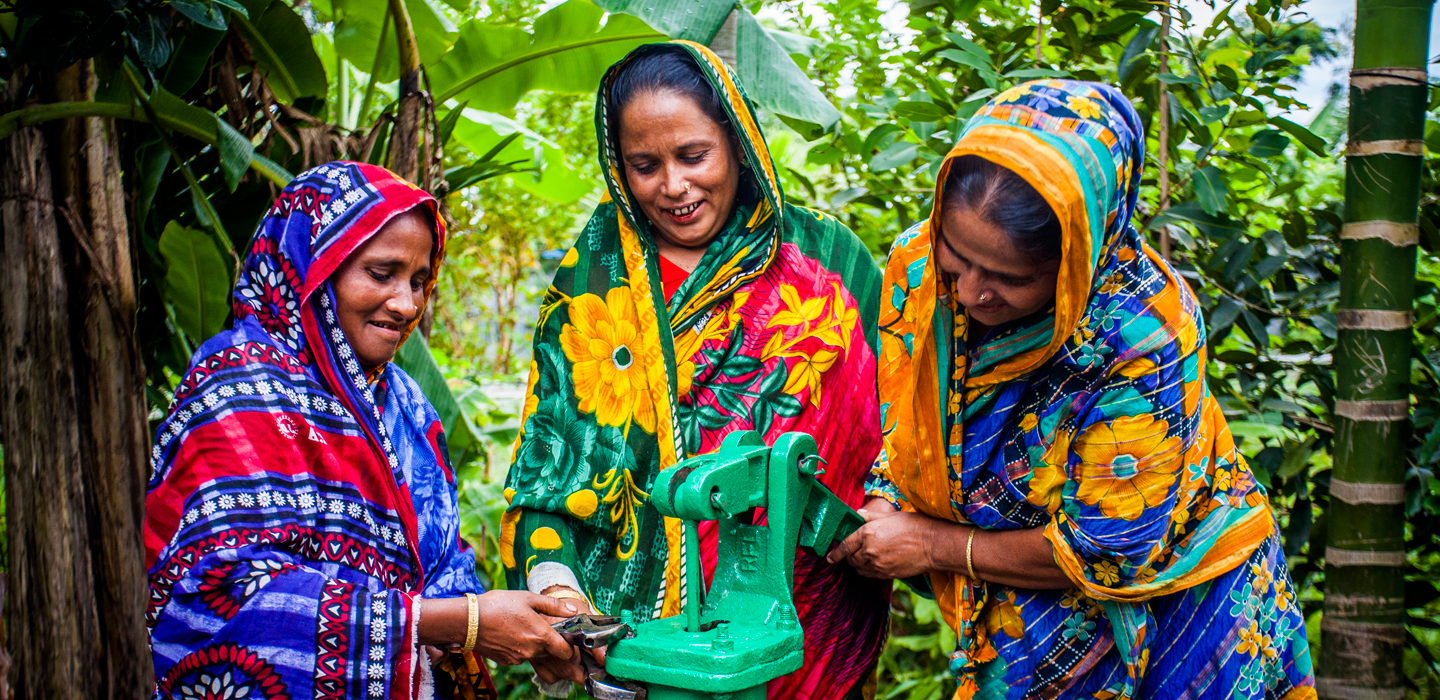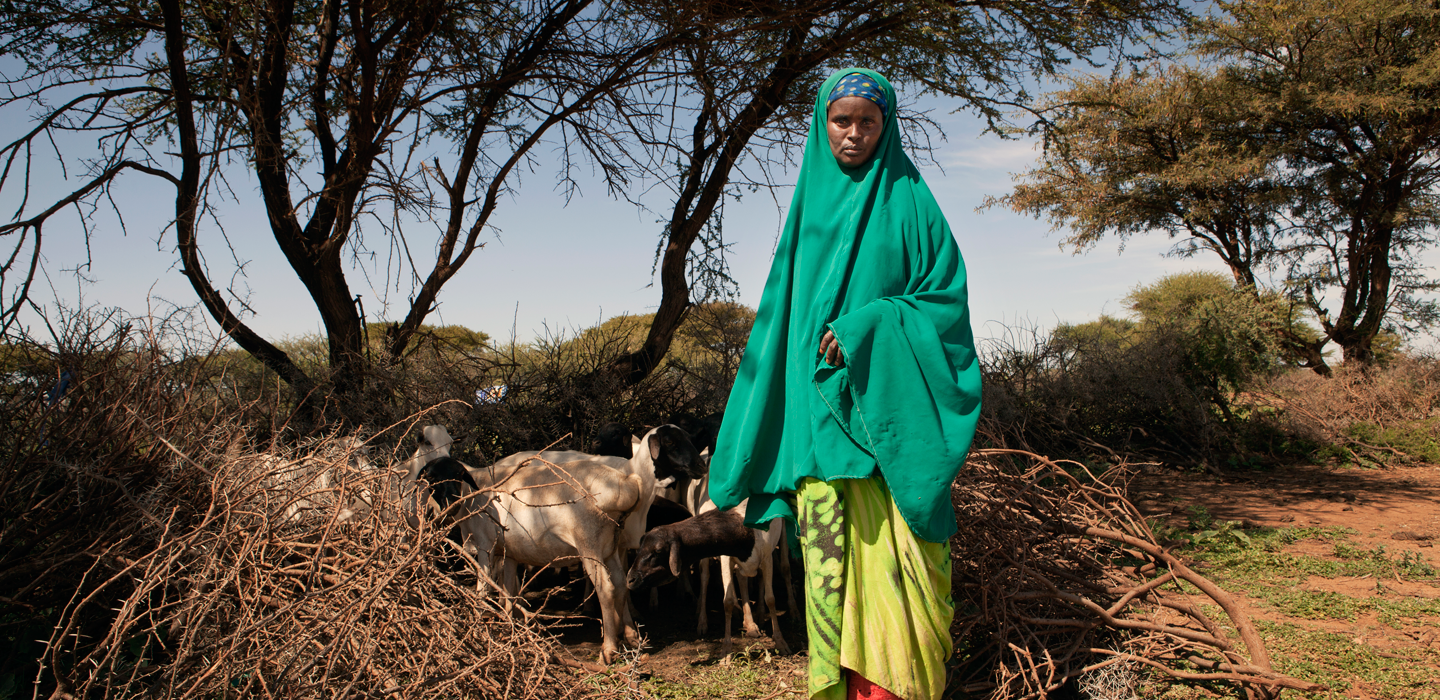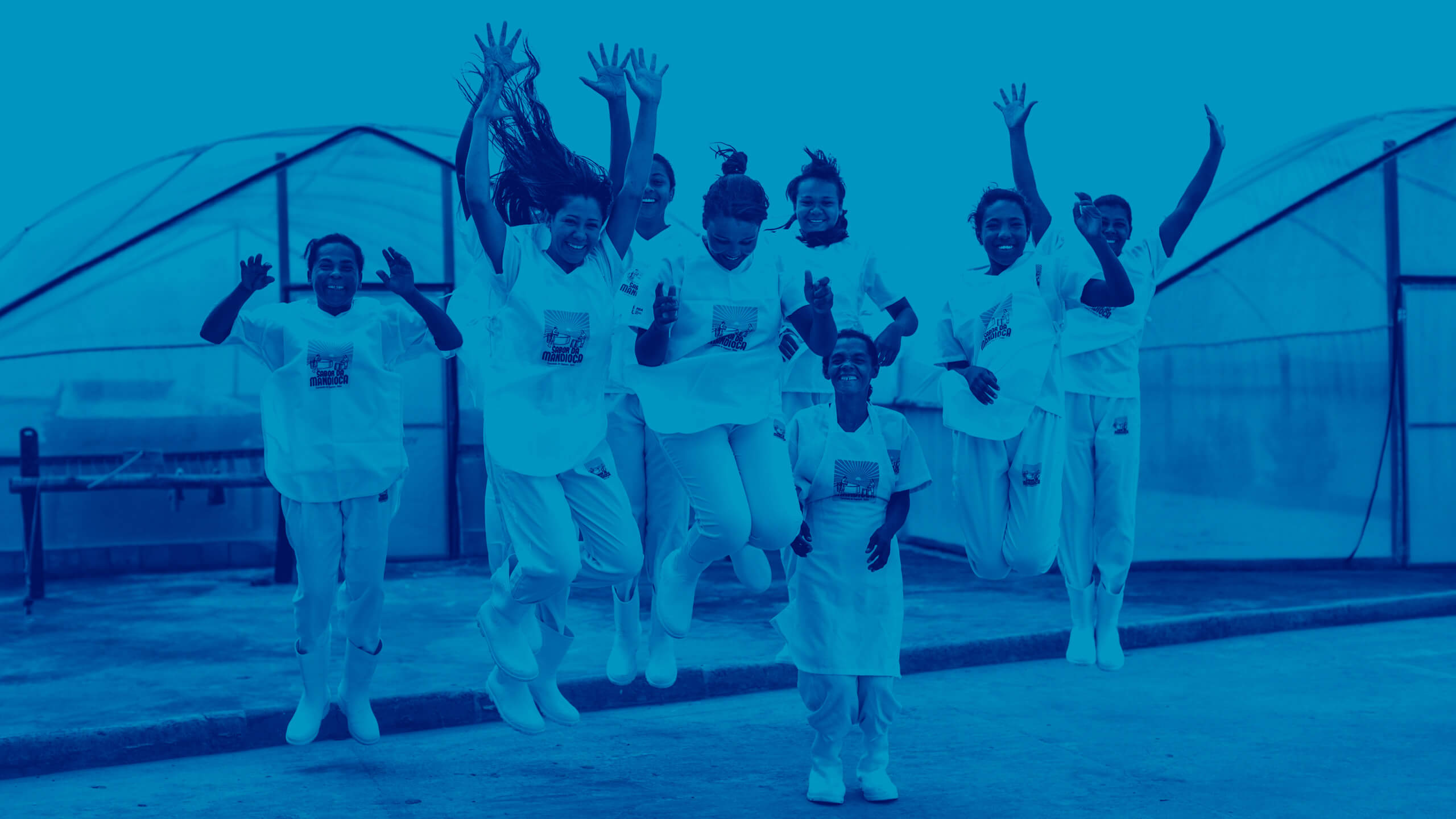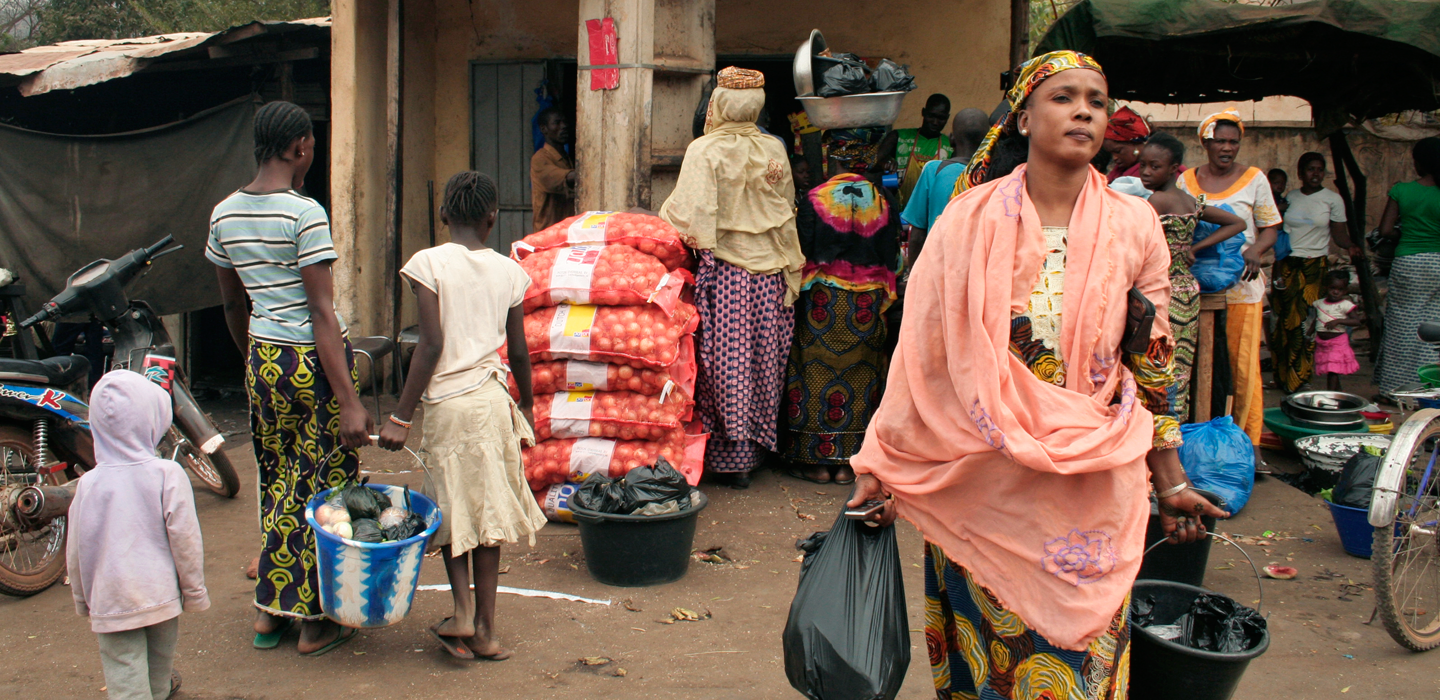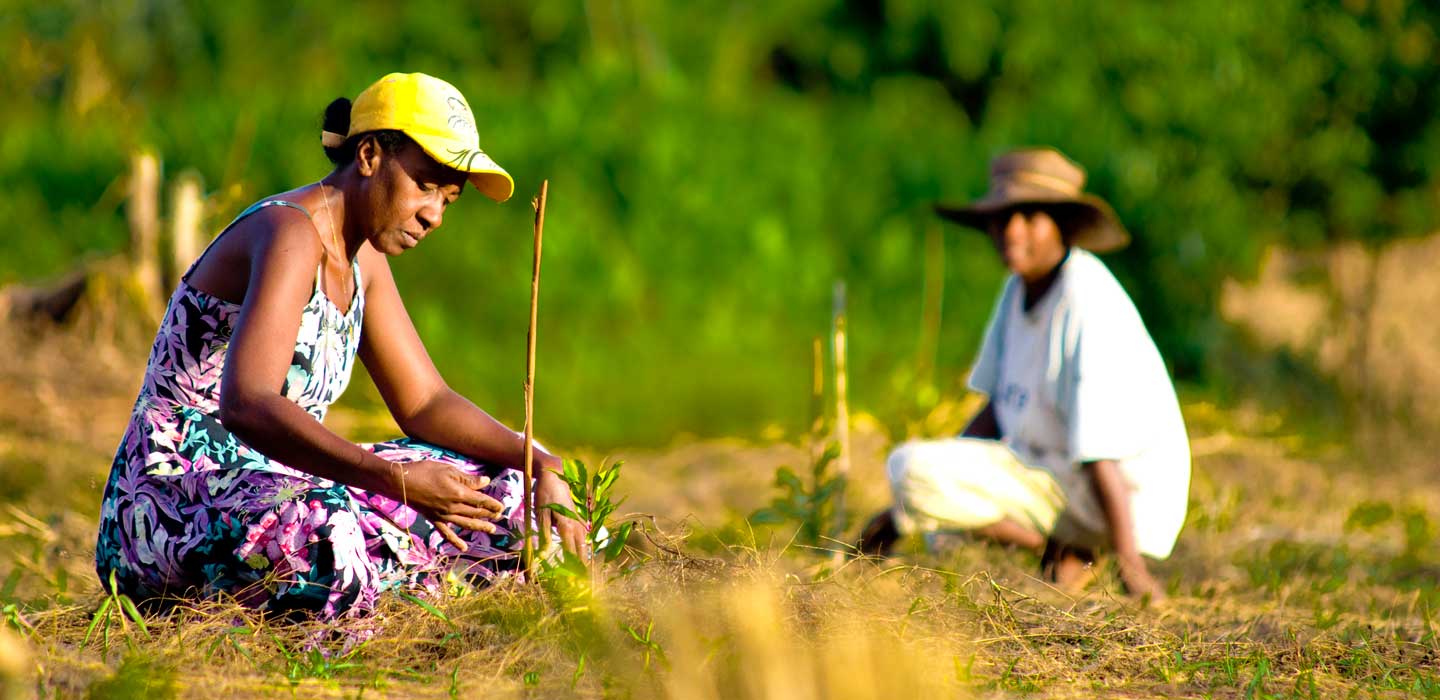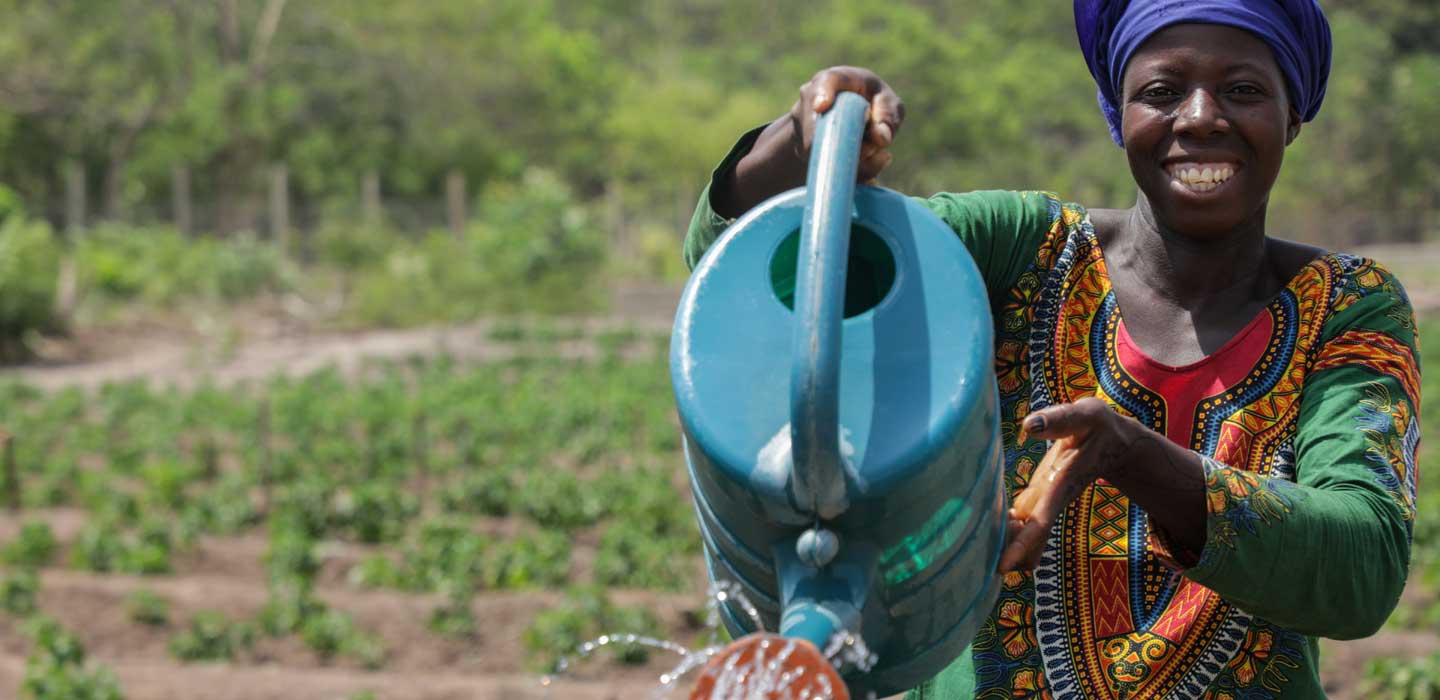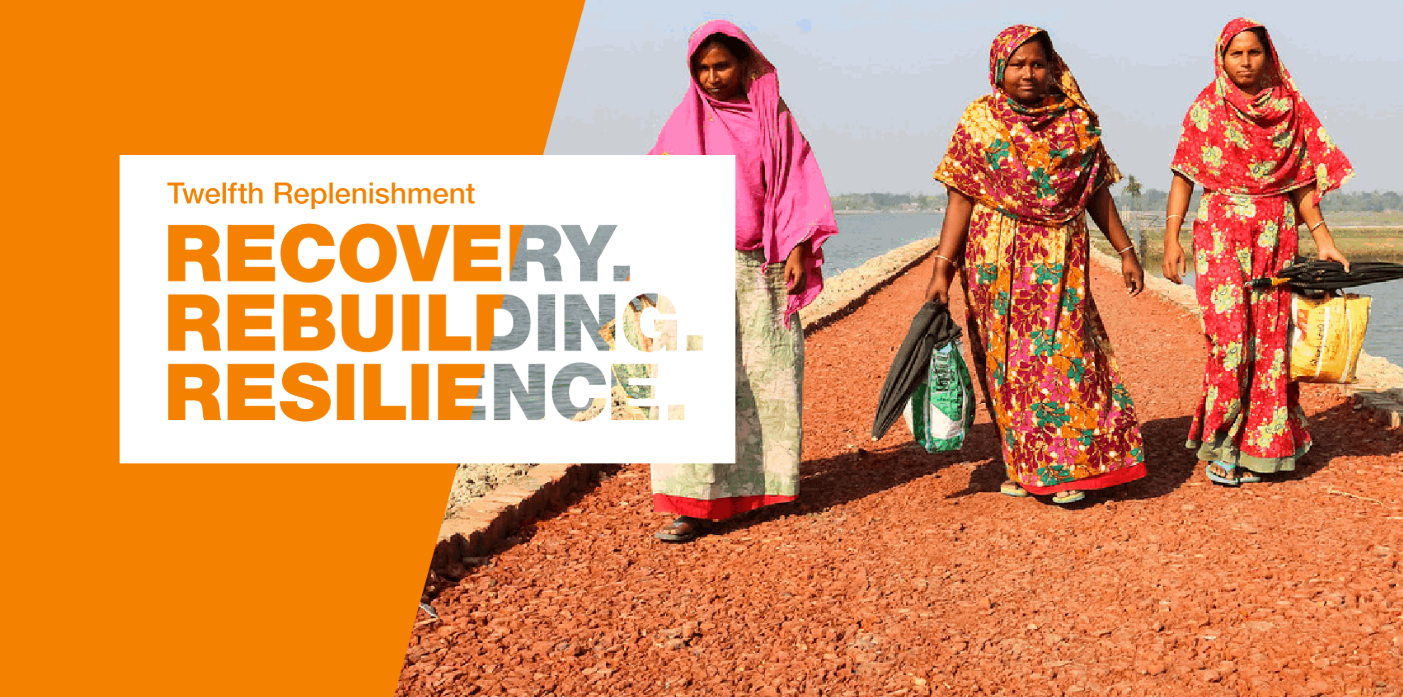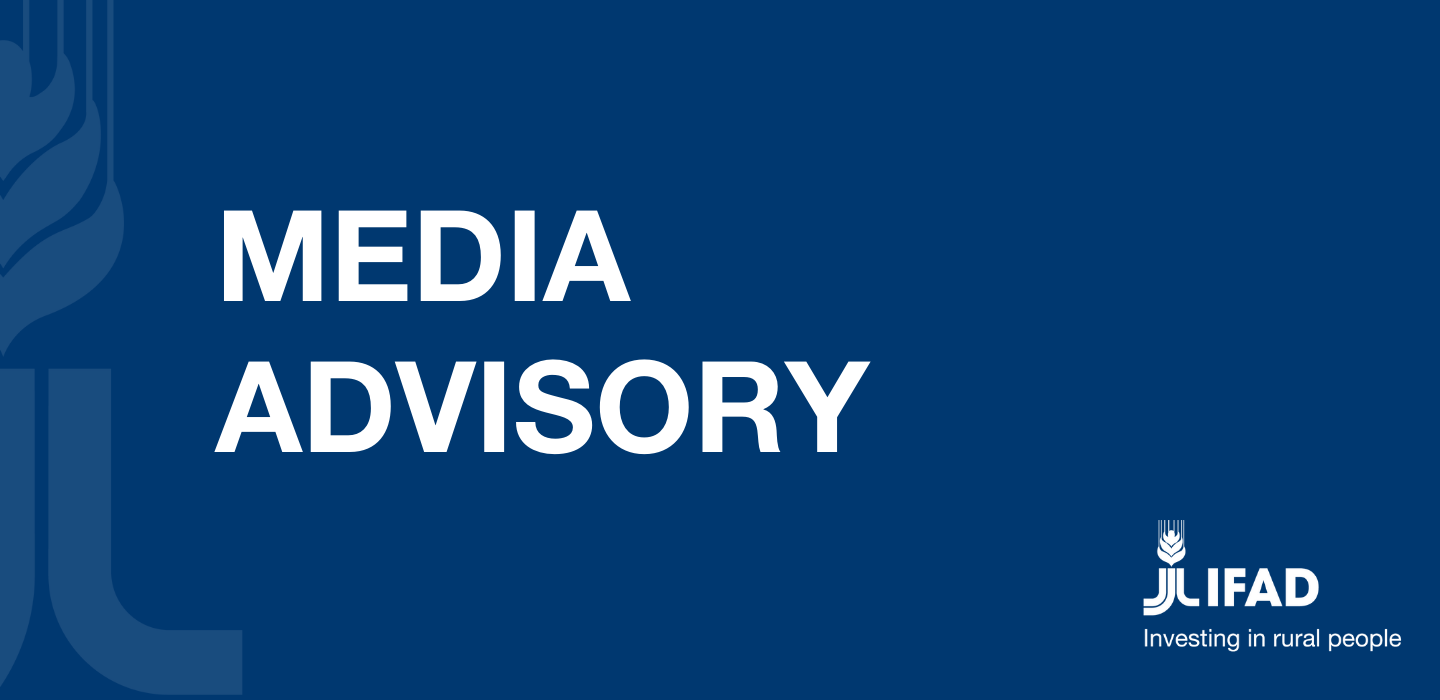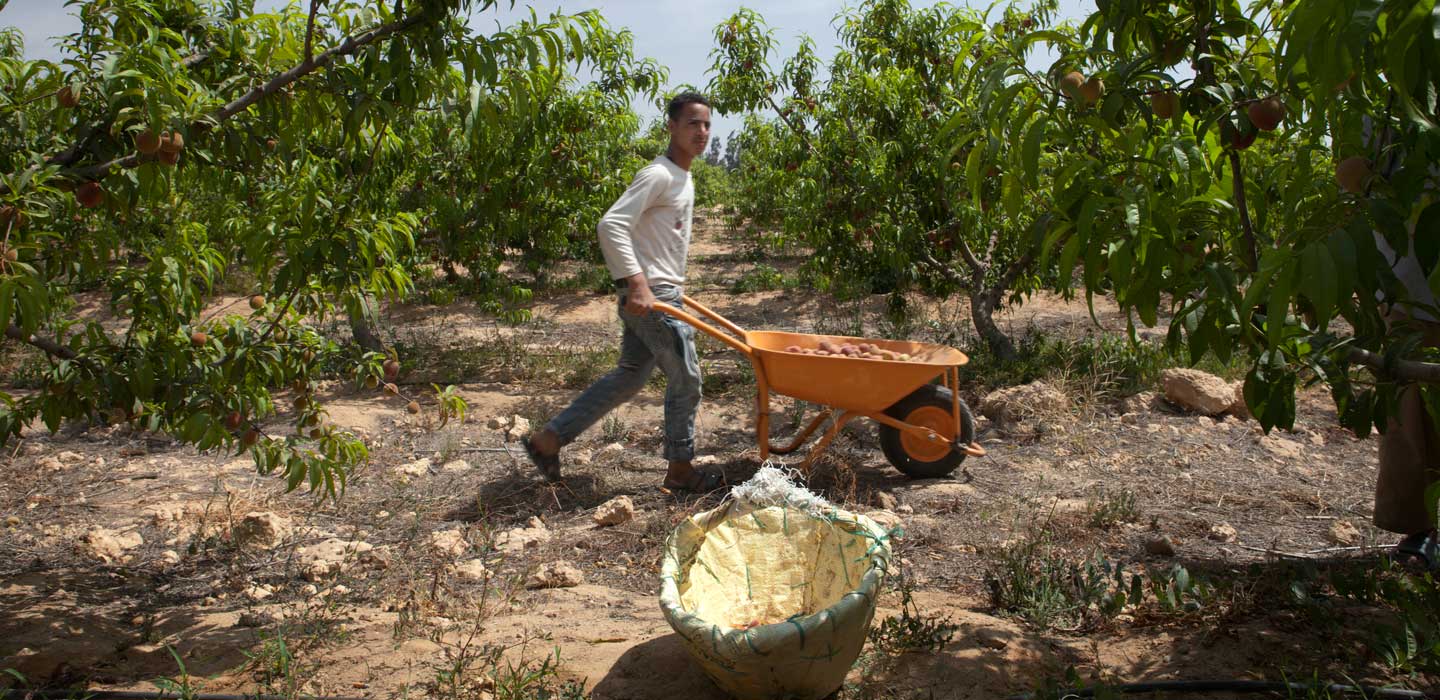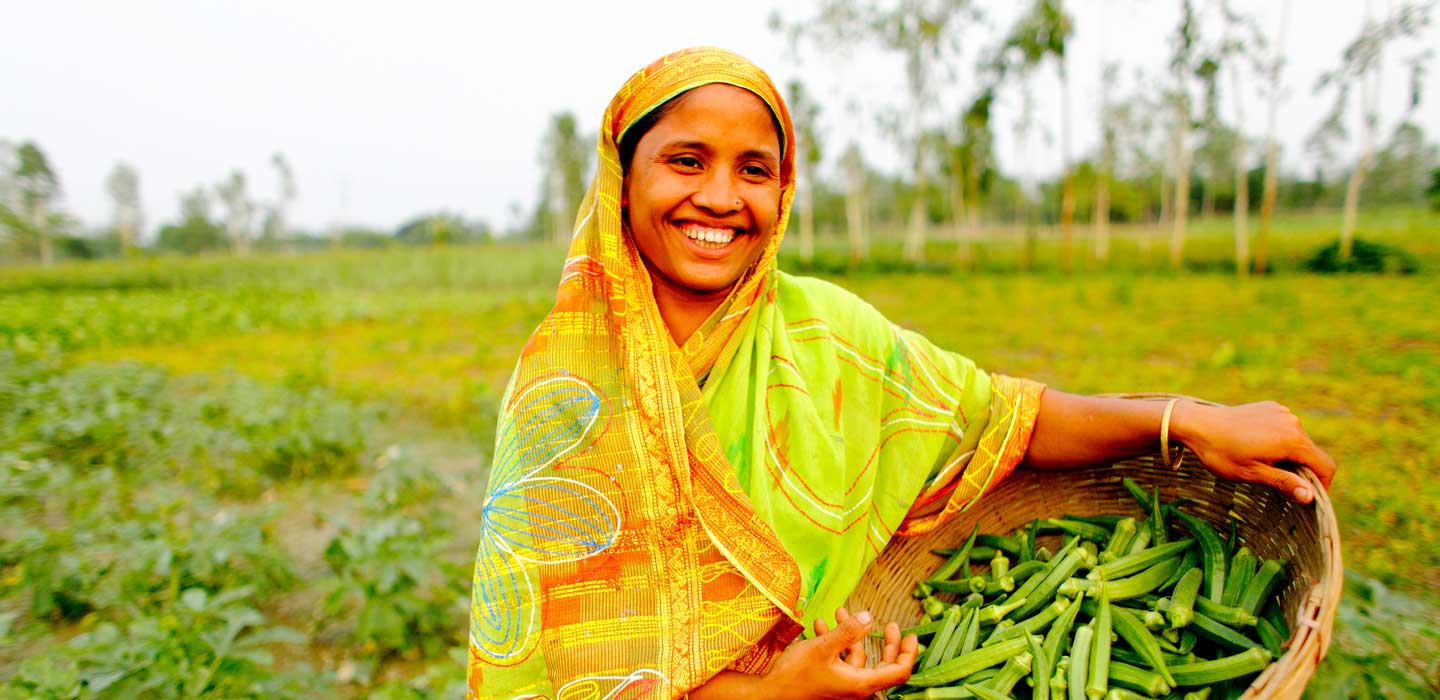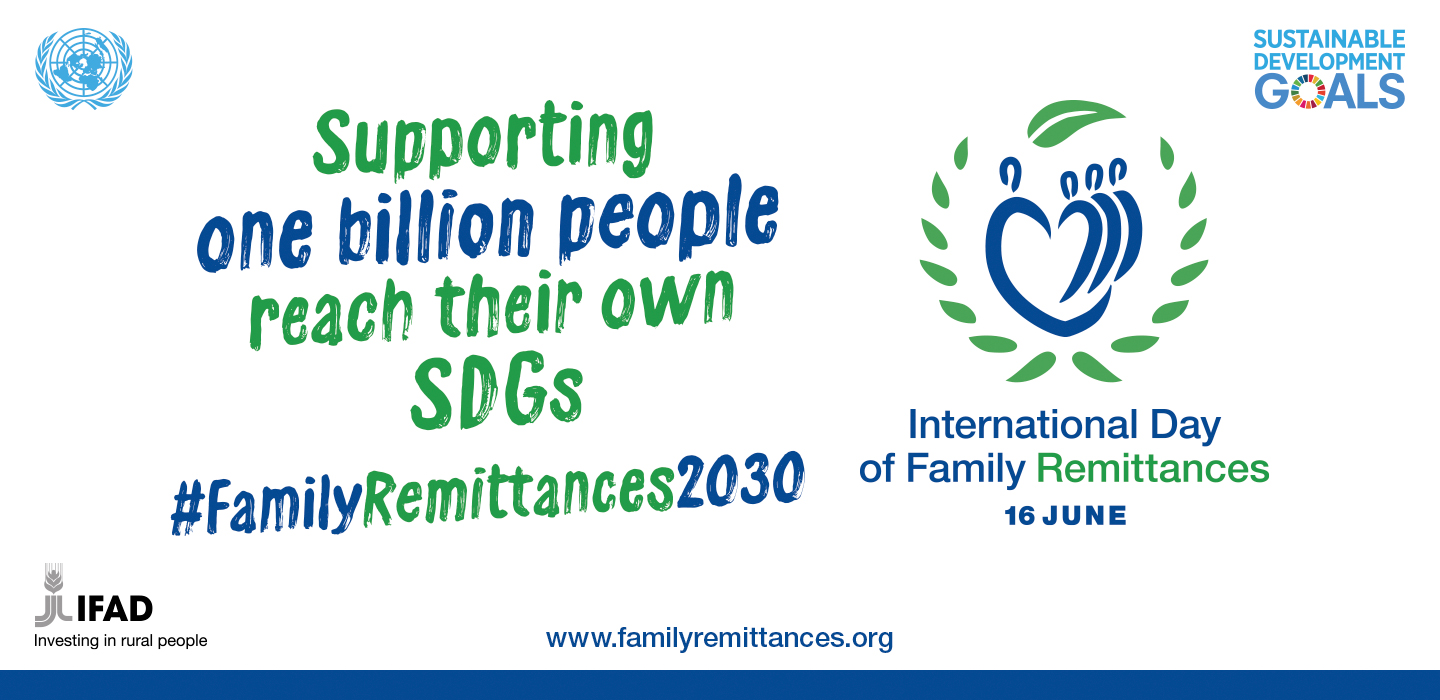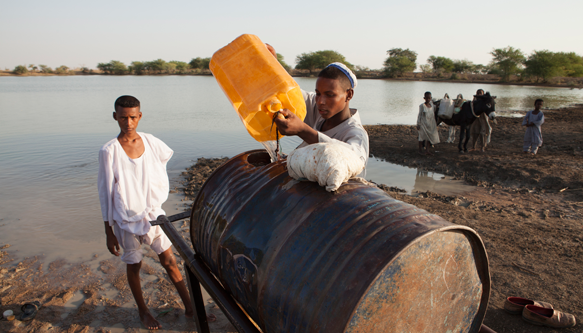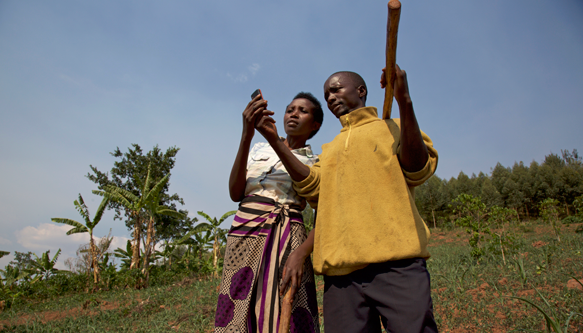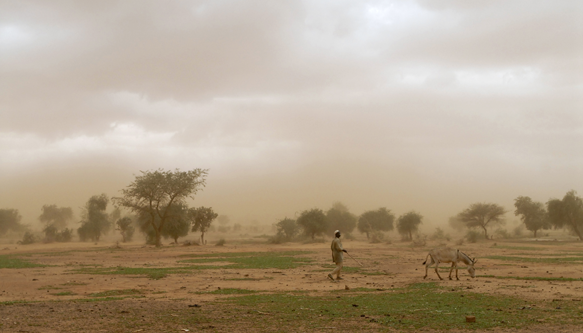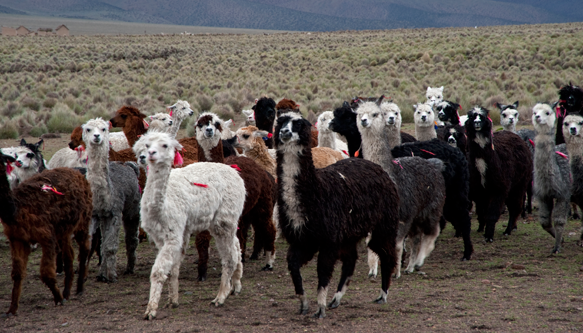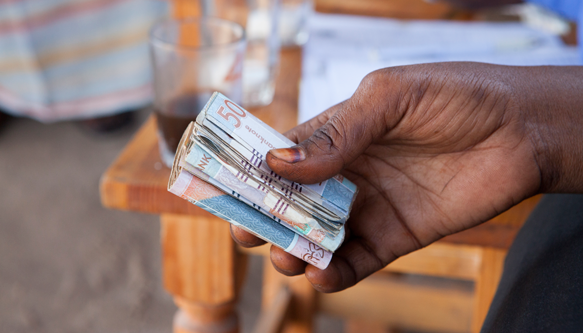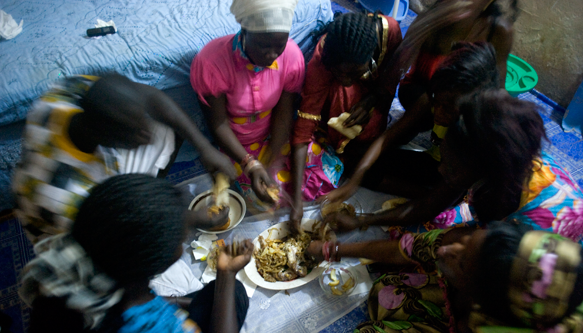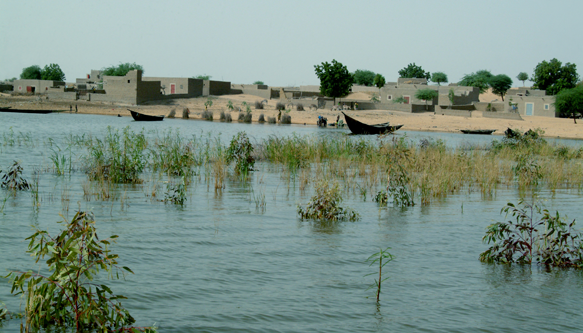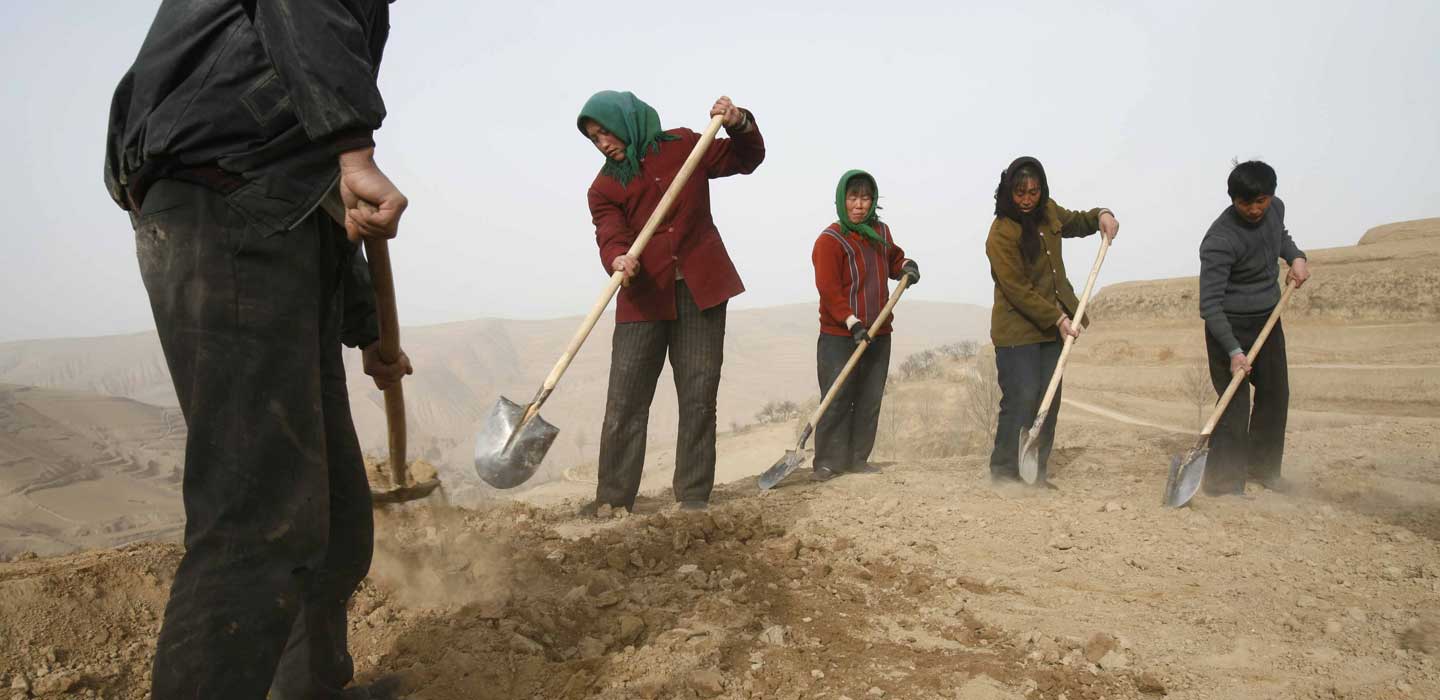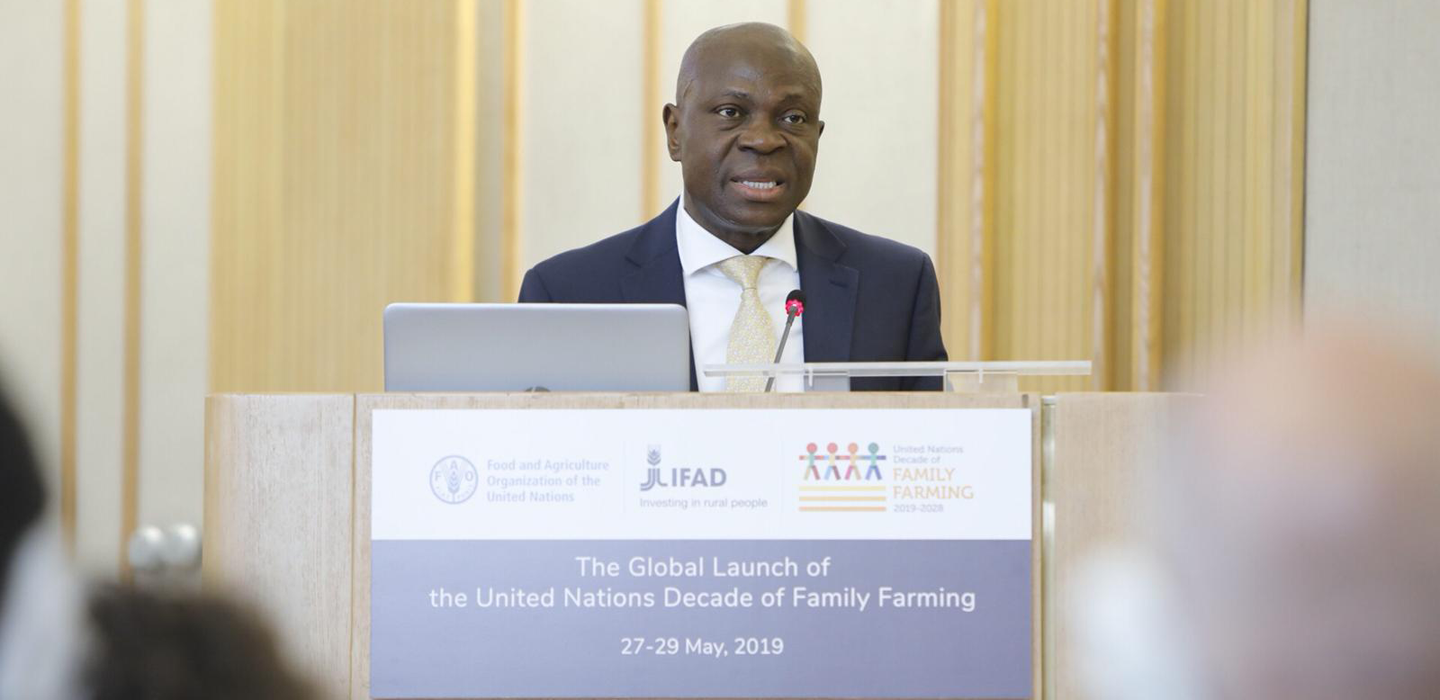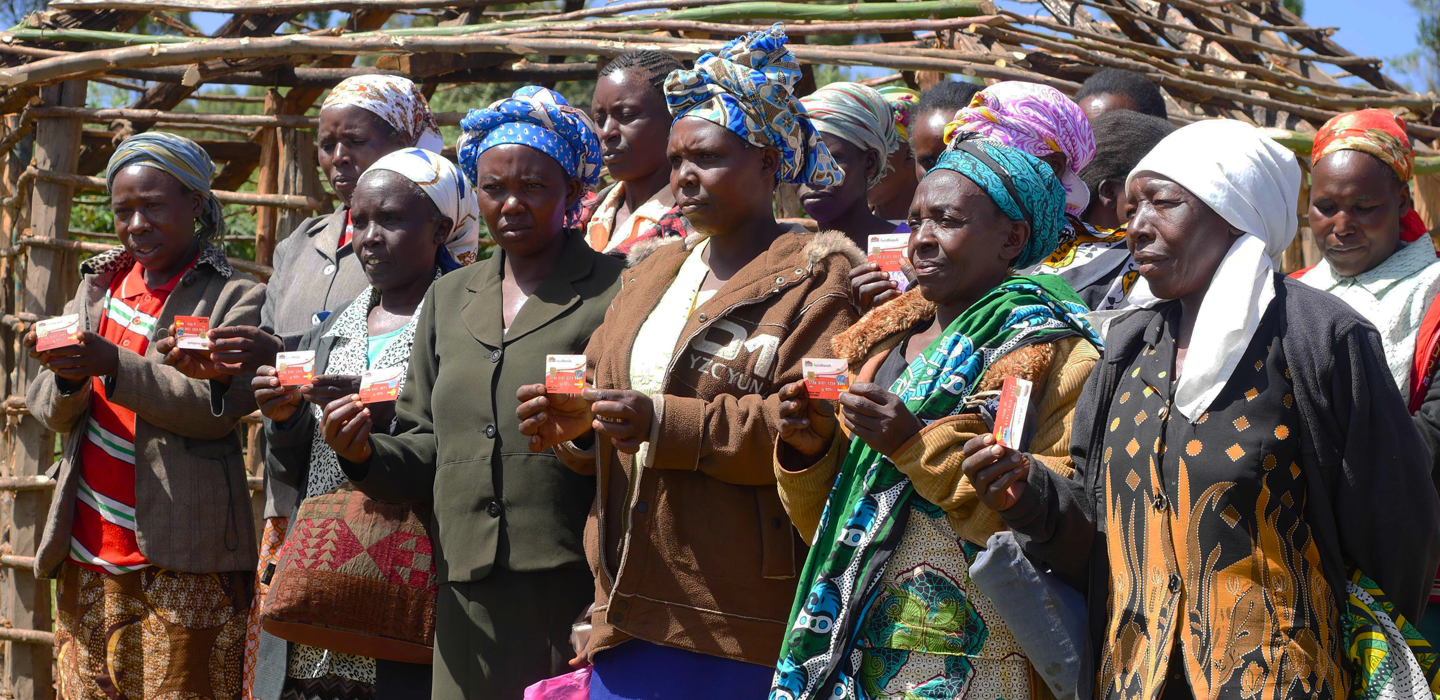Latest
Latest

Latest
Manual Submenu Topics
Search Results Filters
Search Results
IFAD and China promote climate-resilient agriculture and reforestation in Pakistan
Climate-resilient and sustainable reforestation practices to support Pakistan's national development is the focus of a one-day seminar convened by IFAD and the governments of China and Pakistan in Islamabad today.
Help farmers and the planet? Yes, we can
Tajikistan is a mountainous country nestled in Central Asia. Over five million people live a rural life, the majority of them depending on agriculture for their livelihoods.
Cooking to reduce climate change
An IFAD co-sponsored event at COP25 in Madrid brought together experts and celebrity chefs to examine how climate change is effecting food systems.
Paving the way: Rural youth in Pakistan
Deep in the mountainous region of northern Pakistan sits the picturesque village of Minimarg. Almost 200 kilometres from Gilgit, the region’s capital, Minimarg can only be accessed via the 4,000-meter Burzil Pass.
IFAD and Nepal to review progress in reducing rural poverty
The Independent Office of Evaluation of IFAD and the Government of Nepal are holding a one-day workshop to share the findings of an independent evaluation of IFAD’s operations in Nepal over the last seven years (2013-2019).
New microenterprise project to make farming profitable for half a million Bangladeshi families
IFAD and the Government of the People's Republic of Bangladesh have signed an agreement to launch a project to accelerate inclusive economic growth, sustainably reduce poverty and improve food and nutrition security.
Helping agriculture climb the climate agenda in Madrid
Agriculture is uniquely placed to tackle climate change while reducing poverty and increasing food security. The key role of the sector has been recognised by the Koronivia Joint Work on Agriculture (KJWA).
Photo contest on youth and rural development
IFAD have launched a photo competition on the theme of youth and rural development to promote youth participation in rural development in Latin American and the Caribbean.
Specialised production secures better income for rural households in China
The rapid economic growth in China has brought numerous benefits, but also many challenges. Rapid urbanization, environmental vulnerability, an aging population and internal migration of young men is putting pressure on rural agricultural production systems.
Family farming, biodiversity and climate change - opportunities of the United Nations Decade of Family Farming
Agriculture is responsible for much of the world’s greenhouse gas emissions, but family farmers are also responsible for promoting biodiversity and guaranteeing ecosystem services upon which agricultural activity depends.
On a mission to save the Amazon
Against the backdrop of the climate crisis, José Gregorio Diaz Mirabal, Coordinator of the Congress of Indigenous Organizations of the Amazon Basin (COICA) visited IFAD in Rome, where he discussed the situation affecting the Amazon and the implications for indigenous peoples’ livelihoods and for humanity as a whole.
IFAD’s Climate Action Report 2019
Climate change is no longer a problem for the future: it is happening now. Actions to tackle climate change and address the challenges it poses are paramount on the international policy agenda, as well as among IFAD priorities and commitments.
Morocco and IFAD to invest in smallholder farmers’ climate change resilience
A new €82.6 million agricultural development project financed by IFAD and the Government of Morocco will help 11,200 vulnerable households to increase their productivity and incomes in the face of climate change.
New Report: Investments in indigenous peoples, youth and women essential to fight climate change in Latin America and the Caribbean
Development projects that integrate investments in rural indigenous peoples, youth and women with measures to adapt to climate change are more likely to be successful in Latin America and the Caribbean, according to a new report launched today by IFAD.
IFAD, together with ASEAN invests in reducing transboundary haze pollution in Southeast Asia
The International Fund for Agricultural Development (IFAD) and ASEAN Secretariat have launched the Measurable Action for Haze-Free Sustainable Land Management in Southeast Asia (MAHFSA) Programme today to reduce transboundary haze pollution and its impacts in Southeast Asia.
Farms. Food. Future. IFAD’s new monthly podcast brings the voice of farmers in developing countries to the table.
Designed to be ‘Good for You, Good for the Planet and Good for Farmers’, IFAD’s new podcast series raises awareness on the challenges smallholder farmers face, highlighting the need to invest more in solutions focused on women and young people, environmental protection and better nutrition in the context of a changing climate.
Recipes for Change: Moringa Leaves with Coconut from Sri Lanka
In this episode of Recipes for Change, Italian celebrity chef Rubio is in Sri Lanka to learn about moringa, a drought-resilient superfood that is helping rural households cope with the effects of climate change, increase their incomes, and improve their nutrition.
Recipes for Change: Ema Datshi & Millet Momos from Bhutan
In this episode of Recipes for Change, Italian celebrity chef, Carlo Cracco, is in Bhutan to find out how farmers are rediscovering traditional crops that can help them mitigate the impact that climate change is having on their staple cultivations.
Farmers on the climate frontline, reducing inequalities with IFAD at COP25
Small-scale farmers in developing countries are already suffering from a changing climate they did not cause – with lower crop yields, reduced water availability, price spikes and increased food insecurity.
Boosting incomes and protecting the environment – IFAD and Government of Peru assess achievements of joint project
Martín Vizcarra, President of Peru, and Rossana Polastri, Director of the Latin America and the Caribbean Division of IFAD, to chair the closing of the Sierra y Selva Alta Project (PSSA).
Interview with Recipes for Change Chef Lance Seeto
In addition to climate change, the Pacific Island communities are succumbing to modern diseases caused by a change of diet and lifestyle.
Enabling farming families to fight climate change: the key to survival
IFAD has adapted its development strategies for Viet Nam from focusing on boosting agricultural production to commercialisation and sustainability of smallholders.
Rural finance in Sierra Leone strengthened by IFAD projects – new report
Rural development projects financed and supported by IFAD expanded access to rural finance and increased agricultural production in Sierra Leone, despite the civil war (1991-2002) and Ebola epidemic (2014-2015), according to a new report released today.
Farmers on the climate front line - Episode 1
This is the inaugural episode of Farms. Food. Future. In this month’s programme we will be hearing from farmers on the climate front line.
Putting an end to violence against women in rural communities
On the international day for the elimination of violence against women, IFAD reaffirms its commitment to eliminate and prevent gender-based violence.
Introduction to IFAD's monthly podcast - It's all about Farms. Food. Future.
Welcome to Farms. Food. Future. A podcast that’s good for you, good for the planet and good for farmers.
Mobilizing inclusive remittances for rural development
It has long been recognized that the money remitted by migrants is used to supplement the receiving family’s income and is therefore largely spent on consumption. Only a small amount of remittances is invested in productive assets, much less saved.
Ethiopia and IFAD to help families adapt to climate shocks in new multi-million dollar project
Half a million of Ethiopia’s most vulnerable families are set to benefit from a new US$451 million project to increase their resilience to climate shocks in the country’s poorest regions.
Sanitation pays for itself and is the business opportunity of the decade
Water and sanitation are at the very core of sustainable development, critical to the survival of people and the planet. SDG6 not only addresses the issues relating to drinking water, sanitation and hygiene, but also the quality and sustainability of water resources worldwide.
Sierra Leone and IFAD to strengthen partnerships, agricultural value chains and rural finance
The Independent Office of Evaluation of IFAD and the Government of Sierra Leone are holding a half-day workshop in Freetown to share the findings of the independent evaluation of IFAD’s country strategy and programme for Sierra Leone.
Spinning yarns – Investing in wool and mohair in Lesotho
Wool and mohair form the bedrock of Lesotho’s rural economy. Producers range from smallholder farmers with small flocks, to breeders of large flocks of superior gene-quality animals. With over 1.2 million sheep and 845,000 goats there is a lot of potential to develop the industry.
IFAD calls on governments in Asia and Pacific region to invest in their rural youth
With about 60 per cent of the developing world’s rural youth living in Asian and Pacific countries, specific and effective policies and investments are urgently needed to offer them a future, according to a report by the International Fund for Agricultural Development (IFAD) to be presented at Peking University today.
The advantage of investing in sustainable fisheries, aquaculture and coastal communities
The fisheries sector is crucial for enhancing healthy diets, as fish are a valuable source of nutrients and micronutrients.
Call for proposals: Small Fish Grant
This call for proposals is to select a recipient or consortium of recipients to receive a three-year IFAD grant financing to implement the project: Promoting sustainable technologies and marketing strategies to increase incomes and reduce food losses in small fish systems for a total amount of up to US$2.5 million.
Mobile money: A product of choice for women to send and receive remittances
Women constitute the majority of remittance recipients globally and remittances have an impact on both women’s actual income as well as on social norms.
IFAD partnership in Bhutan reaping benefits for farmers
Most of the population of Bhutan depend on farming to make a living. However, as the climate crisis bites, this Himalayan nation is being hit by erratic rain, hailstorms and flash floods. This in turn is effecting farmers’ production.
China’s remaining challenges in reducing poverty
Next year China is hoping to announce that they have eradicated extreme poverty - but what are the challenges that China would need to deal with after 2020?
As climate shocks intensify, UN food agencies urge more support for southern Africa's hungry people
The Food and Agriculture Organization (FAO), the International Fund for Agricultural Development (IFAD) and the World Food Programme (WFP) are calling for urgent funding to avert a major hunger crisis and for the international community to step up investment in long-term measures to combat the impact of climate shocks and build the capacity of communities and countries to withstand them.
Meeting the challenge of SDG2: The moment for action
We are just over 10 years out from the deadline to the meet the SDGs, but the goals will require a step change in the quantity and quality of financing made available.
Head of UN rural development agency in India to boost efforts to eradicate poverty
Gilbert F. Houngbo, President of IFAD, will meet with government leaders in India this week to strengthen joint efforts to boost farmers’ incomes and build sustainable food systems, and review project activities that have already empowered more than one million rural women.
New project launched to help Chadian farmers adapt to climate change and boost the agriculture sector
A new €81.9 million project will help more than 1 million vulnerable small-scale farmers in Chad improve their incomes and food security and boost an underperforming agricultural sector hampered by recurrent droughts and rain-fed farming practices.
More than 100 million young adults are still living in extreme poverty
In recent years, the concerns and worldviews of young adults have been increasingly occupying center stage in global debates. And they should.
IFAD and partners invest US$ 30 million in Samoa to make small-scale farming and fishing more profitable and climate-proof
IFAD and Samoa have signed a financing agreement to significantly increase agricultural production and incomes for 25,000 smallholder farmer and fisher families, and to help protect against natural disasters on Samoa’s Savai’i and Upolu islands.
Recipes for Change: Moringa leaves with coconout - Sri Lanka
Sri Lanka is a small island nation in South Asia, located in the Indian Ocean off India’s southeastern coast. Given that a large proportion of the population is concentrated in coastal areas, the country is particularly vulnerable to rising sea levels.
Strengthening the resilience of small-scale farmers is critical to reversing the rise in hunger and ending poverty
Today, on the UN International Day for the Eradication of Poverty, I wanted to step back and reflect on progress.
El FIDA inaugura su oficina en Brasilia con la revisión de su estrategia país en Brasil
Hoy, el FIDA, en conjunto con el Gobierno Federal, inauguró su oficina en Brasilia y lanzó una agenda de discusión sobre su Estrategia de País con entidades del Gobierno Federal, representantes de la sociedad civil y agencias internacionales.
Sudan and IFAD to help smallholder farmers adapt to climate change and manage natural resources
With over 80 per cent of the Sudanese labour force engaged in agriculture, a new €77.7 million programme that aims to increase food security and ensure access to natural resources is a vital investment in Sudan’s future.
‘This is how we rise’ – Rural Women’s Day
A powerful short film featuring acclaimed poet Maya Angelou was launched today by IFAD on the International Day of Rural Women to raise awareness of the power and potential of rural women to help fight global hunger.
Assets for life: Small, but innovative, investments in water infrastructures, transform livelihoods in Mozambique
Mapai is one of the driest districts of Mozambique, with an arid and semi-arid tropical climate where water for consumption, cattle and agriculture is the major challenge for the people living there.
Don’t count your chickens before they hatch
The second Friday in October is World Egg Day. A day to recognise the vital role of eggs in feeding people around the world.
Pathways for rural youth to financial inclusion
With increasing population, underemployment and increasing demand for food, youth can pay rich dividend in terms of social and economic growth when given the right opportunities and support.
IFAD opens regional office in Egypt, providing rural development support to seven countries in the region
IFAD opened a regional office in Cairo today that will serve as a strategic rural development center for its work to reduce poverty, empower women and youth, and create employment opportunities in seven countries across the region.
Cultivating resilient communities in rural Guinea-Bissau
Over a decade ago, in the region of Tombali, Arama Tudarame’s husband and local chief sought land around their village suitable for growing cashew trees. Then, as now, monoculture of the kidney-shaped nut dominated the country’s agricultural sector
Egypt and IFAD strengthen partnership to reduce rural poverty and promote resilience in desert environments
The President of the United Nations' International Fund for Agricultural Development (IFAD), Gilbert F. Houngbo, will meet with H.E. Abdel Fattah El-Sisi, President of the Arab Republic of Egypt, during a four-day visit to the country from 6 to 9 October to discuss IFAD’s ongoing investments and to pave the way for a strengthened partnership towards the achievement of the Sustainable Development Goals (SDGs).
Eswatini and IFAD partner to boost inclusive financial services for smallholder farmers
About 30,900 rural people in the Kingdom of Eswatini will benefit from a new US$38.5 million project that aims to improve the prosperity and resilience of poor and vulnerable smallholder farmers and micro-entrepreneurs in the country.
Call for proposals: Grant to implement inclusive red meat value chains for women and youth farmers in Eastern and Southern Africa
This call for proposals is to select a recipient or consortium of recipients to receive a three-year IFAD grant financing to implement the project: Inclusive red meat value chains for women and youth farmers in Eastern and Southern Africa for a total amount of up to US$2 million.
Women and youth lead change in Lima's highlands and high rainforest
The resilience of smallholder farmers, coupled with the support of development projects is allowing Peru’s rural people to progress towards better living standards. Women and youth are very often on the frontline of that effort.
Guide to finding IFAD financial data
IFAD is the only IFI with the specific mandate to eradicate poverty and hunger by investing in poor rural people through financial and technical assistance to agriculture and rural development projects in developing member states.
Small credits foster rural entrepreneurship in Guinea
Mohamed enjoys welcoming visitors to his vegetables garden in Fria town, in Guinea, and is proud to show every crop he has been growing. This 32-year-old rural entrepreneur recalls how his business succeeded thanks to an unexpected opportunity while he was pursuing a civil servant career.
The disarming case to act right now on climate change
Last Friday was the global climate strike day. I have found myself wondering how we have arrived to this point.
The power of renewable energy
At first glance it may seem access to energy shouldn’t be high on the development agenda as almost 89 per cent of the world's population has access to electricity. However, the data mask disparities between rural and urban areas.
Climate change is a youth issue
Climate change ranks among the most important dynamics shaping livelihoods of young people now and in the future.
IFAD and Senegal invest in decent jobs and incomes for poor and marginalized rural young people
About 150,000 rural young people in Senegal – 50 per cent of them women - will benefit from a new US$93.3 million project that aims to create income and decent sustainable jobs in agricultural, pastoral and fishery value chains.
A common path towards Guatemala’s sustainable development
Today the Rome-based agencies (RBAs - FAO, IFAD and WFP) recognized the interagency country team based in Guatemala for their concerted efforts in maximizing results and impact on the ground.
PARM and the G20 commitment on building resilience to agricultural risks
Following the spikes in global food prices in the years 2006, 2008, and 2011, agricultural risk management has become an important topic in G20 discussions.
2019 United Nations Day for South-South Cooperation: FAO, IFAD and WFP highlight the commitment of leaving no one behind in achieving SDG2
The UN Rome-based Agencies (RBAs), namely, FAO, IFAD and WFP, gathered on the occasion of the UN Day for South-South Cooperation and highlighted the importance of “leaving no one behind” in achieving the Sustainable Development Goals (SDGs).
Protecting villages from flash floods and improving livelihoods in the Haor basin wetlands
The Haor region is a wetland ecosystem in north-eastern Bangladesh, which is located in a tectonic depression. During the monsoon period, the Haor gets between 3,000 and 4,000 mm of rainfall, together with the flow of monsoon river from the Meghalaya and Barak basins.
What helps value chain projects work best for rural producers?
Is it possible to link small-scale producers to emerging opportunities in dynamic food systems?
Speak Up, Report, Support
Sexual harassment, exploitation and abuse is unacceptable and has no place in IFAD, including its operations and financed activities. IFAD reaffirms its no tolerance policy.
Migration, agriculture and food systems – Understanding links to achieve better outcomes
Opportunities for migration and mobility have long influenced people's lives and livelihoods.
A day in the life of a vegetable farmer in Lesotho
Thabo Lefatle owns and runs a small vegetable farm in Lesotho’s Mafeteng district, south of the capital Maseru. He is one of 55,000 smallholder farmers in Lesotho who applied for and won public grants.
Afrobeat stars Mr Eazi and Sherrie Silver at 2019 African Green Revolution Forum to support IFAD's call for greater investment in youth and rural development
Urgent investments in agriculture and rural development from Africa's leaders are needed to create opportunities in support of the millions of young people who will soon enter the job market.
Making local crops work for nutrition-sensitive agriculture
A new framework will guide practitioners to use a broad portfolio of crop species to bring nutrition back to the table.
Restoring mangroves is saving rural communities in Gambia
Mangroves are one of the world's most biodiverse ecosystems and play an essential role to ecological balance and community livelihoods. But in many areas across West Africa, these wildlife-rich wetlands are under threat.
Call for proposals: Grant to strengthen the supply of improved seeds and improved PPP in Central Africa (SISCA)
This is a Call for Proposals to identify the recipient of a three-year grant financed by IFAD for a total amount of up to US$3 million.
Enhancing policy dialogue on climate finance in Africa
Smallholder farmers play a vital role in food security, nutrition and economic growth in Africa, but their livelihoods are already threatened by climate change.
Achieving zero hunger means investing in small farmers
As world hunger is on the rise for the third year in a row, the UN rural development agency, the International Fund for Agricultural Development (IFAD) and the Japan International Cooperation Agency (JICA) will host, on the side lines of the Seventh Tokyo International Conference on African Development (TICAD 7), an event that examines joint strategies to increase food security and poverty reduction for farmers in Africa.
Indigenous communities in Malaysia building capacity for resilience through IPAF
The Jakun people is the largest group of the Orang Asli Indigenous Peoples of Malaysia. They have an amazing partnership between people and the forest - looking after it and using only what they need to live. But their traditional livelihoods are at risk.
IFAD, Bangladesh and partners to invest $54.8 million to improve infrastructure and living standards in coastal chars
More than 342,000 people in southeast Bangladesh living on coastal chars created by silt deposits will benefit from new financing for a project to reduce poverty and hunger and develop rural livelihoods. People living on chars are often hardest hit by climate change effects like sea-level rise as they often live in poorly constructed housing and on low-lying land that is vulnerable to extreme weather.
Recipes for Change: Te Mai Ae Tanna Kiribati
Breadfruit is one of the main staple foods of Kiribati. Breadfruit trees require a tropical climate to thrive and are therefore plentiful in the Pacific region. Breadfruit is a good source of vitamin C, thiamine and potassium for the local population.
Africa’s Key Development Partners Formalize Their Commitment to Work Jointly to Help Address Food and Nutrition Security in Times of Climate Change
In partnership with the African Union, leaders of four multilateral agencies – The African Development Bank, the Food and Agriculture Organization of the United Nations (FAO), the International Fund for Agricultural Development (IFAD) and the World Bank-- called a high-level meeting with development partners on August 5-6 in Kigali, Rwanda at the first Africa Food Security Leadership Dialogue (AFSLD).
Call for Proposals: Integrated fish-rice-vegetable food systems
This Call for Proposals is to identify the recipient of a three year grant financed by IFAD for a total amount of up to US$3.5 million to implement a project titled: Integrated fish-rice-vegetable food systems for improved livelihoods, food and nutrition security and climate resilience in Malawi, Ghana and Cote d’Ivoire: Scaling-up lessons learnt from Cambodia (or Asia).
Measuring youth participation in agriculture in Tanzania and Malawi
In our recent IFAD Research Series study we looked at the dynamics of employment in agriculture in Tanzania and Malawi.
Lebanon and IFAD partner to boost smallholder dairy production
About 6,080 resource-poor Lebanese rural households and Syrian refugees will benefit from a new US$12 million project that aims to increase the income of smallholder dairy producers and processors, as well as to increase employment opportunities for young Lebanese in communities affected by the Syrian crisis and young Syrian refugees.
I’m a potato grower! Strengthening innovation to empower potato growers in the Andes
The world is faced with a rising demand for food due to population growth, changes in dietary habits and the availability of agricultural resources. As a result farmers need to be more efficient and productive.
Innovations in law to tackle food insecurity
The latest SOFI report confirms that the number of hungry people in the world continues to increase, highlighting the challenge of reaching the Sustainable Development Goal (SDG) of Zero Hunger by 2030.
The challenges of conducting impact assessments of community driven development projects
How can we measure the impact of project interventions on the people and communities participating?
New rural finance project to help boost rural enterprise sector in Mozambique
A new Rural Enterprise Finance Project (REFP), which will help more than 287,700 rural people engaged in agriculture, fisheries and small and medium-sized enterprises in 10 provinces improve their access to national and regional markets, was launched on 15 July in Maputo, the capital of Mozambique.
UN chief stresses importance of investing in smallholder farmers during upcoming visit to Lao PDR and Cambodia
The President of IFAD, Gilbert F. Houngbo, will meet the Prime Minister of the Lao People's Democratic Republic (PDR), Thongloun Sisoulith, the Prime Minister of Cambodia, Hun Sen, other high-ranking officials, as well as representatives of UN teams in country, to discuss investments that can improve food and nutrition security, generate employment and mitigate the effects of climate change in rural areas.
Creating opportunities for rural youth
Nearly 1 billion youth live in developing countries, almost half of them in rural areas. IFAD’s Rural Development Report 2019, finds that this enormous rural youth population can pay a rich dividend.
World hunger is still not going down after three years and obesity is still growing – UN report
An estimated 820 million people did not have enough to eat in 2018, up from 811 million in the previous year, which is the third year of increase in a row. This underscores the immense challenge of achieving the Sustainable Development Goal of Zero Hunger by 2030, says a new edition of the annual The State of Food Security and Nutrition in the World report released today.
Recipes for Change: Ema datshi and millet momos
Try the Recipe at home: Ema datshi and millet momos - Bhutan
High unemployment rates among rural youth are destabilizing the Near East and North Africa region
When economic opportunities are limited, programs and policies to help rural youth will generally be ineffective.
Young smallholder farmers overcoming climate challenges in Viet Nam
Climate change is one of the major dynamics of change affecting rural youth livelihoods. It is having significant effects on the countries in which the rural youth population is concentrated and on the sectors in which they will be looking for employment opportunities.
No stability in the Sahel without rural development and job creation for young people, says IFAD President ahead of G7
The economic transformation of rural areas and the creation of jobs for millions of young rural people are pre-conditions to stability in the Sahel, says Gilbert F. Houngbo, President of the International Fund for Agricultural Development (IFAD), who takes his message to the G7 ministerial meeting on development in Paris tomorrow.
Gender-Transformative Adaptation. From good practice to better policy
Gender inequality is a pervasive threat to sustainable development and has negative impacts on our collective ability to meet human rights obligations.
How old is the average farmer in today's developing world?
As it turns out the short answer to this question is about 34 and not 60 as is often reported.
IFAD's 2019 Rural Development Report
Nearly 1 billion of the world’s 1.2 billion youth aged 15-24 reside in developing countries. Their numbers are growing far more rapidly in lower income countries than in higher income countries, particularly in rural areas.
Mali and IFAD strengthen partnership for investing in rural youth
The President of the International Fund for Agricultural Development (IFAD), Gilbert F. Houngbo, will travel to the Republic of Mali and meet with President Ibrahim Boubacar Keïta and other high-ranking officials to discuss investments to provide employment opportunities for rural youth, improve food and nutrition security, and reduce poverty.
How to improve impact evaluations of land tenure interventions in IFAD-supported projects
The inclusion of land tenure-related indicators in the SDGs has drawn increased attention to the topic.
Call for proposals: Grant to support family farming, regional markets and cross border trade corridors
This is a Call for Proposals to identify the recipient of a three-year grant financed by the International Fund for Agricultural Development (IFAD) for a total amount of up to US$ 3.5 Million.
From farm to market: improving the food value chain through women empowerment in Guinea
Saran Condé is a 30-year-old smallholder farmer in Guinea's Faranah region. She has improved her farming skills and increased her productivity since joining an IFAD supported community garden.
IFAD’s Twelfth Replenishment
Ending extreme poverty and hunger will be difficult without more investment and more innovative approaches. See how IFAD is building the resilience of the world’s most vulnerable people.
IFAD at the Perugia International Journalism Festival
How can we collectively create a safe environment that supports meaningful reporting and gives voice and space to Indigenous Peoples to tell their own story?
Rwanda and IFAD partner to reduce poverty in drought-prone areas
About 7,167 poor and food insecure rural households in Rwanda will benefit from a new US$24.7 million project that aims to improve food and nutrition security, climate resilience and raise incomes by increasing production.
New IFAD report highlights challenges facing growing population of rural youth in the world's poorest countries
About 500 million young people live in the rural areas of developing countries, representing about half of the youth of these countries. Rural young people are exposed to poverty and lack employment opportunities and access to land, services, technologies and training.
Opportunities, challenges and limitations of climate-smart agriculture - The case of Egypt
Climate-smart agriculture (CSA) aims to facilitate the evolution of agricultural systems in the face of a rapidly changing climate. IFAD's approach to promoting CSA for smallholders focuses on three core objectives.
Décentraliser pour mieux servir les petits producteurs du Sahel
Le FIDA, une institution spécialisée du système des Nations Unies, procédera à l’ouverture officielle de son Bureau sous régional, Afrique de l'Ouest, le 25 juin 2019 à Dakar, capitale du Sénégal.
New policies and investments urgently needed in support of rural youth in poorest countries, says a new UN report
Effective policies and investments are urgently needed if the world's poorest countries are to offer a future to hundreds of millions of marginalized young people living in rural areas, according to a new report released today by the United Nations' International Fund for Agricultural Development (IFAD).
UN report outlines prospects for rural youth in some of the world's poorest countries.
Nearly 1 billion of the world’s 1.2 billion youth live in developing countries and half of them in rural areas where they are most often poor, lack economic opportunities and face constraints to access land, services, technology and training.
Call for proposals: Grant to implement Capacity Building Programme
This Call for Proposals is intended to identify the recipient of a three year grant financed by The International Fund for Agricultural Development (IFAD) for a total amount of up to US$ 3.0 Million to implement a Capacity Building Programme to improve financial management in selected IFAD-financed projects.
On International Day of Family Remittances, a reminder that 1 in 9 people globally are supported by funds sent home by migrant workers
Remittances from international migrant workers to their families are expected to rise to over US$550 billion in 2019, up some $20 billion from $529 billion last year, Gilbert F. Houngbo, President of the International Fund for Agricultural Development (IFAD), stated today.
Mawira Chitima talks about water
Mewira Chitima, water and infrastructure specialist at IFAD, talks about availability and access to water and rural infrastructure for resilience, market access and economic growth.
Massimo Giovanola talks about agricultural risk management
Massimo Giovanola, risk management specialist at IFAD, talks about IFAD's innovative and holistic approach to agricultural risk management.
Harold Liversage talks about land tenure
Harold Liversage, land tenure specialist at IFAD, talks about land and secured land rights for rural communities.
Antonio Rota talks about livestock
Antonio Rota, livestock specialist at IFAD, talks about how livestock is important to marginalised people living in rural areas.
Pedro de Vasconcelos talks about remittances
Pedro de Vasconcelos, remittances specialist at IFAD, talks about remittances and their impact on people living in rural areas.
Joyce Njoro talks about nutrition
Joyce Njoro, nutrition specialist at IFAD, talks about the chronic impact of malnutrition and undernutrition.
Paxina Chileshe talks about climate adaptation
Paxina Chileshe, climate change specialist at IFAD, talks about climate adaptation and smallholder farmers.
Is China getting greener?
China is the world's largest greenhouse gases (GHG) emitter, yet it is also the world's leading country in energy production from renewable sources.
CARD: Assessing data for climate-friendly action in rural contexts
Datasets on crop production increasingly need to take climate change into consideration, given its potentially profound repercussions for agriculture.
'Don't forget the role women play in feeding the world' - UN Leader to speak at Women Deliver 2019 Global Conference
Equality for women can be a cornerstone in building a world without hunger and poverty, according to experts from IFAD attending Women Deliver 2019, but only if it is extended to the 1.7 billion women and girls who live in some of the world poorest rural areas.
‘Make your moves matter’- UN rural poverty agency launches dance challenge on TikTok to empower rural youth to fight rising hunger
IFAD is launching an innovative global dance challenge, asking young people to make their moves matter and record a 15-second dance video in support of creating opportunities for rural youth in some of the world's poorest countries.
Launch of the UN’s Decade of Family Farming to unleash family farmers’ full potential
The Food and Agriculture Organization (FAO) and the International Fund for Agricultural Development (IFAD) today launched the United Nations’ Decade of Family Farming and a Global Action Plan to boost support for family farmers, particularly those in developing countries.
From low to high: Increasing productivity and purchasing power in Kenya
There are more than 7.5 million smallholder farmers in Kenya, accounting for about 75 per cent of the country's total agricultural output.

